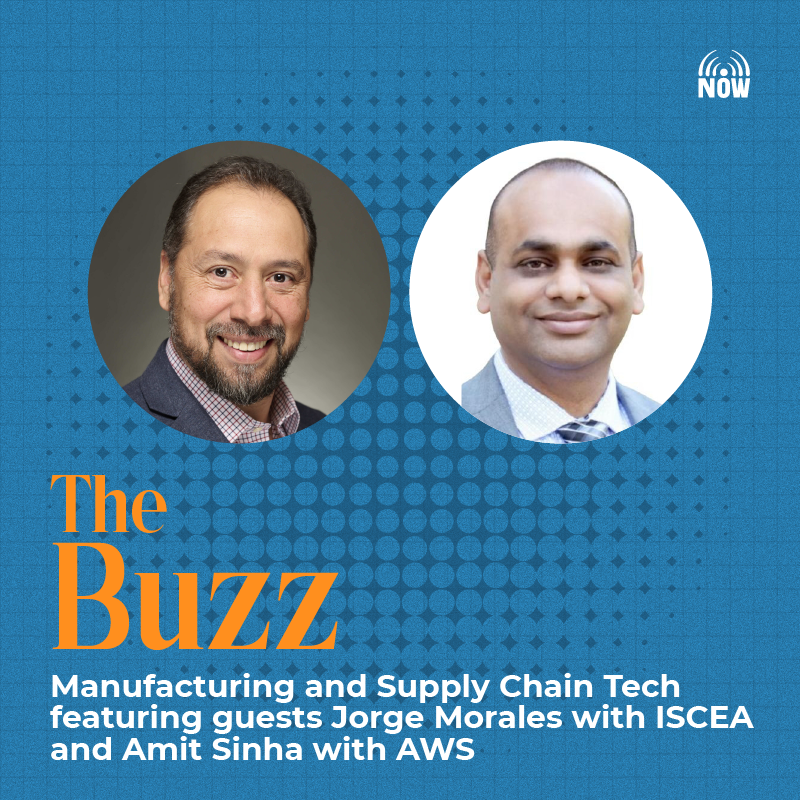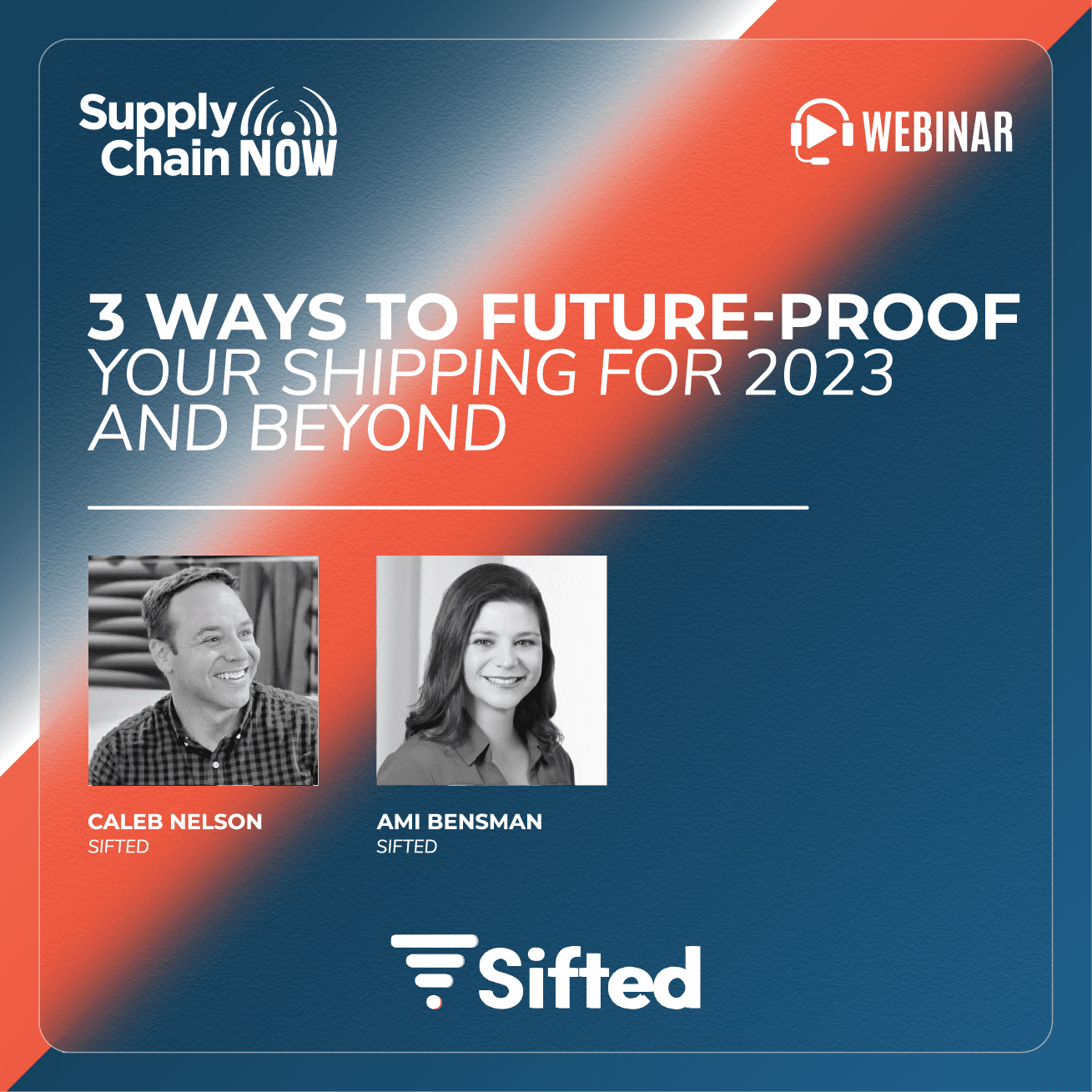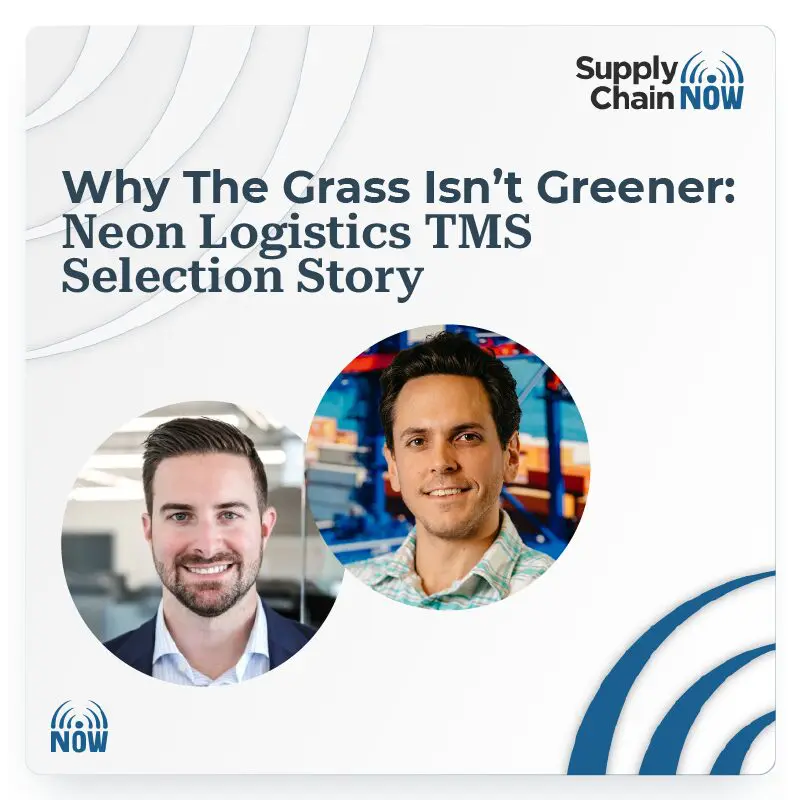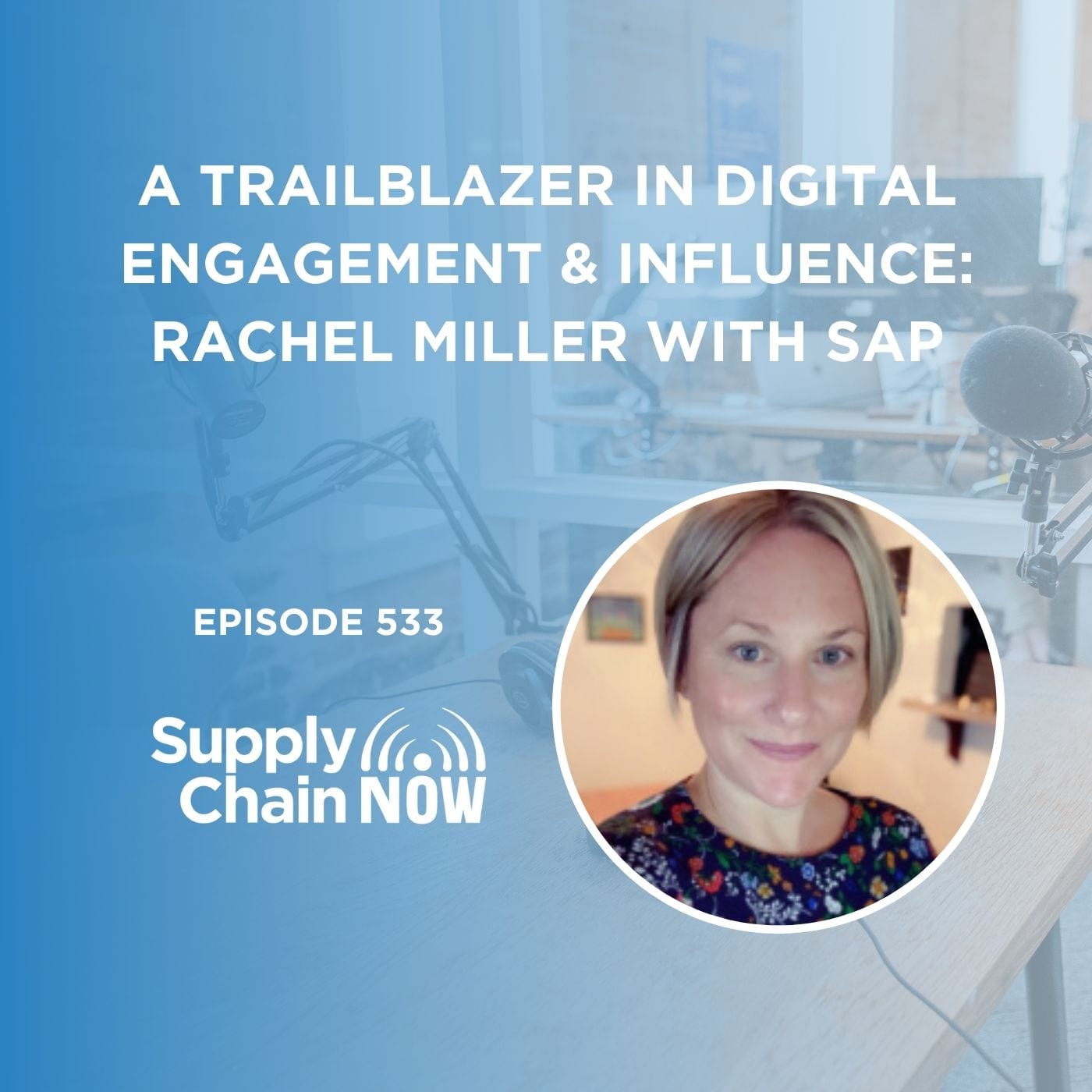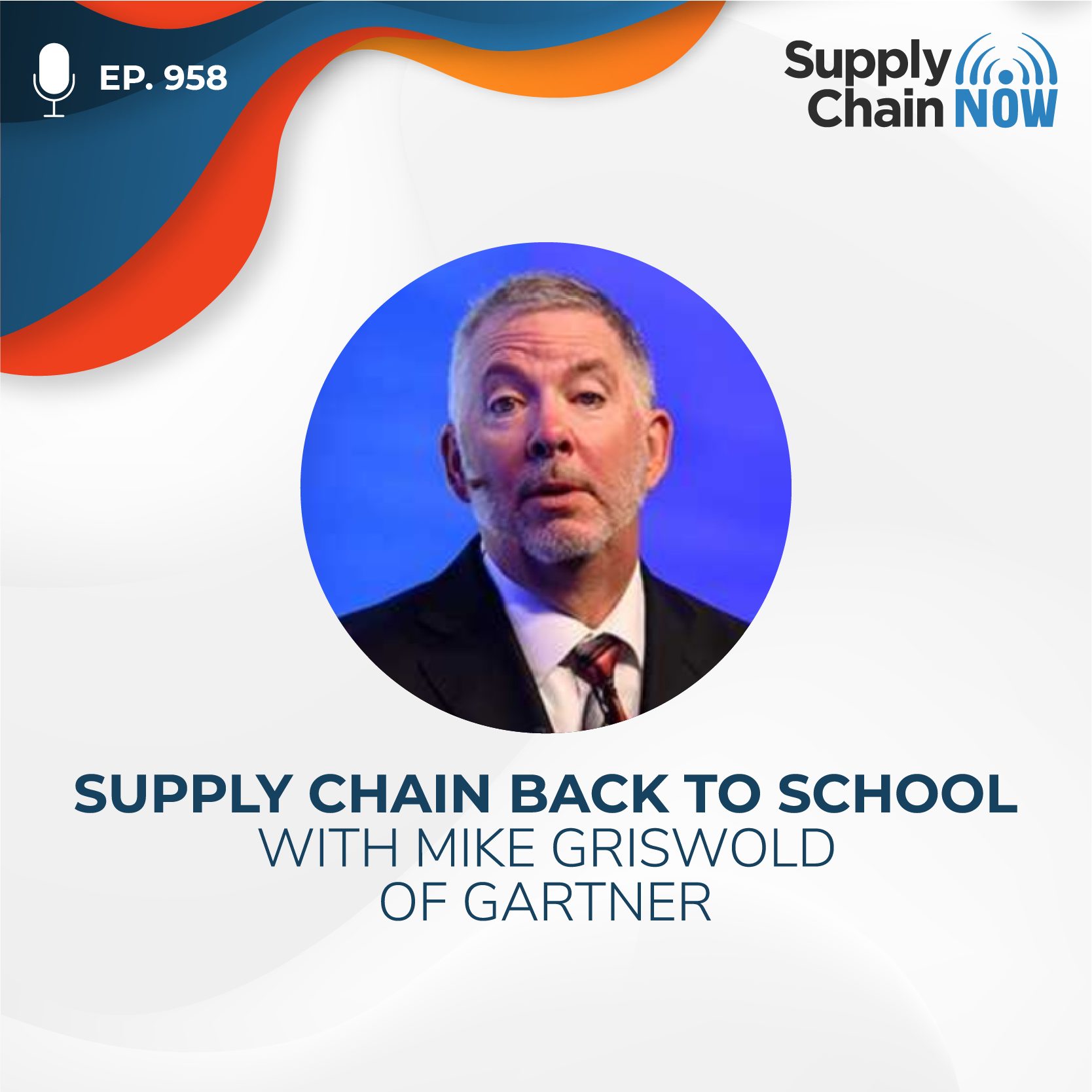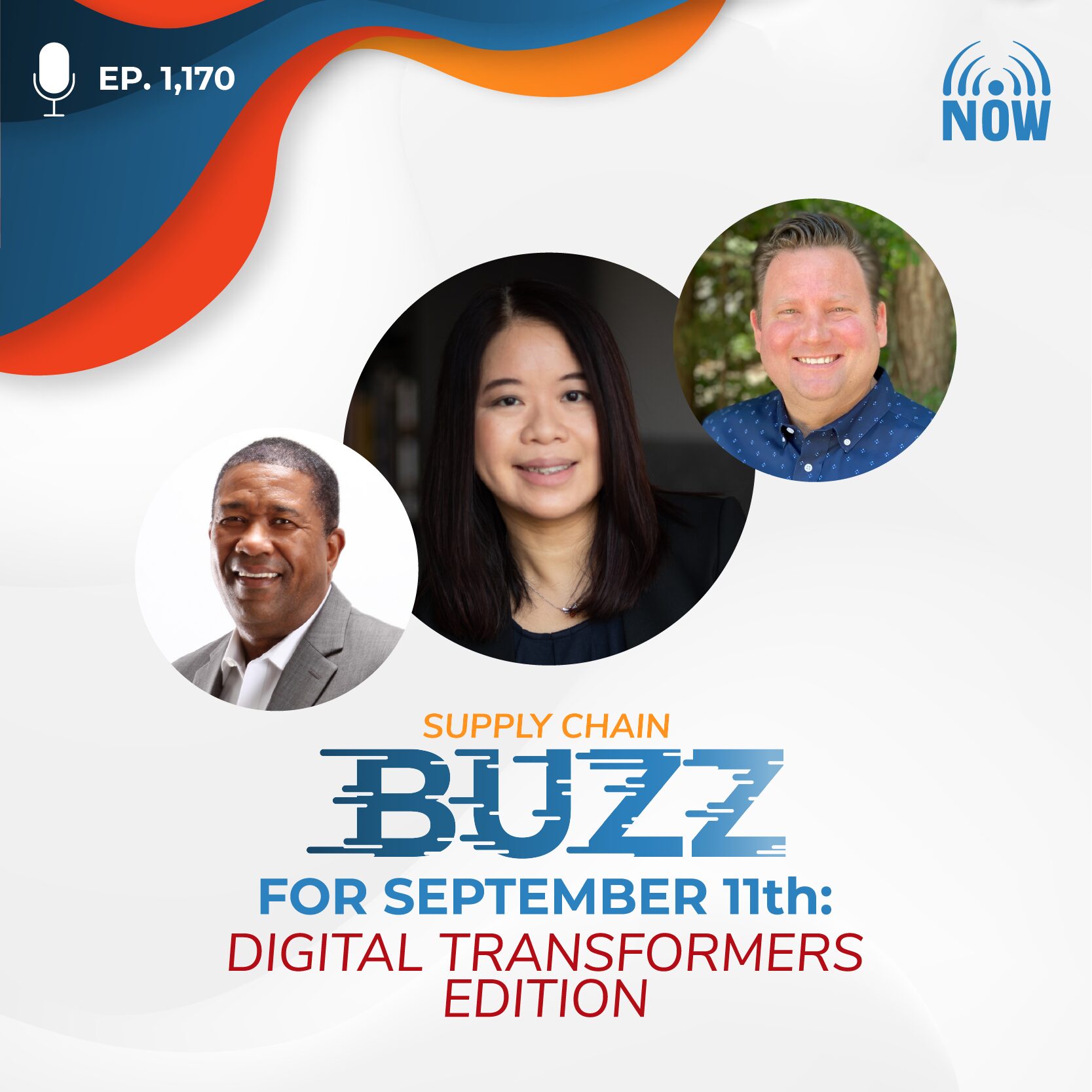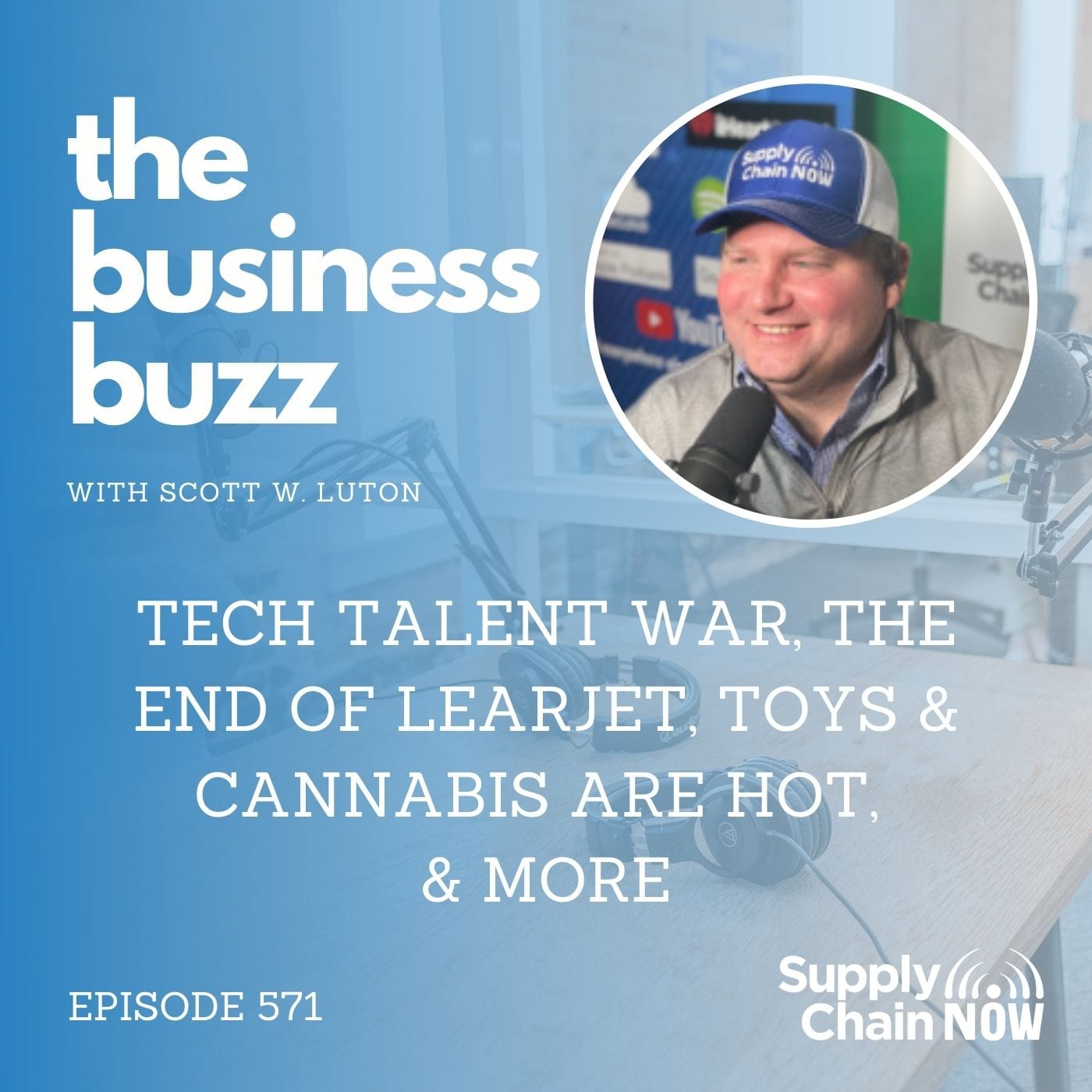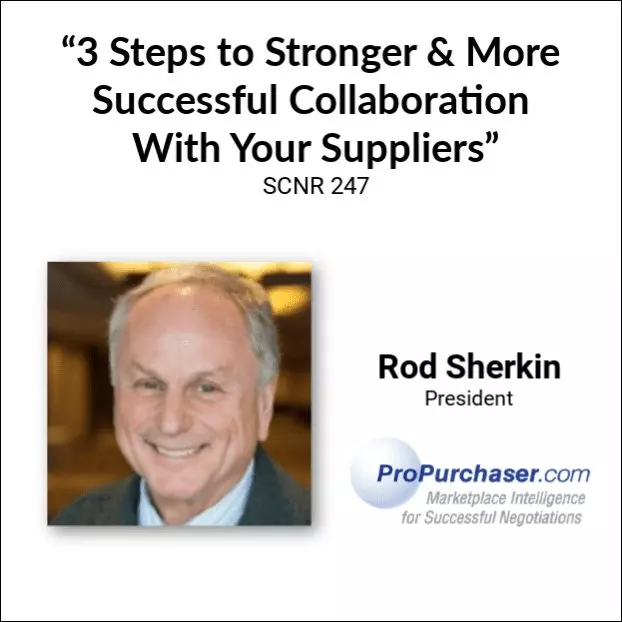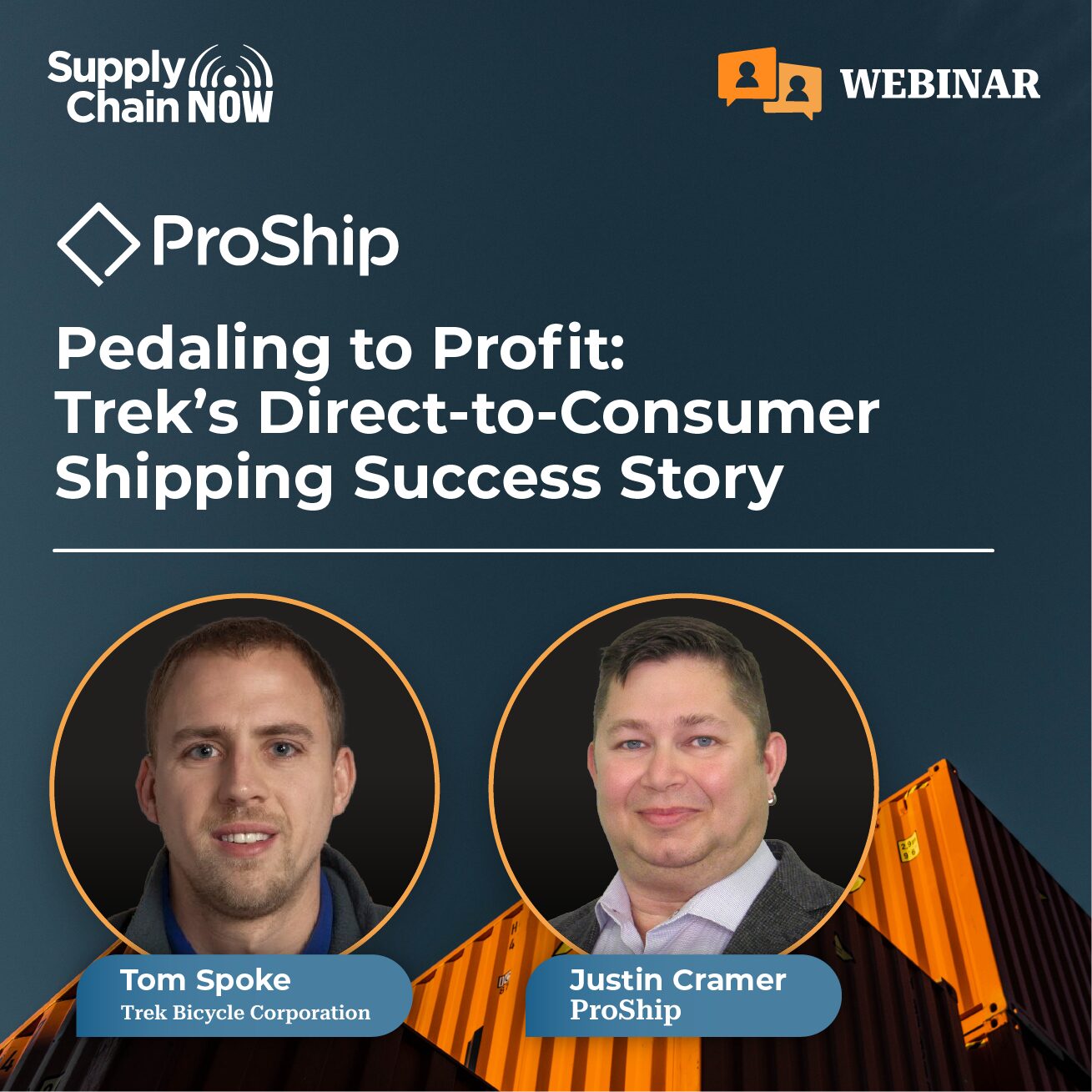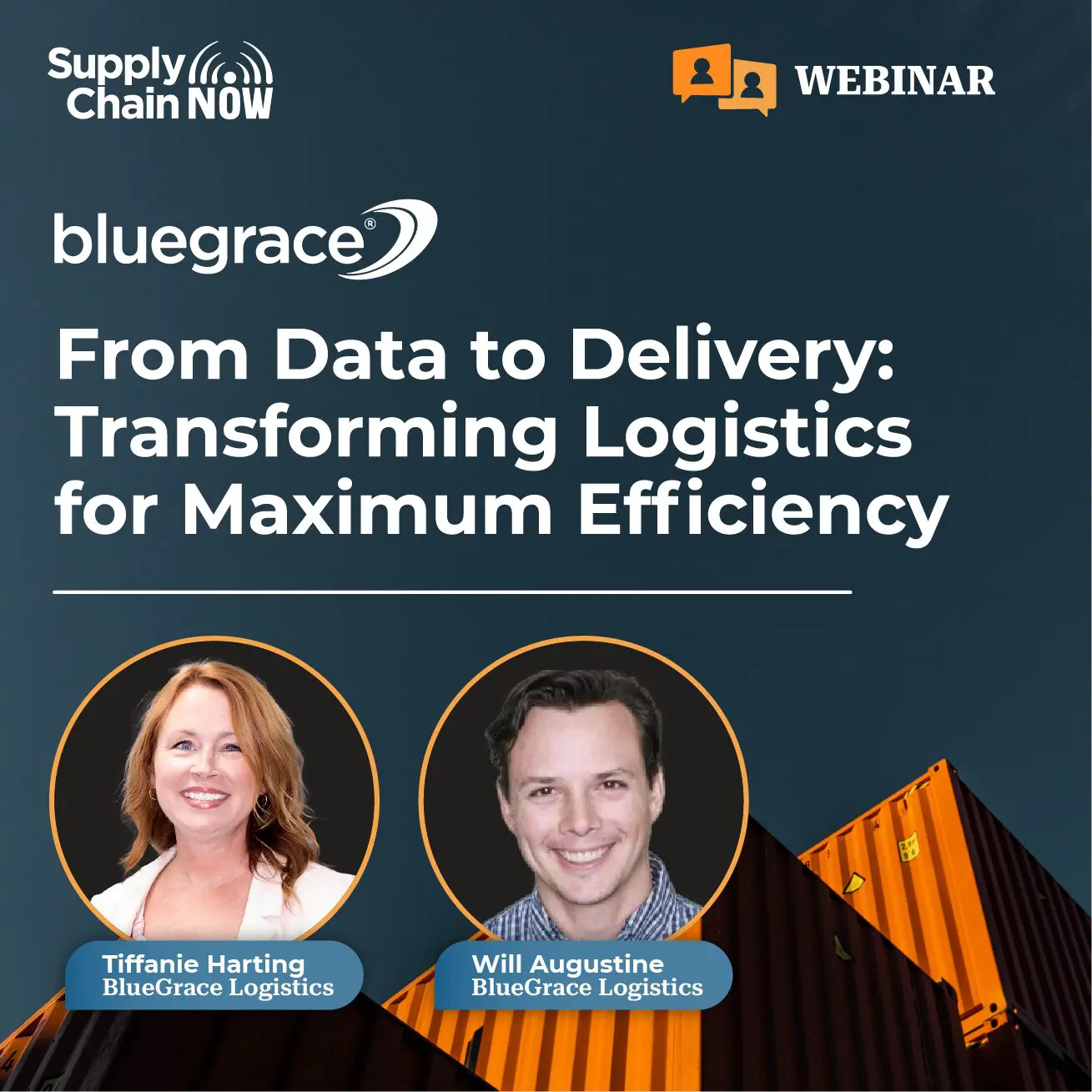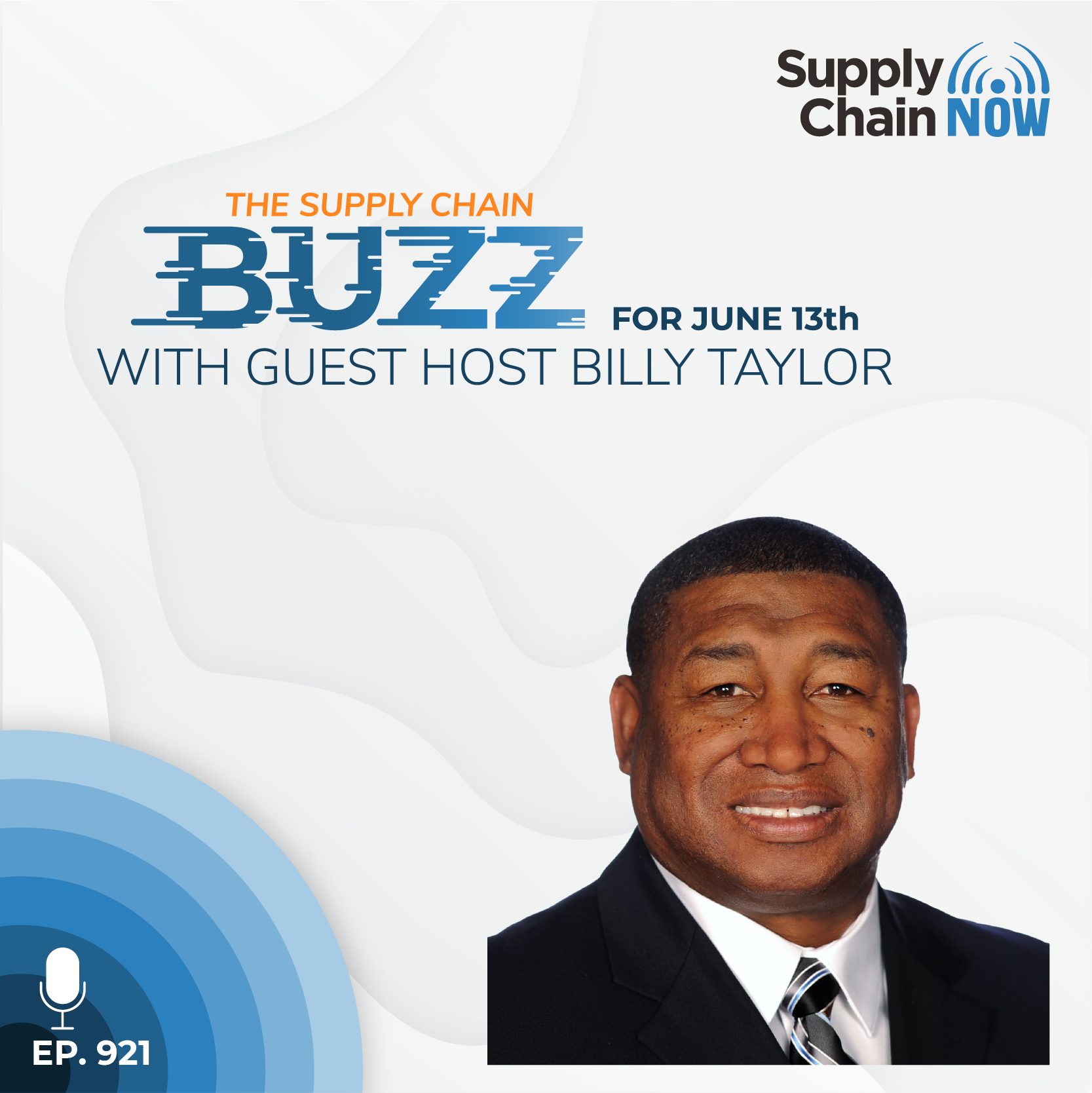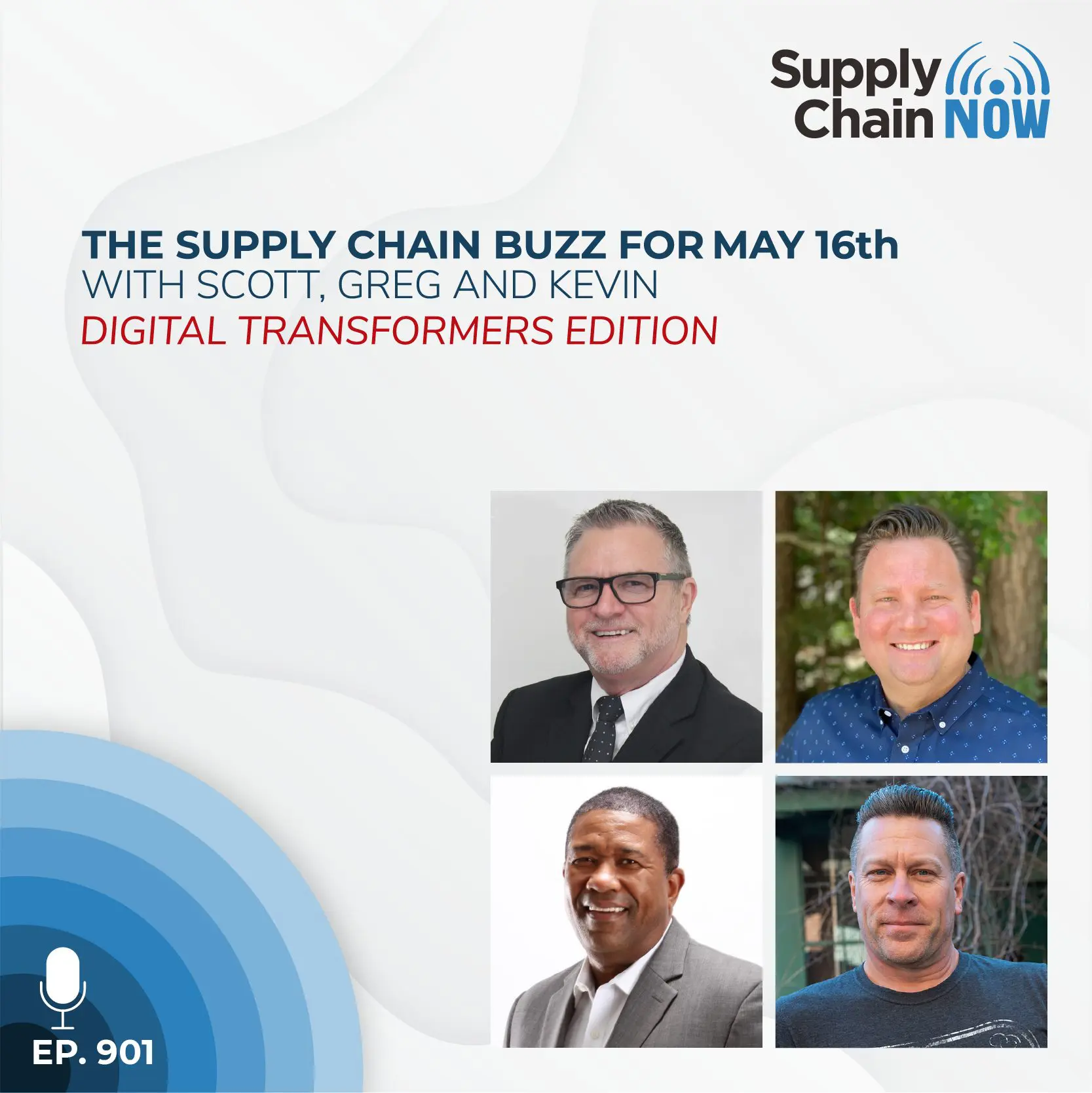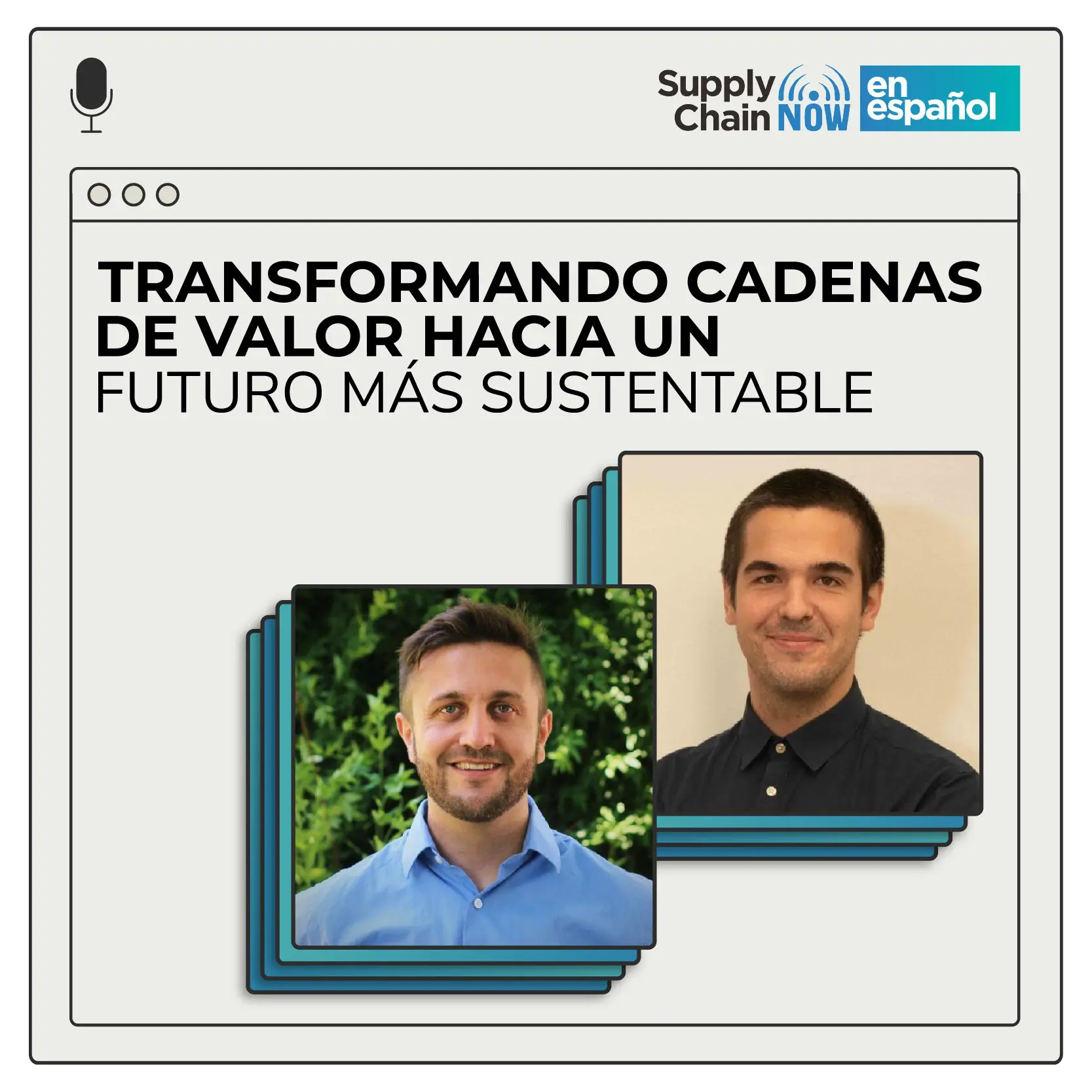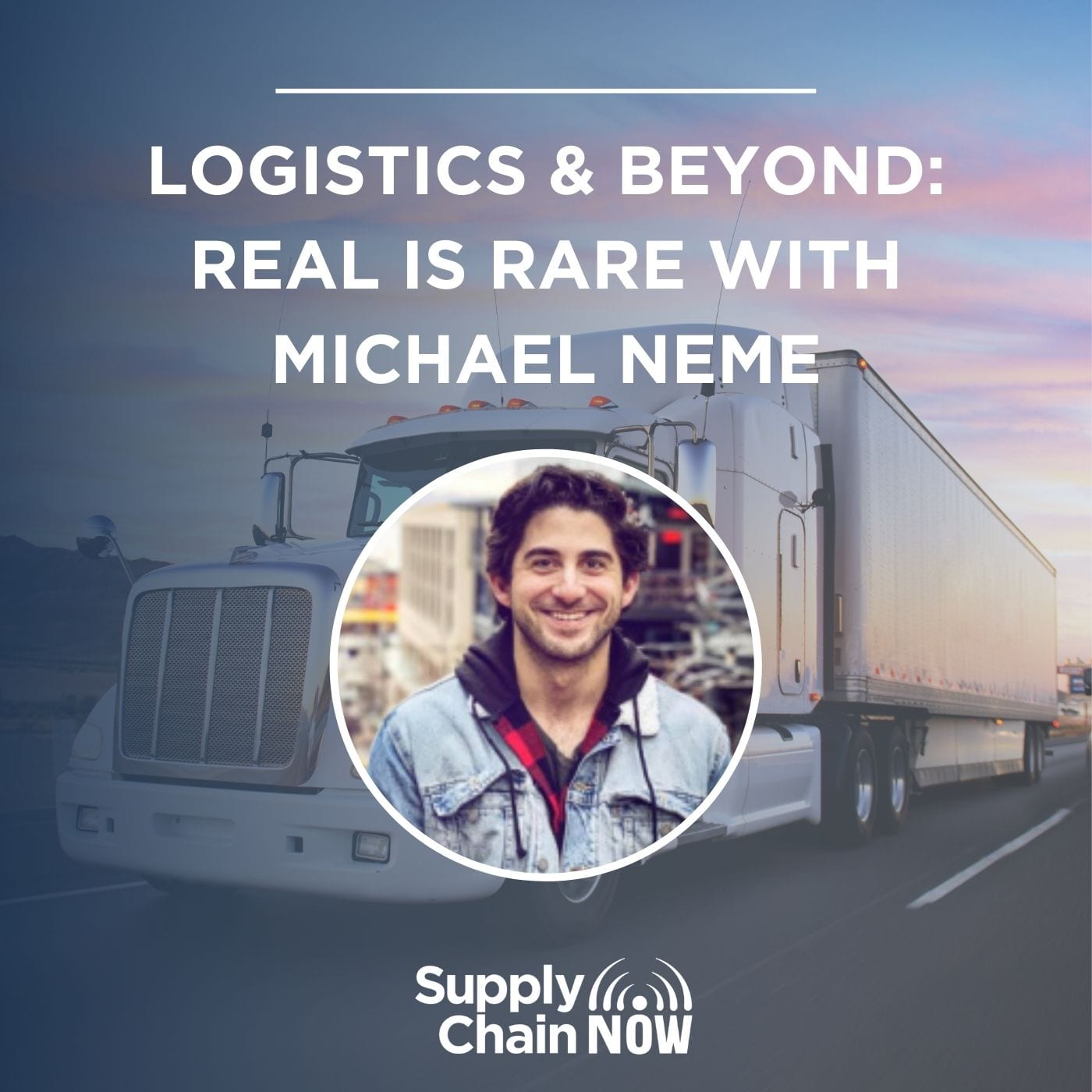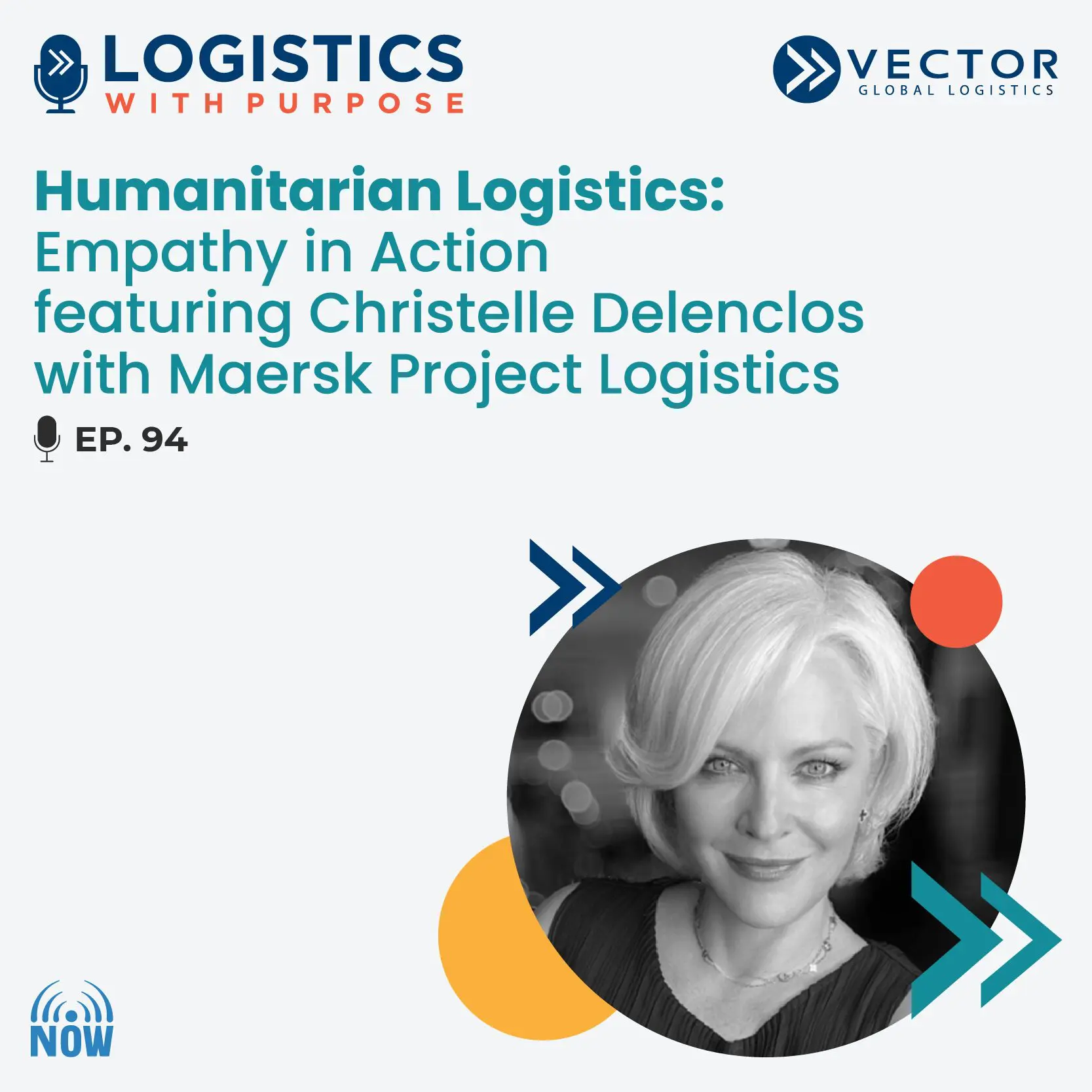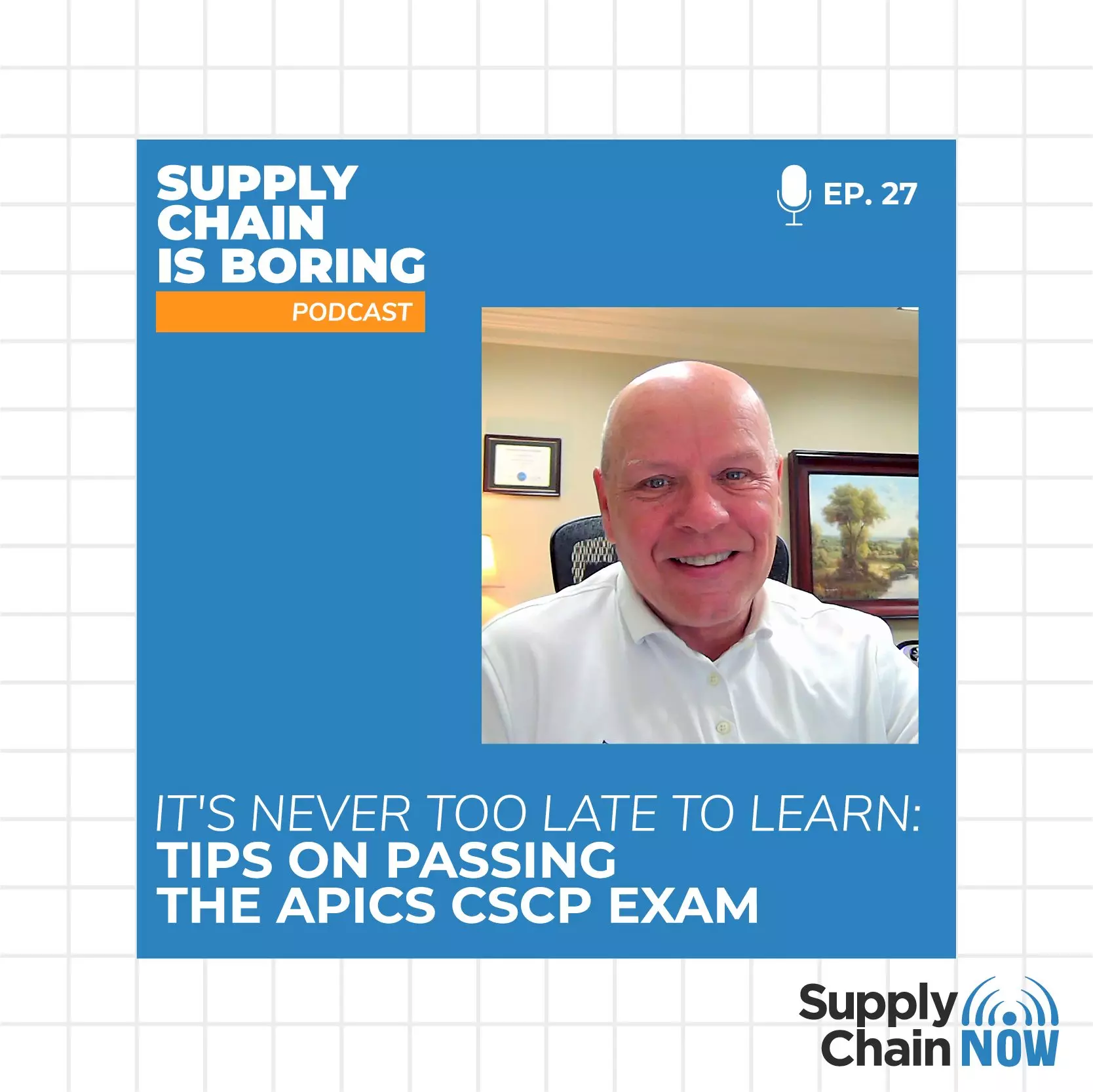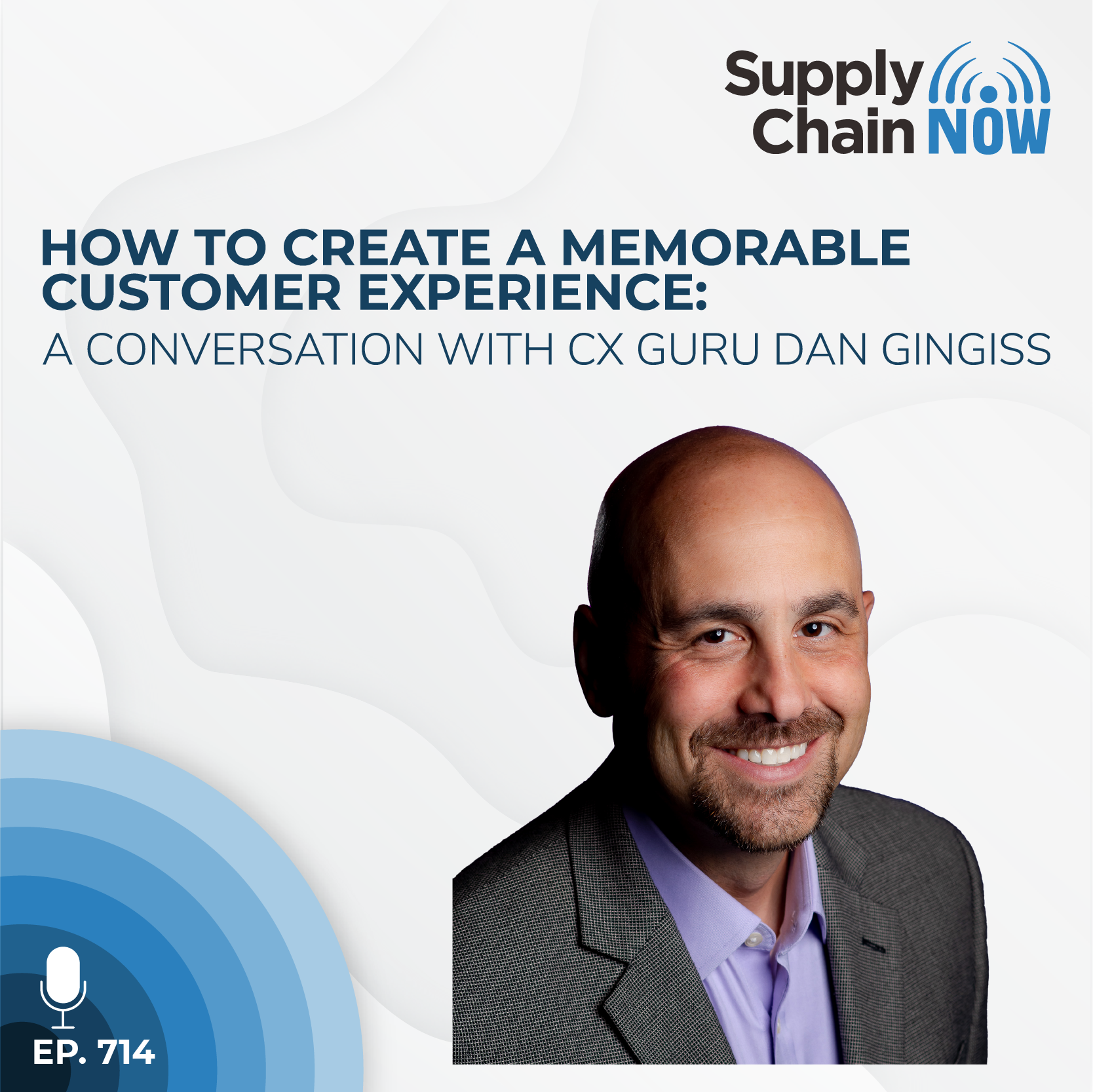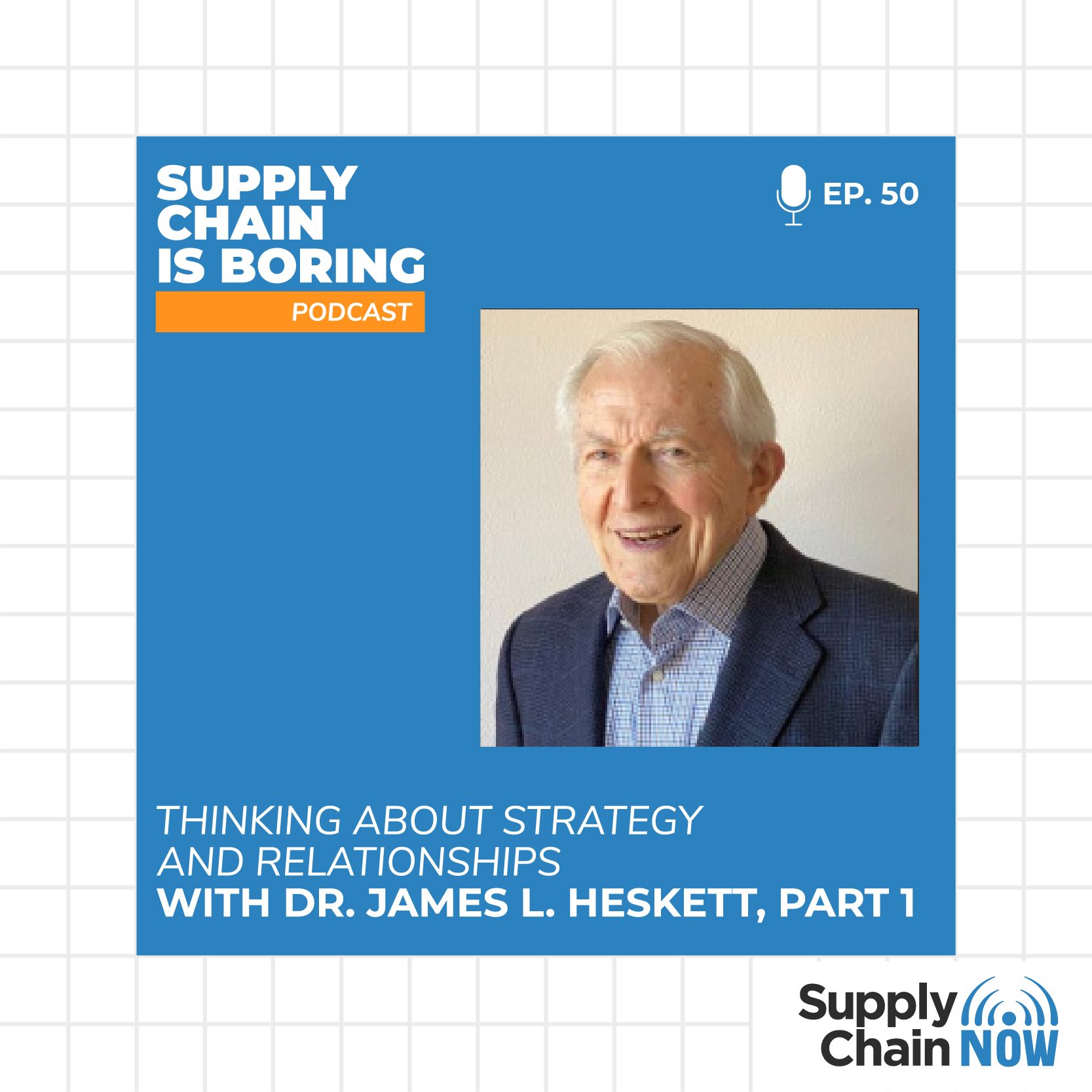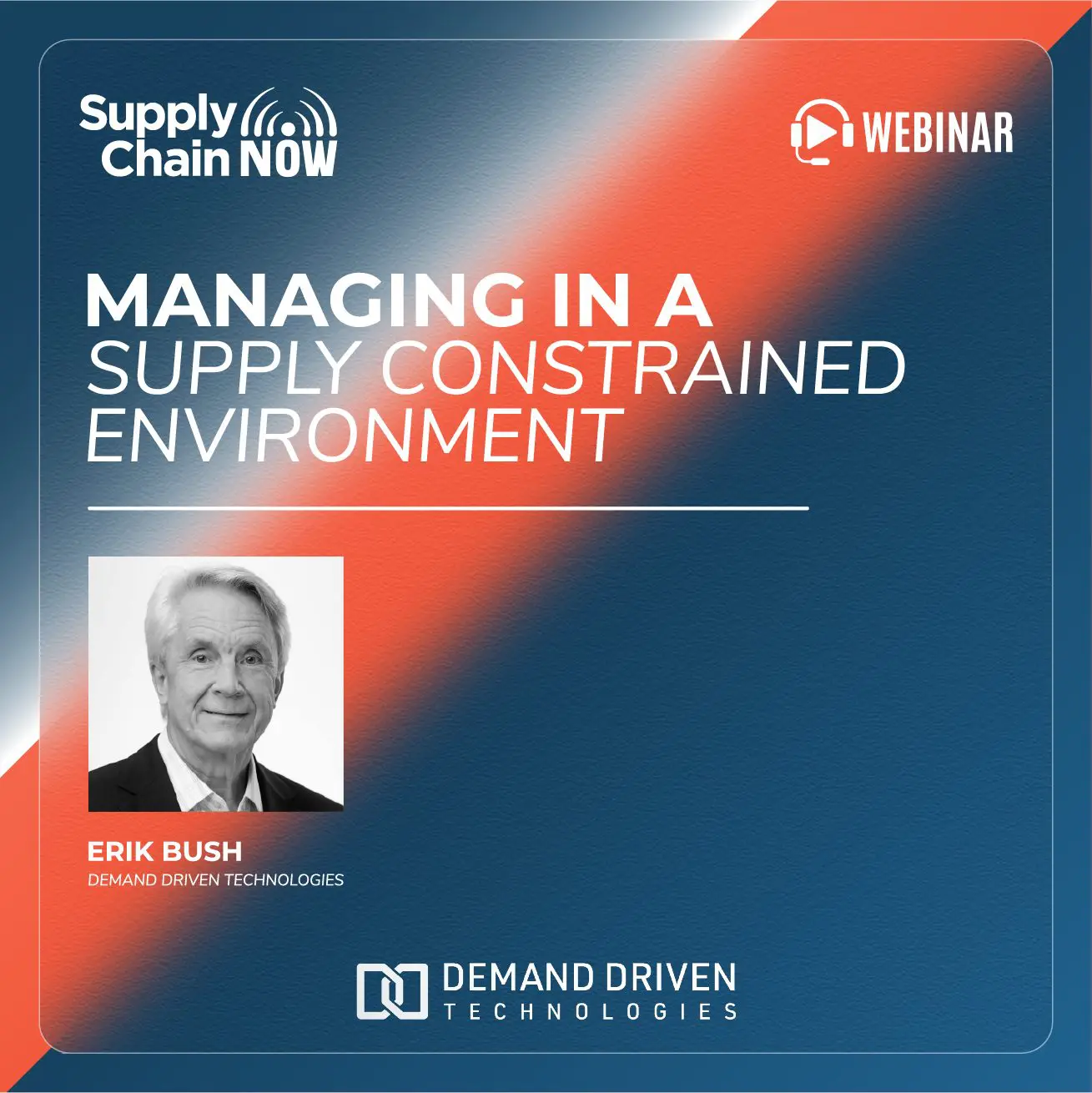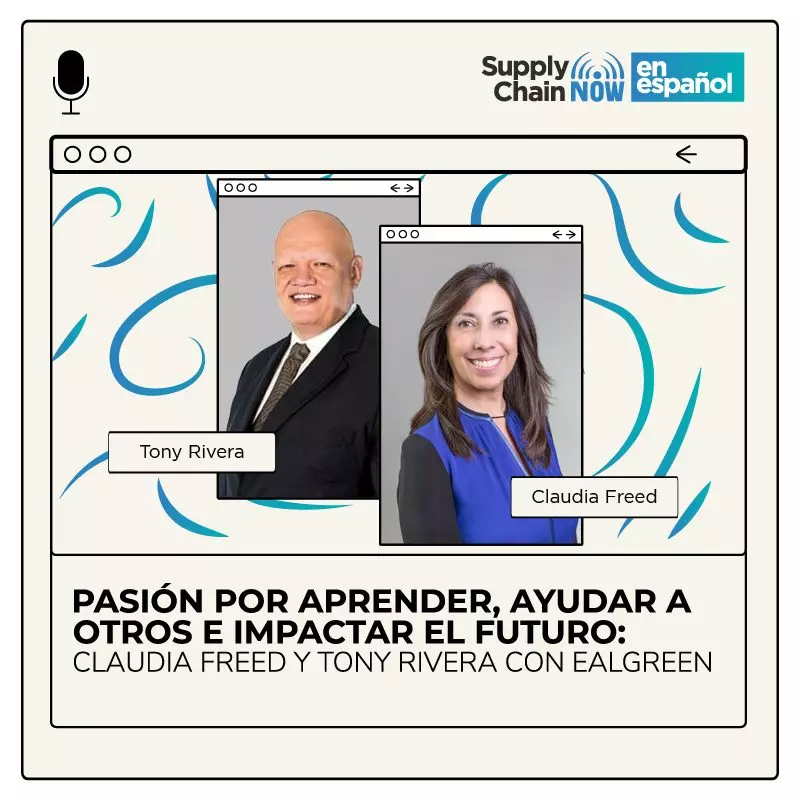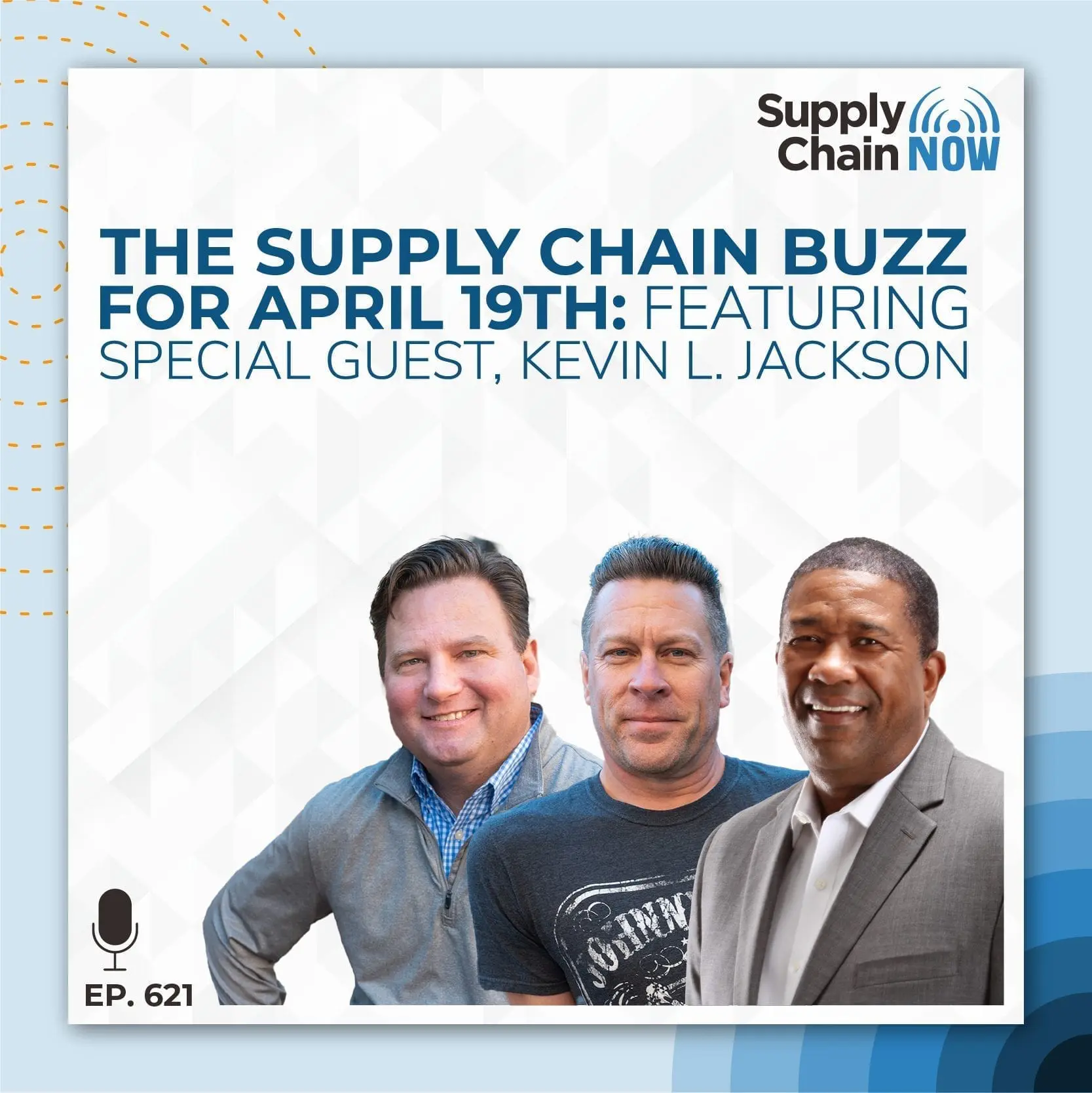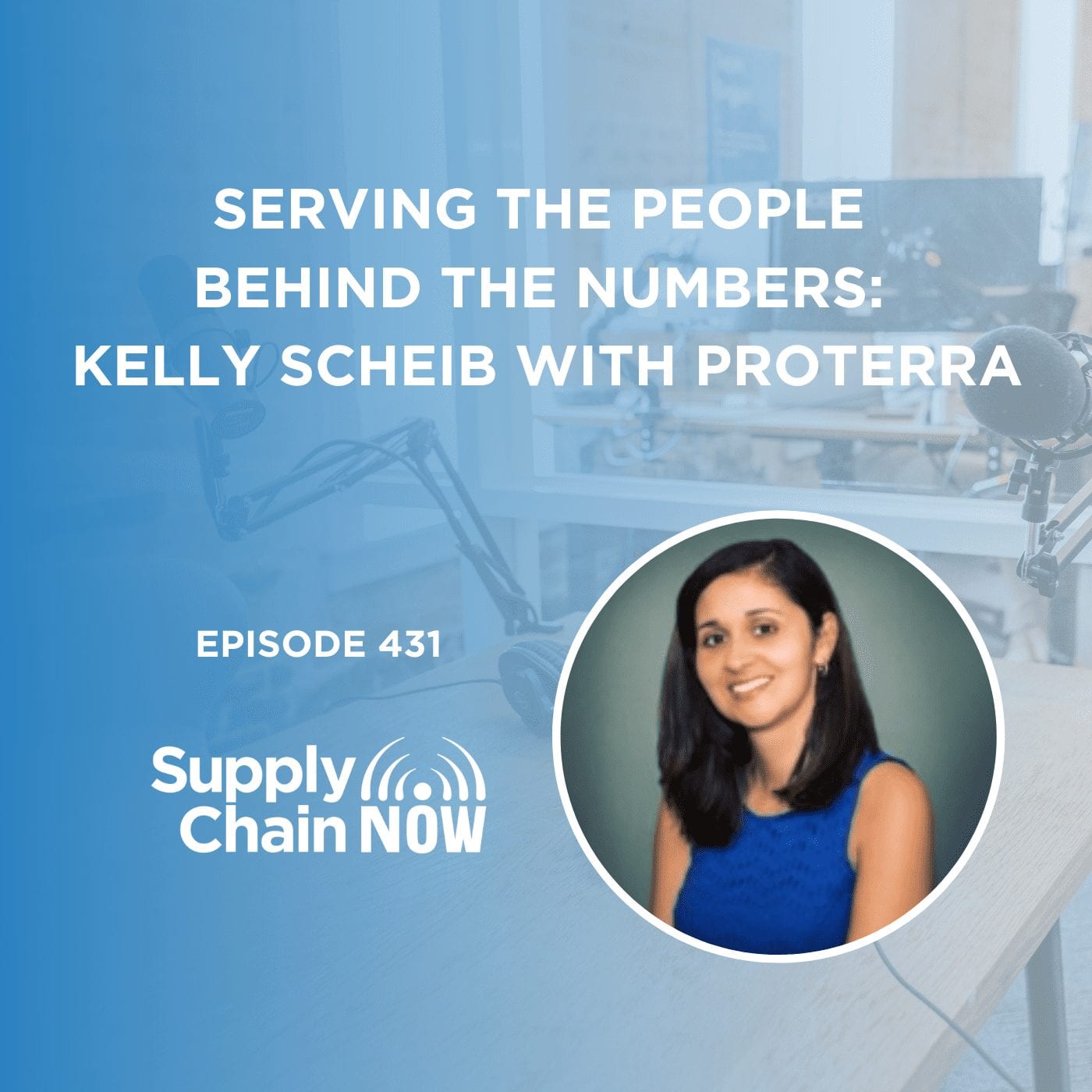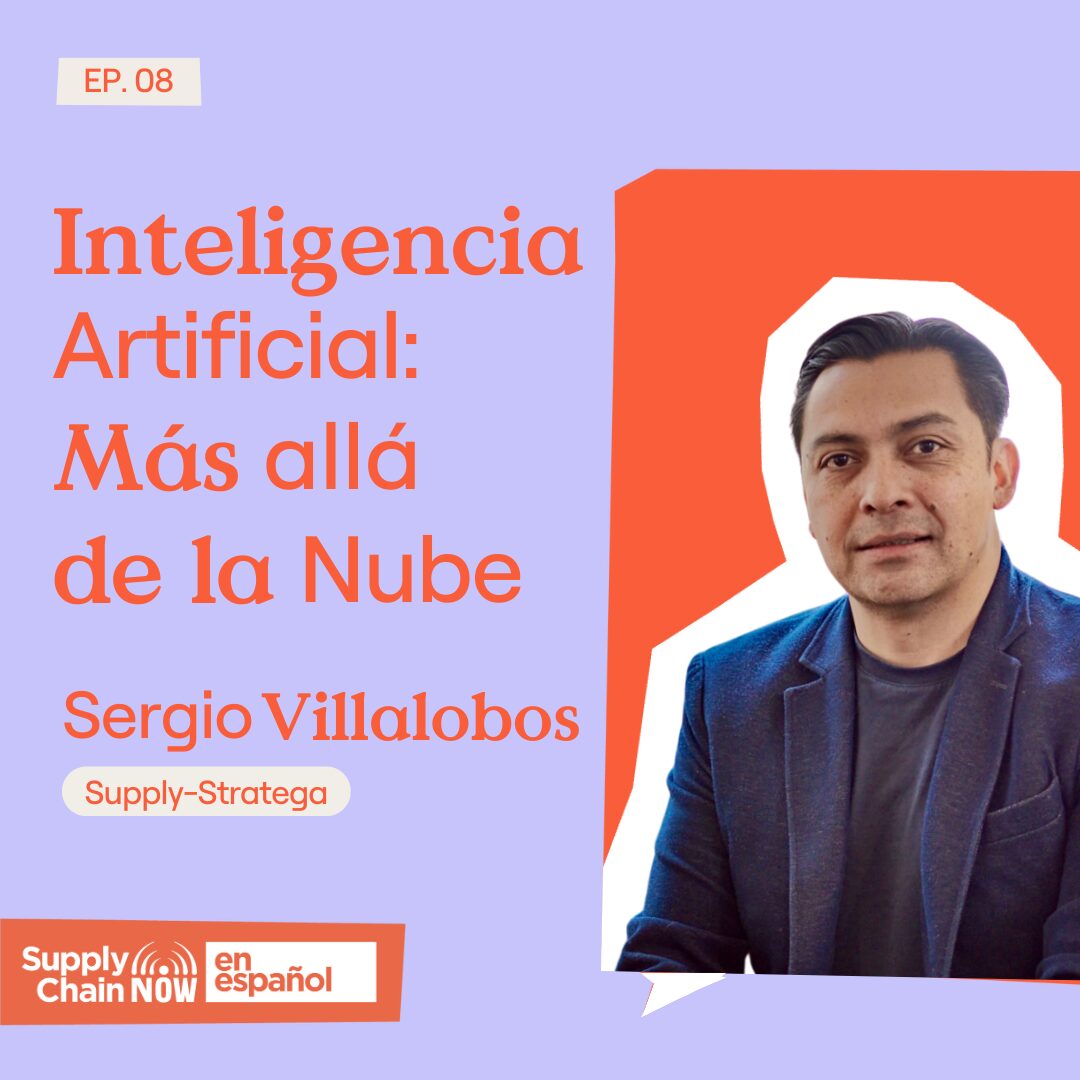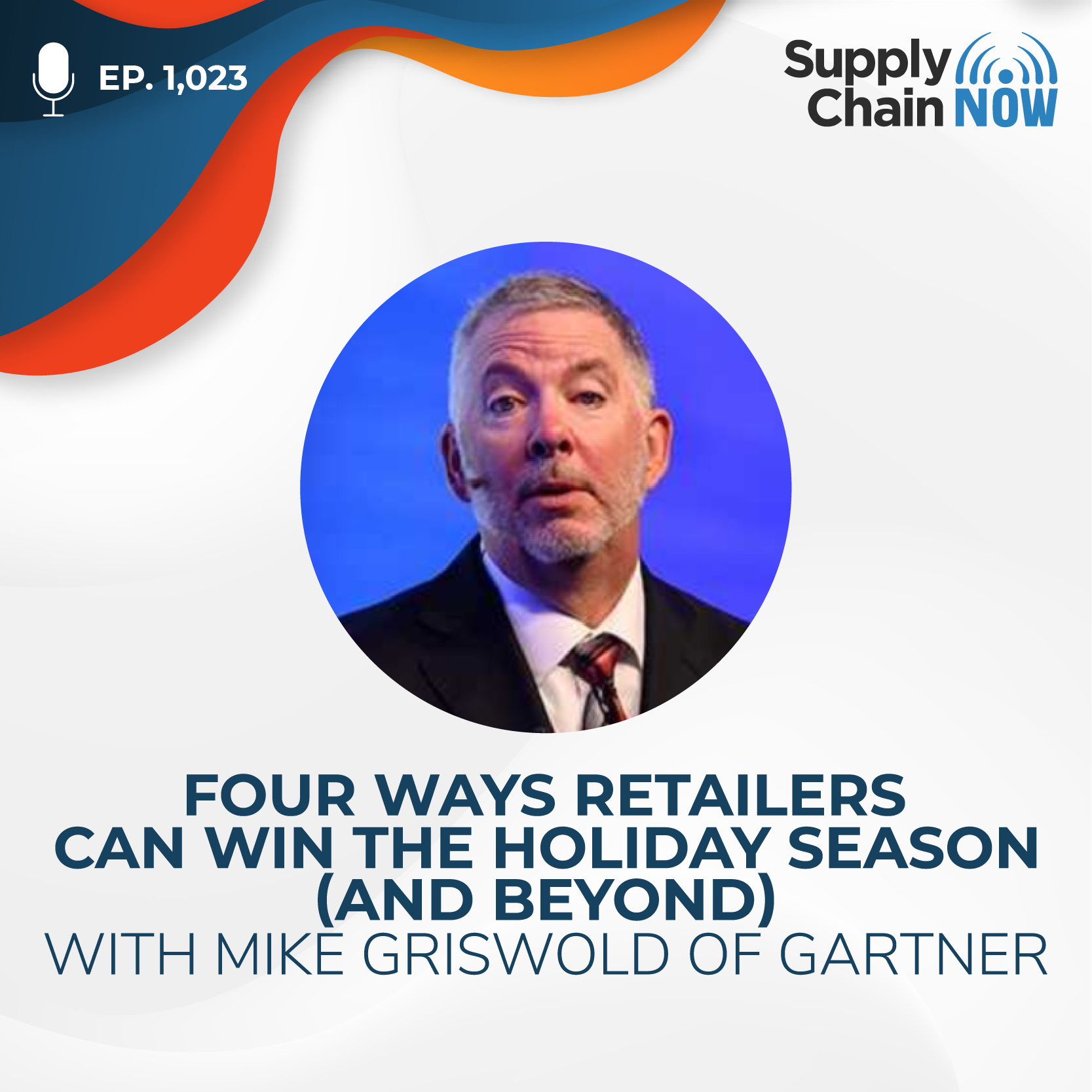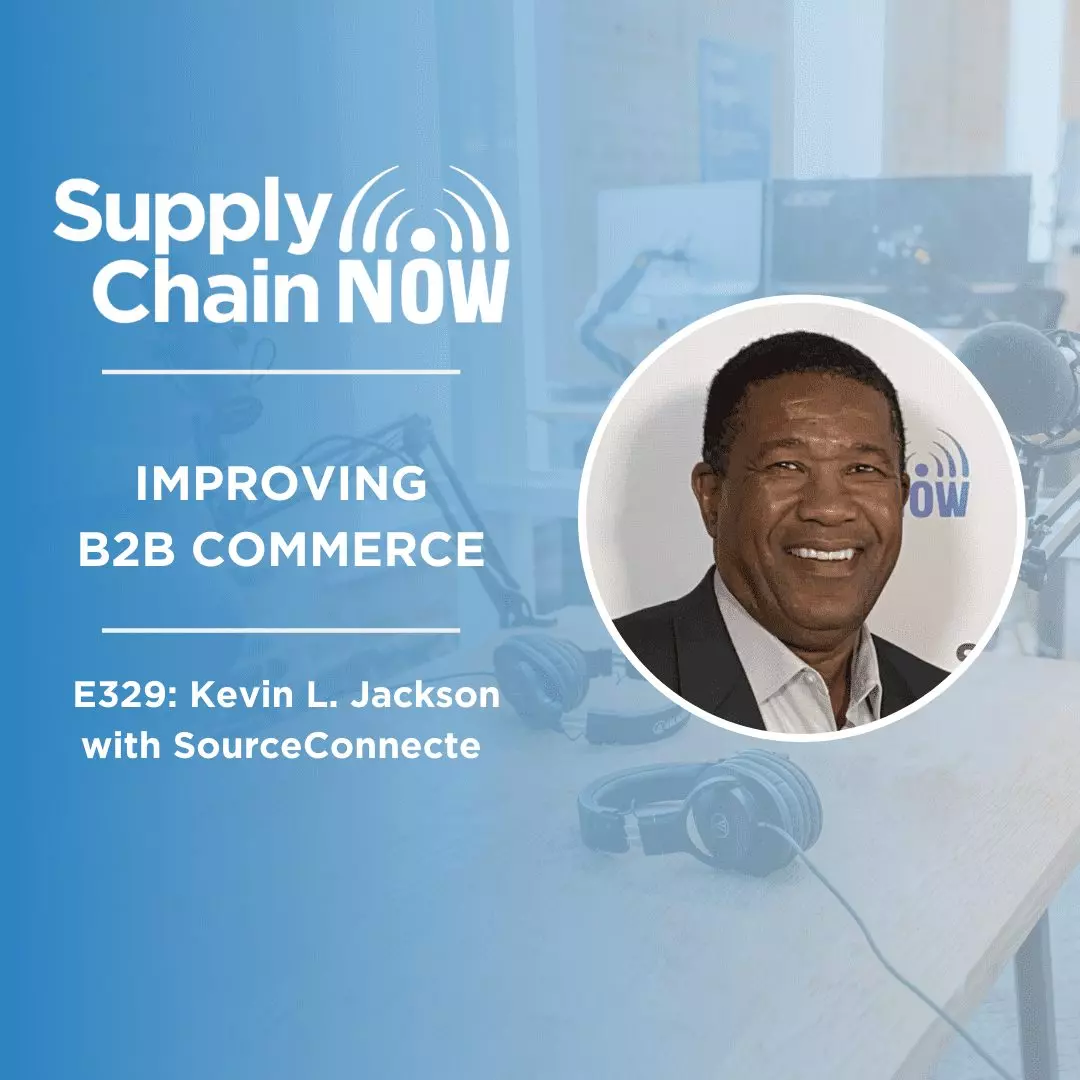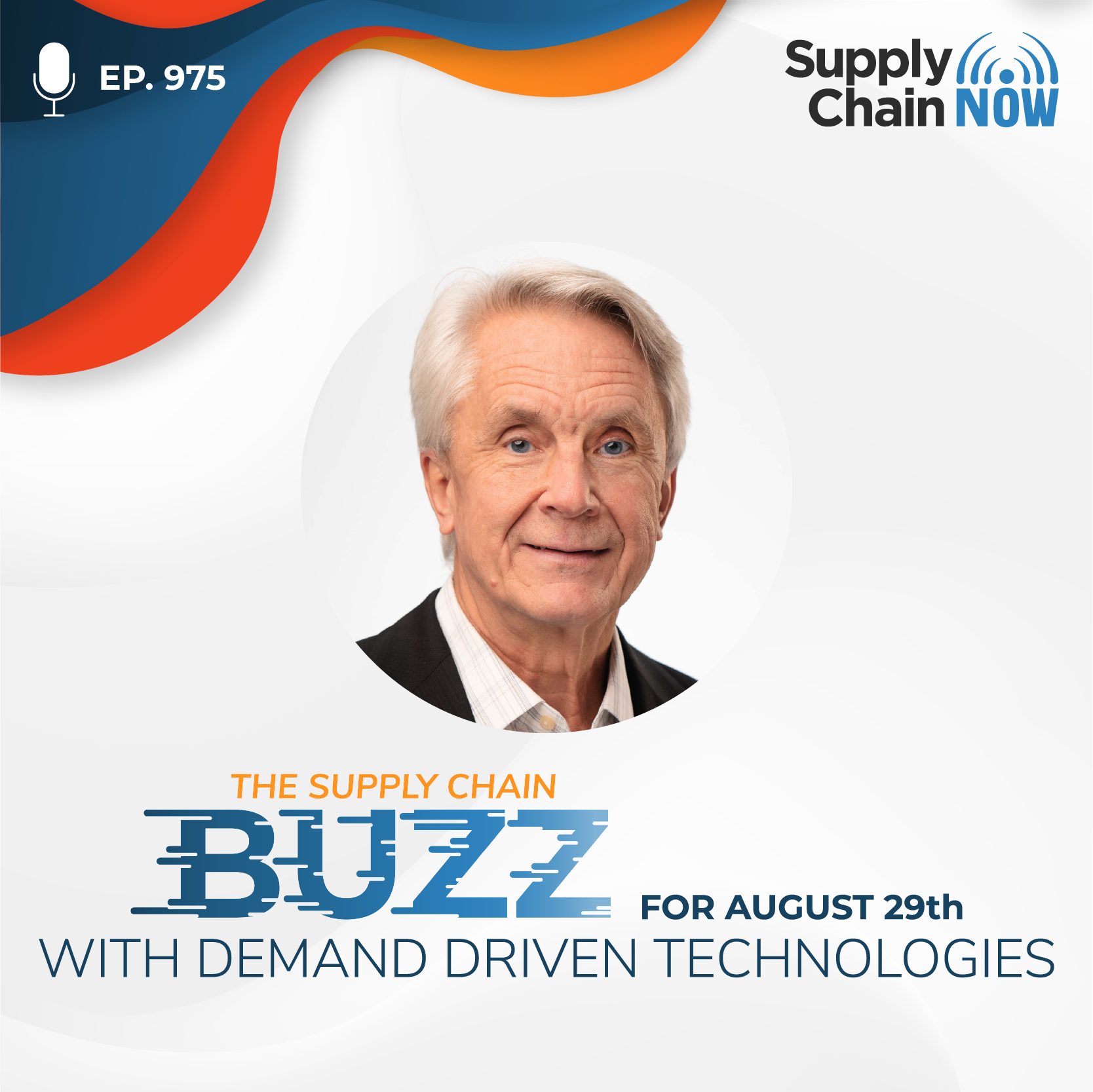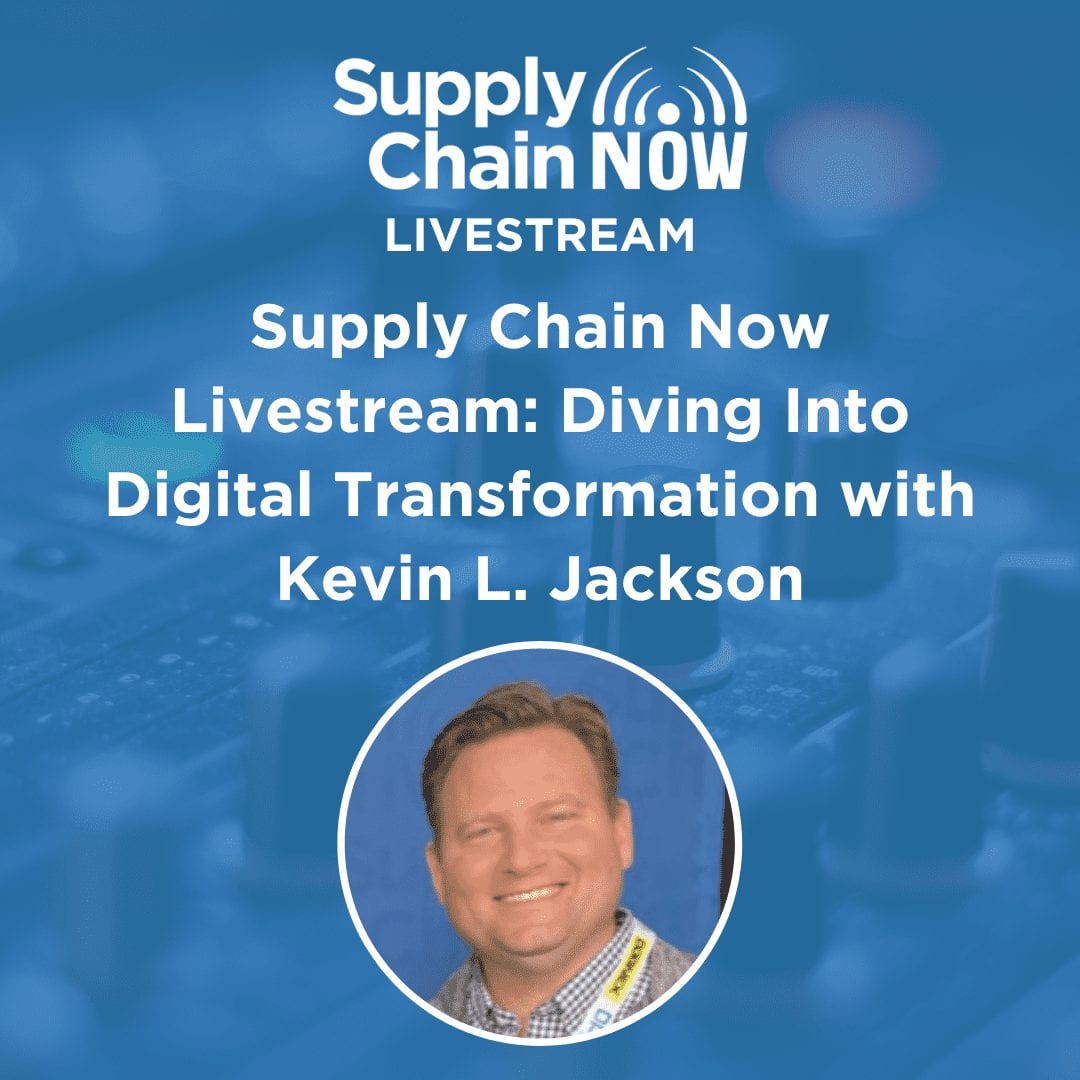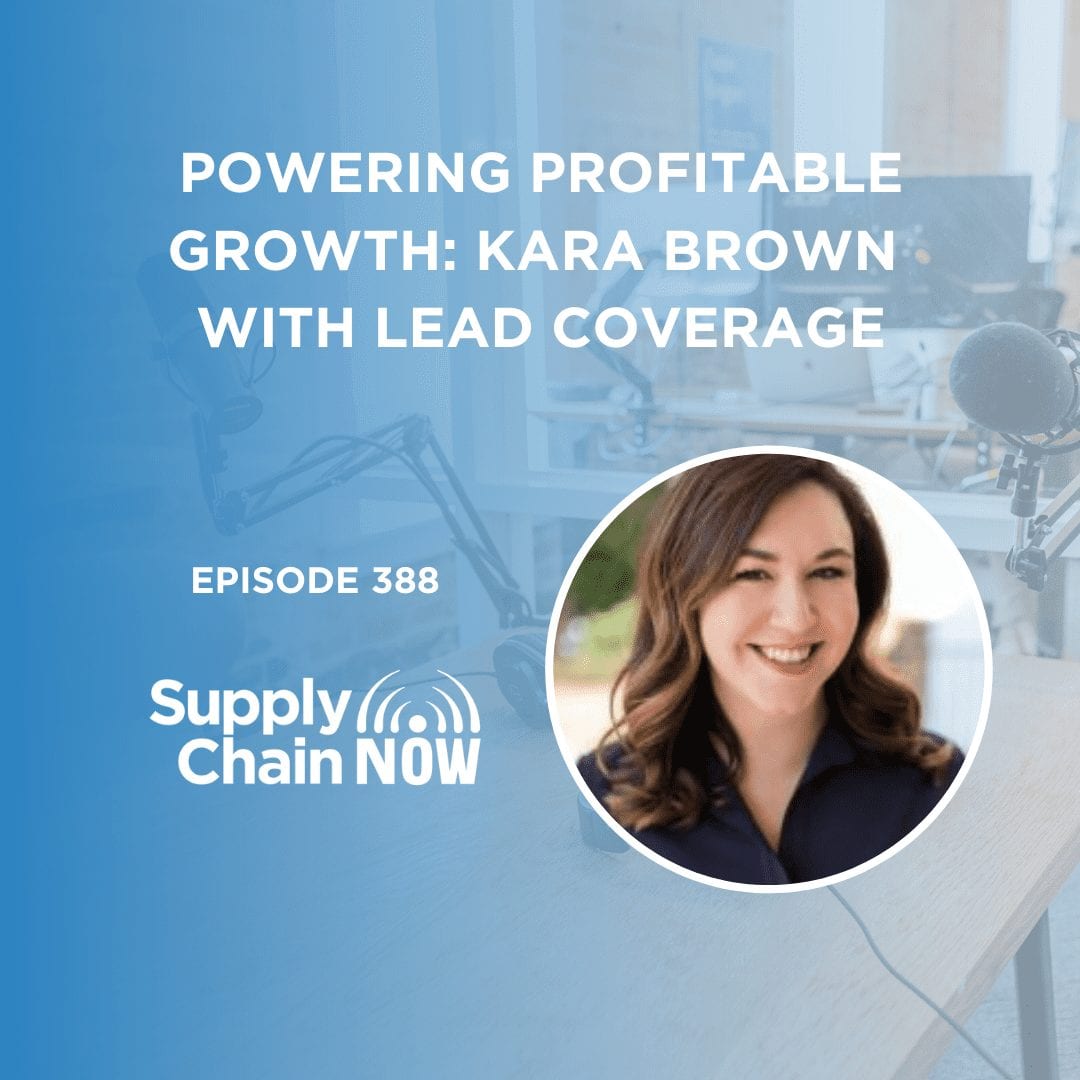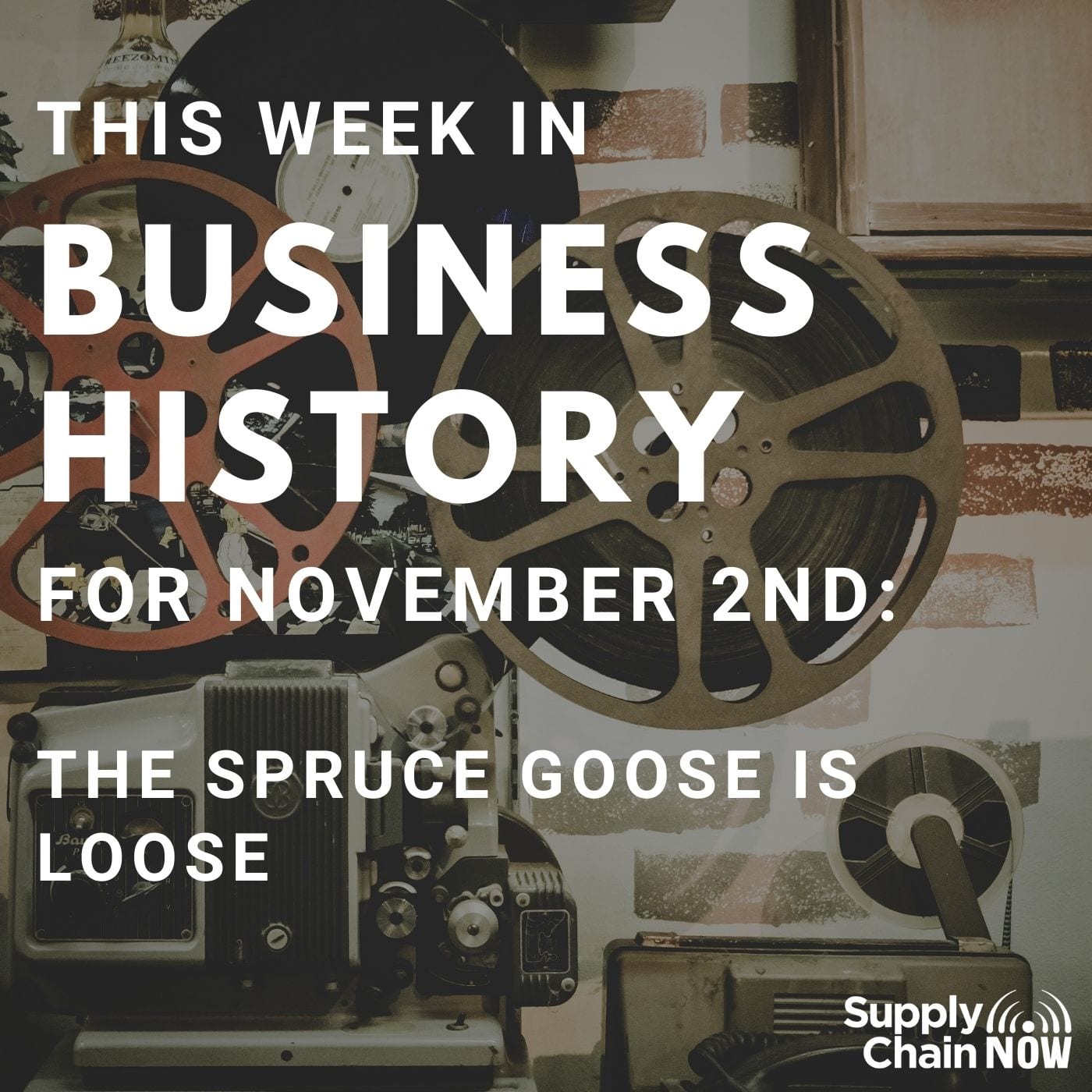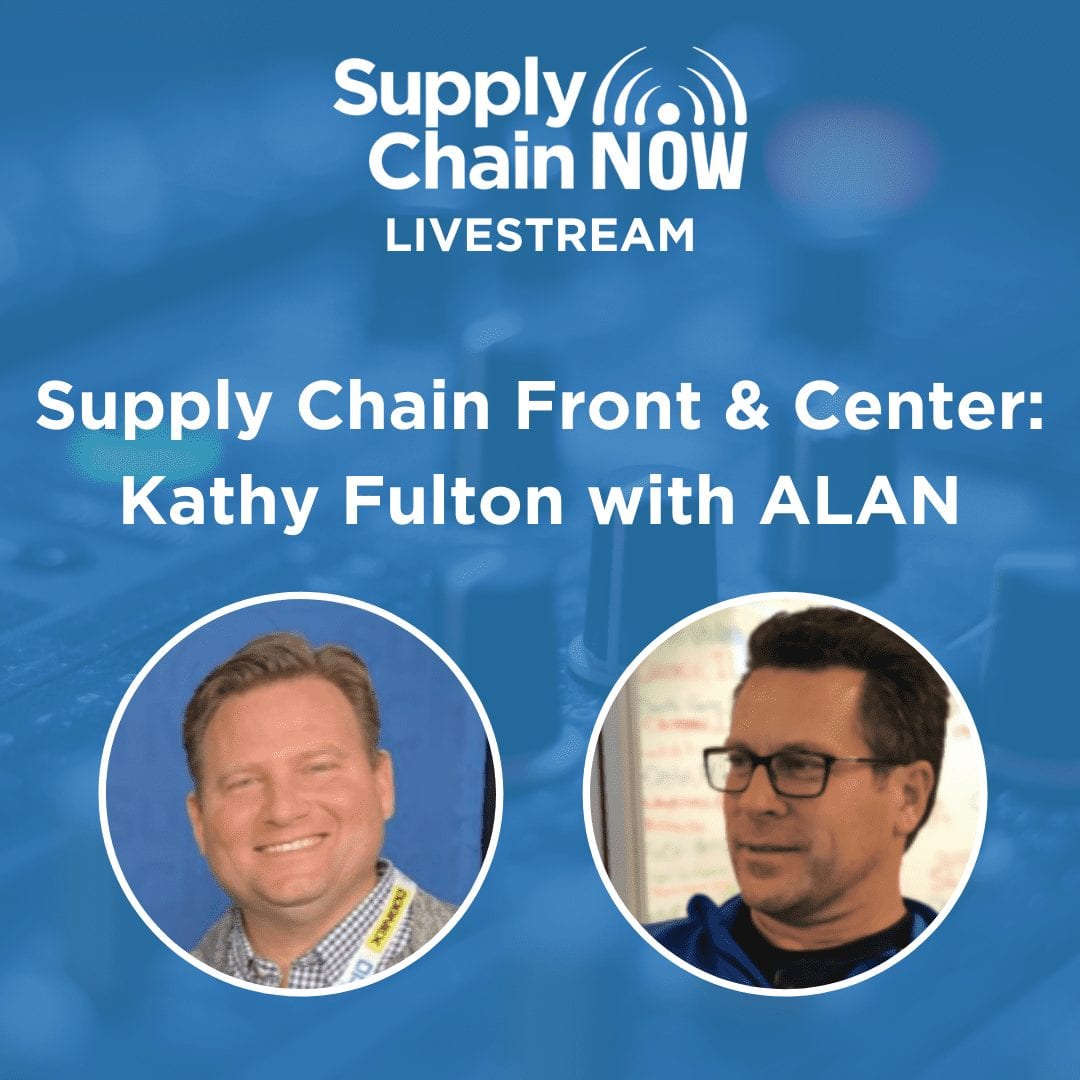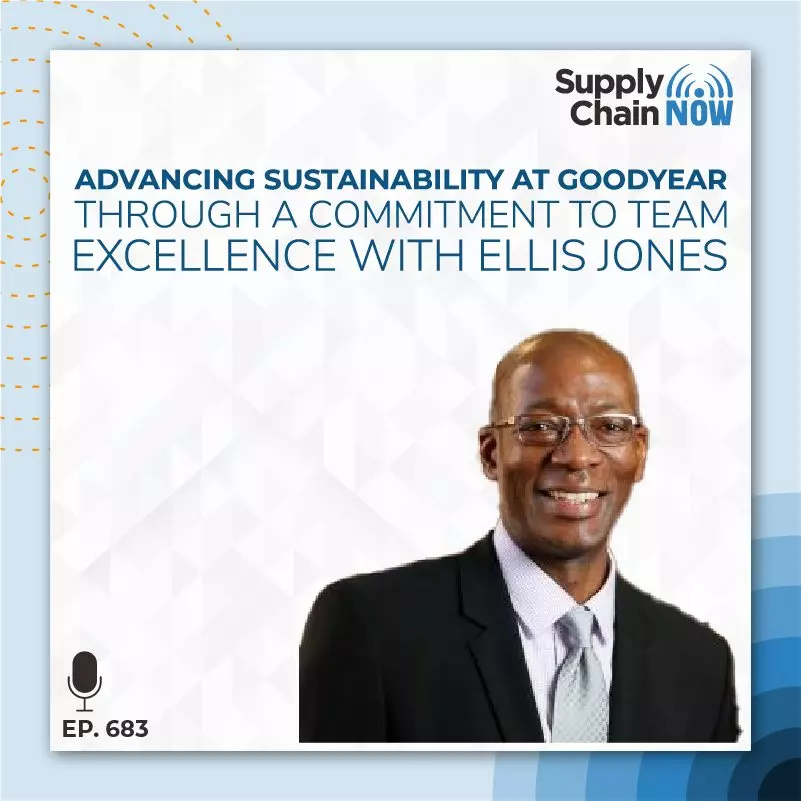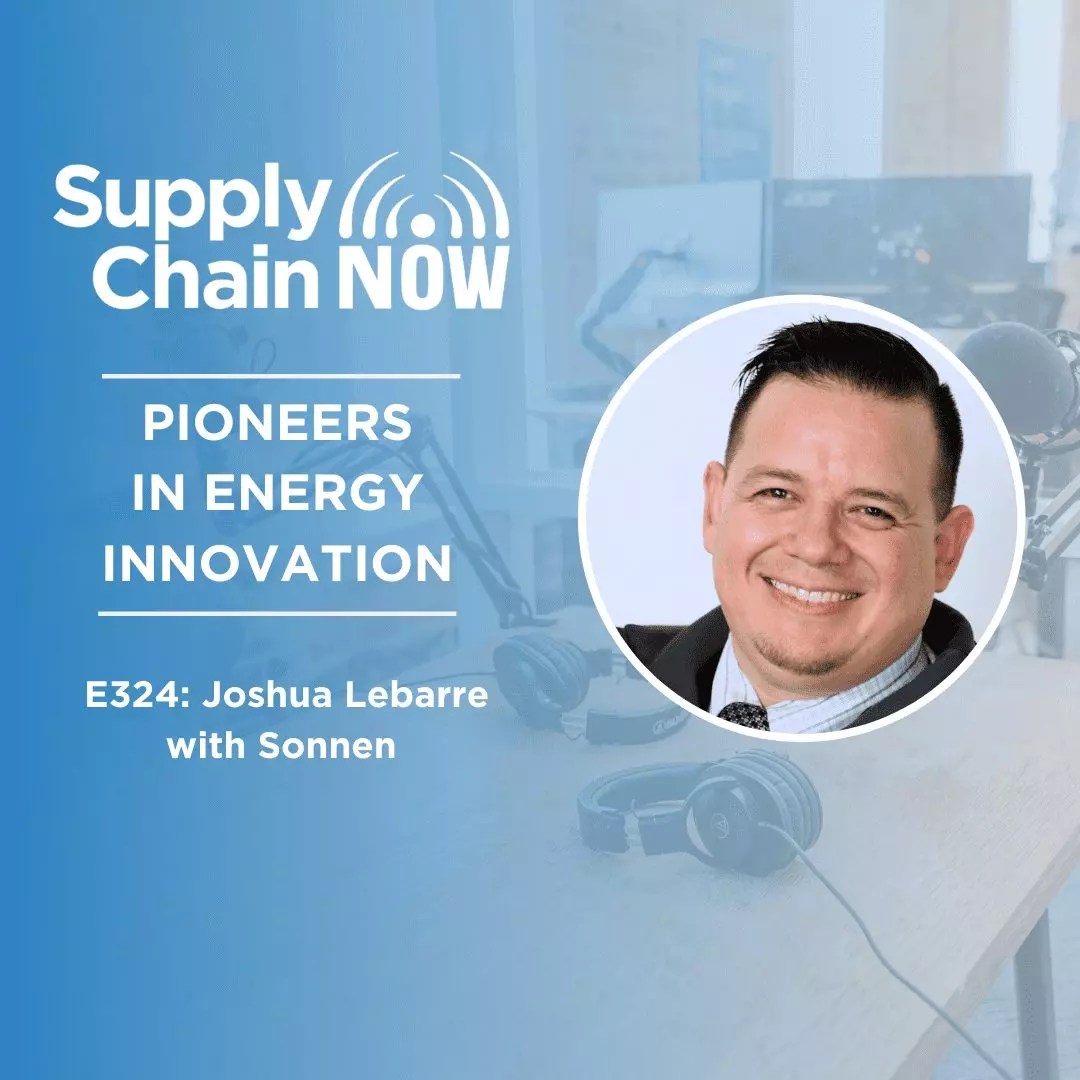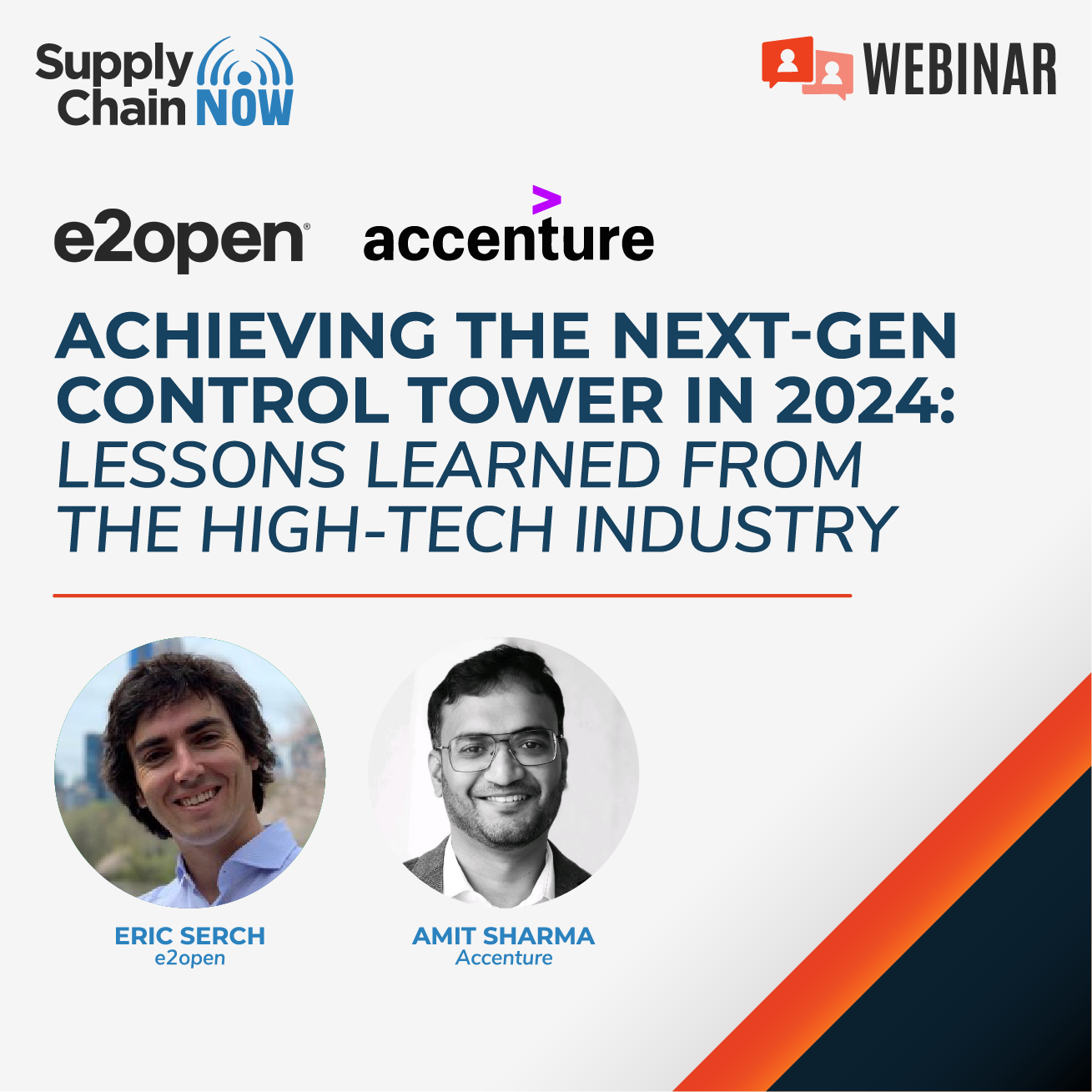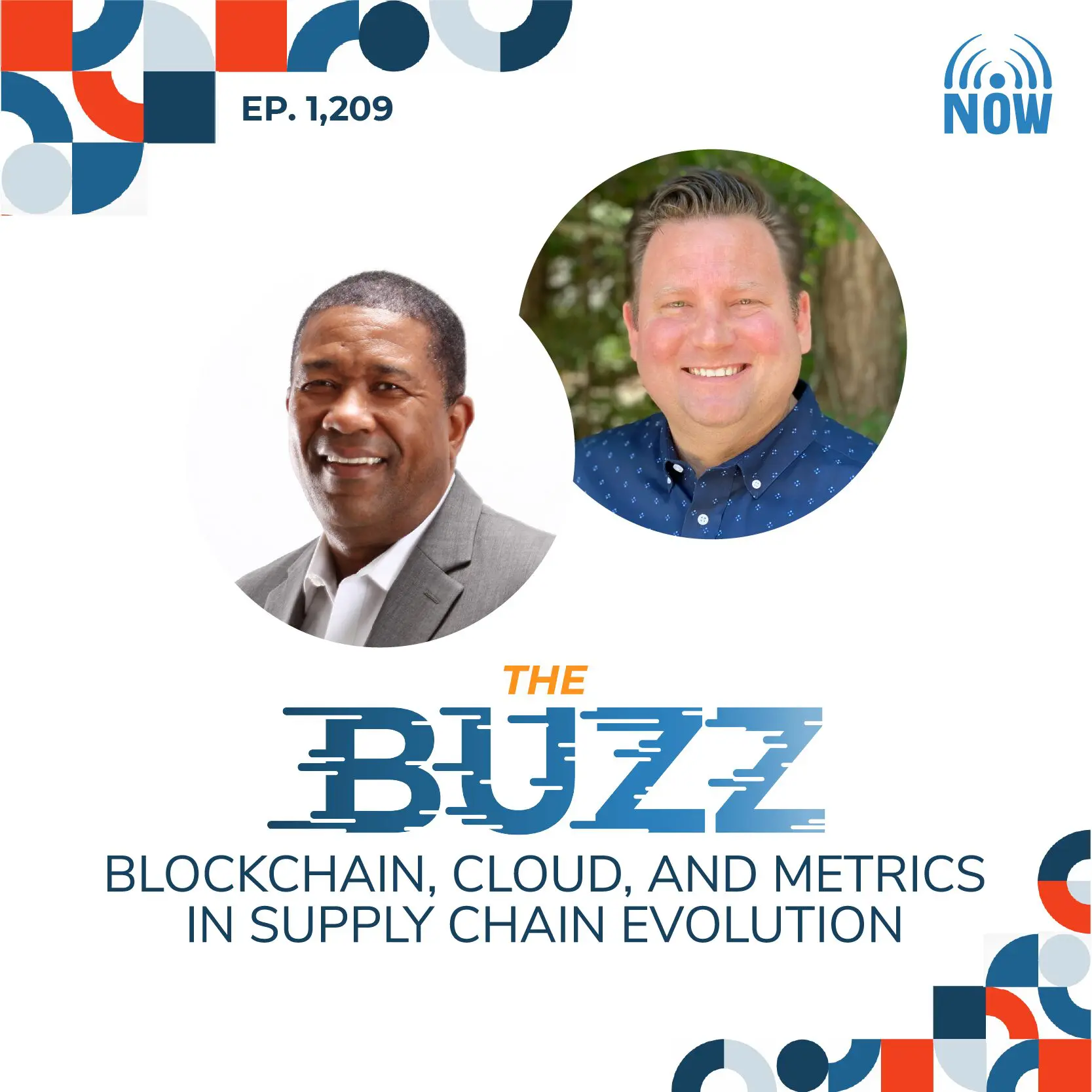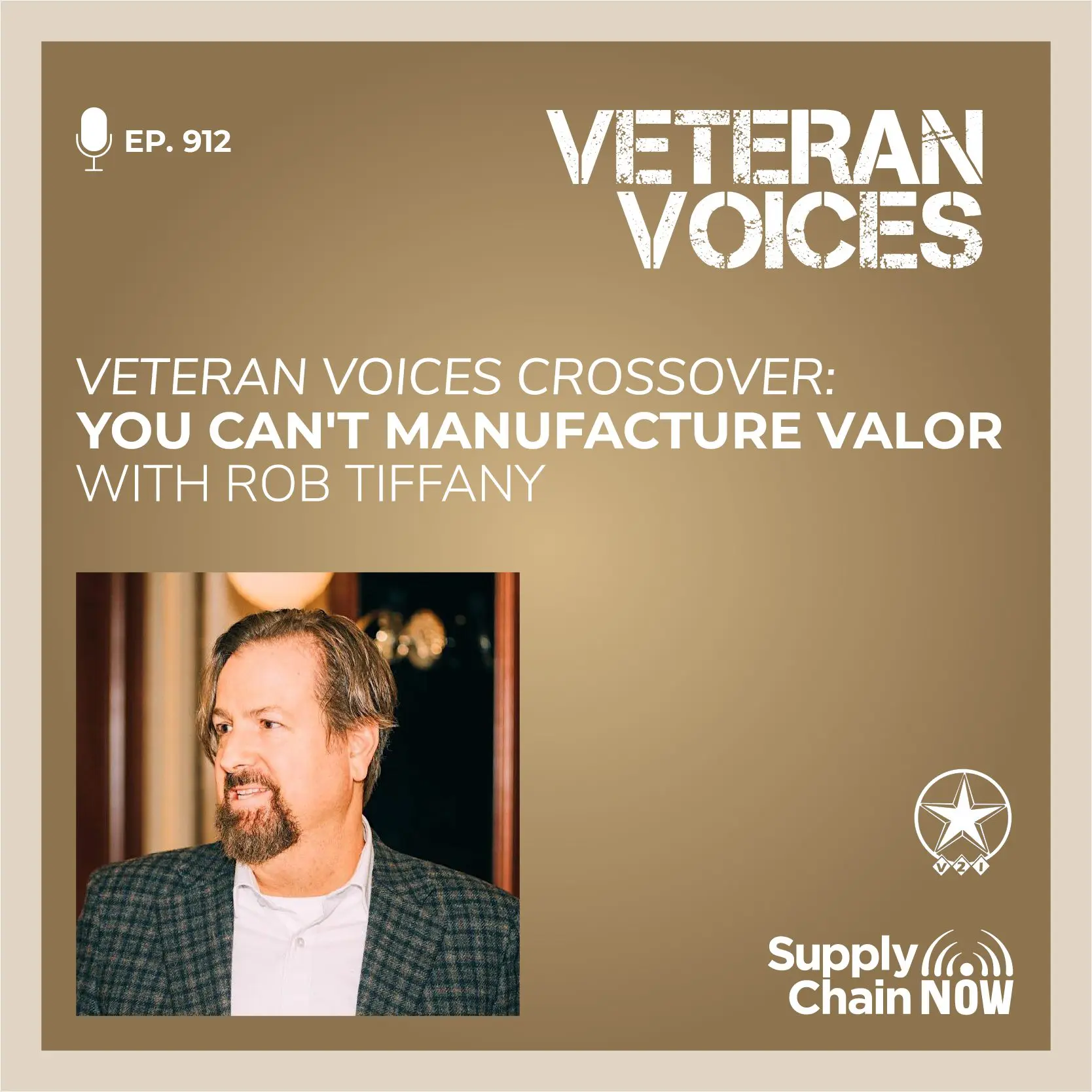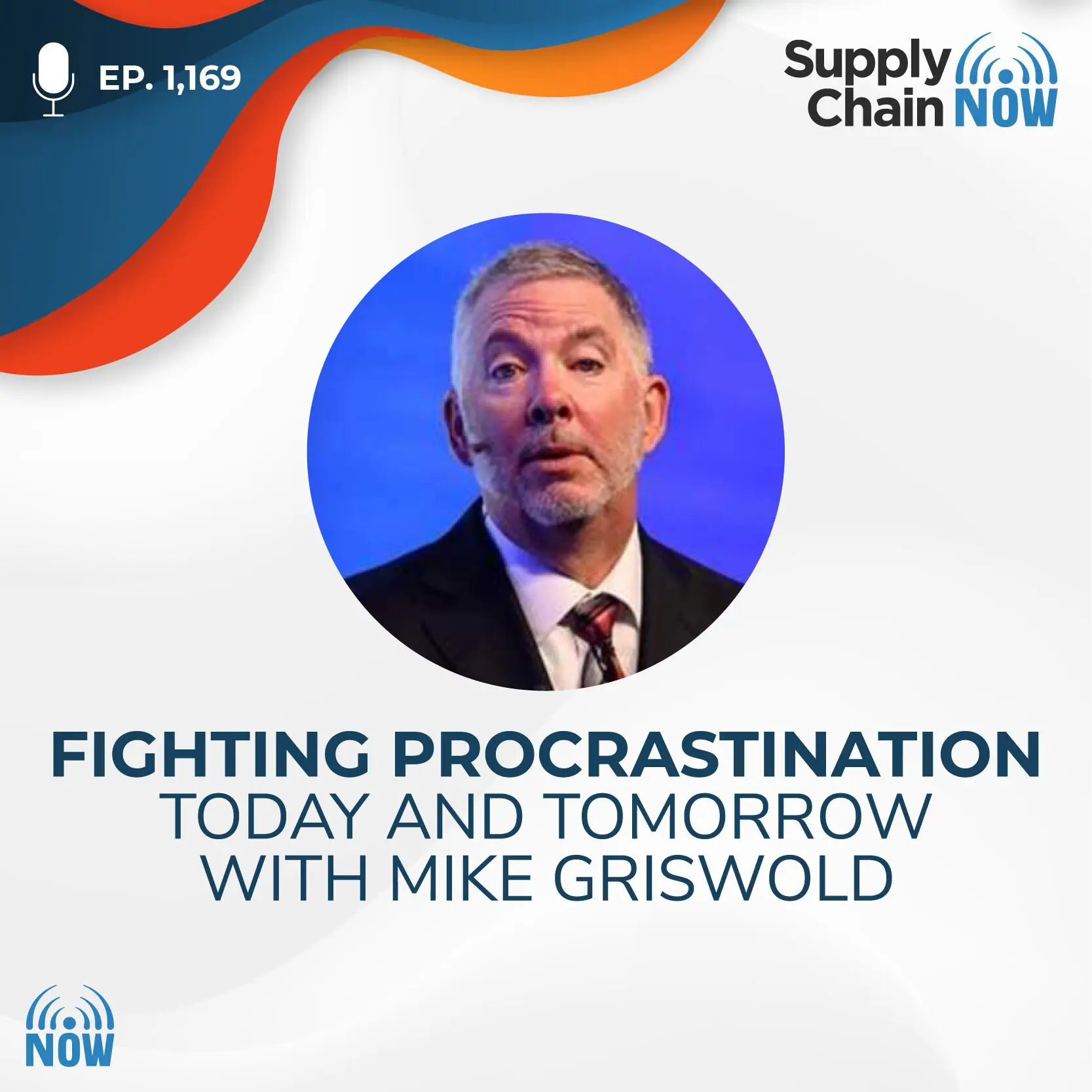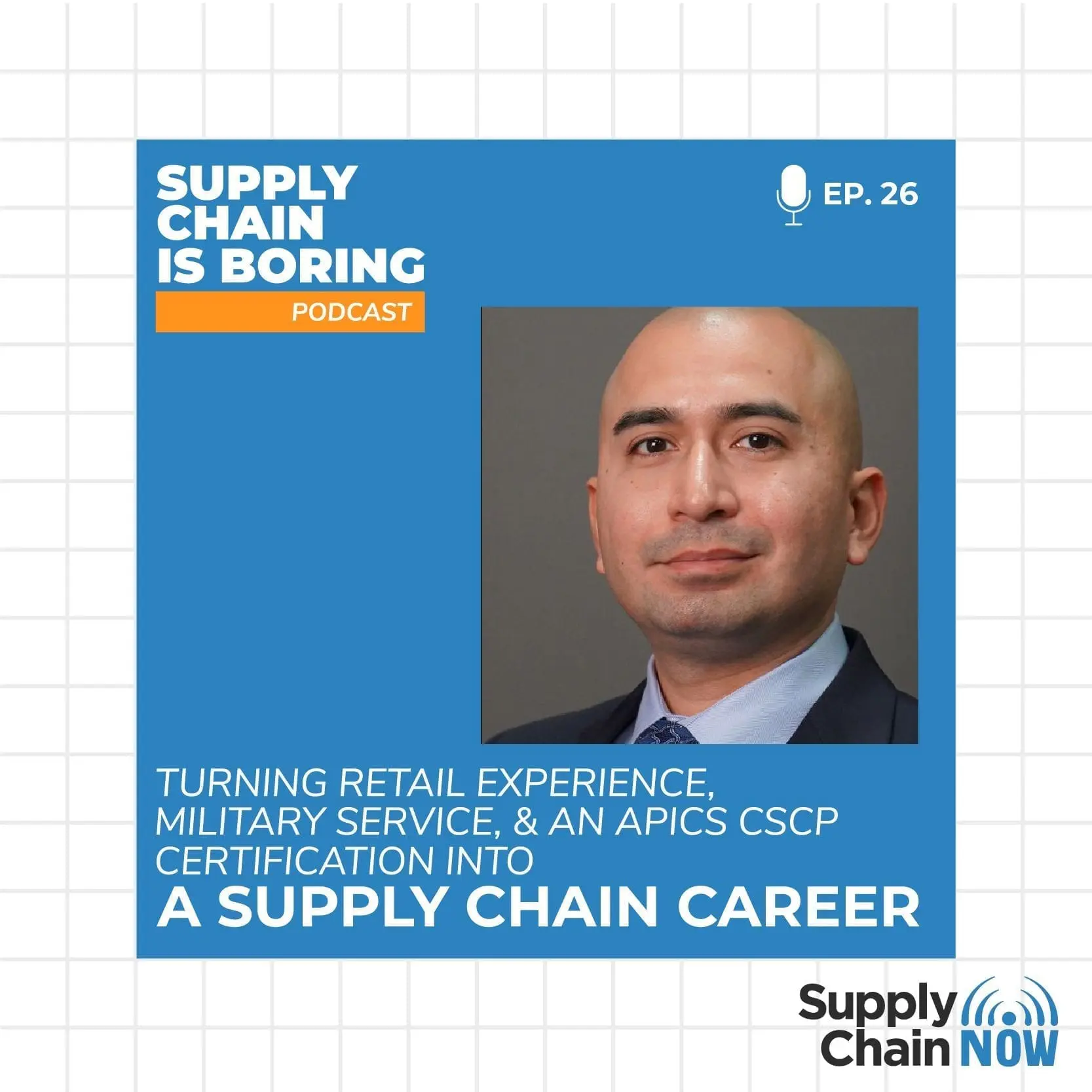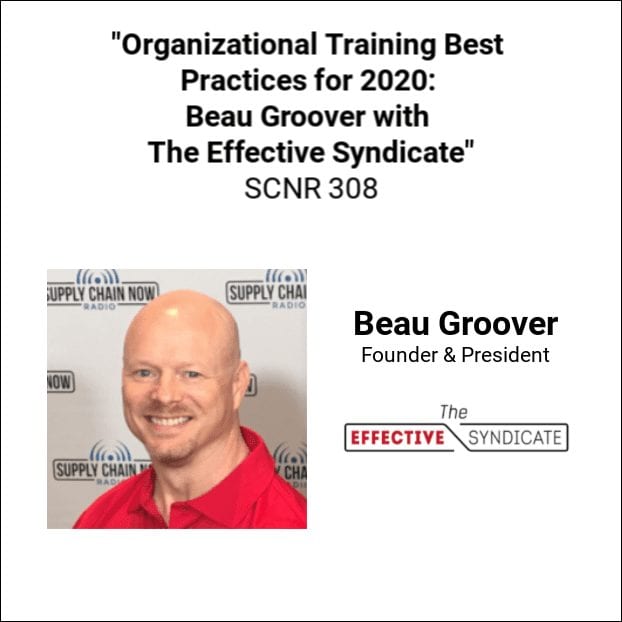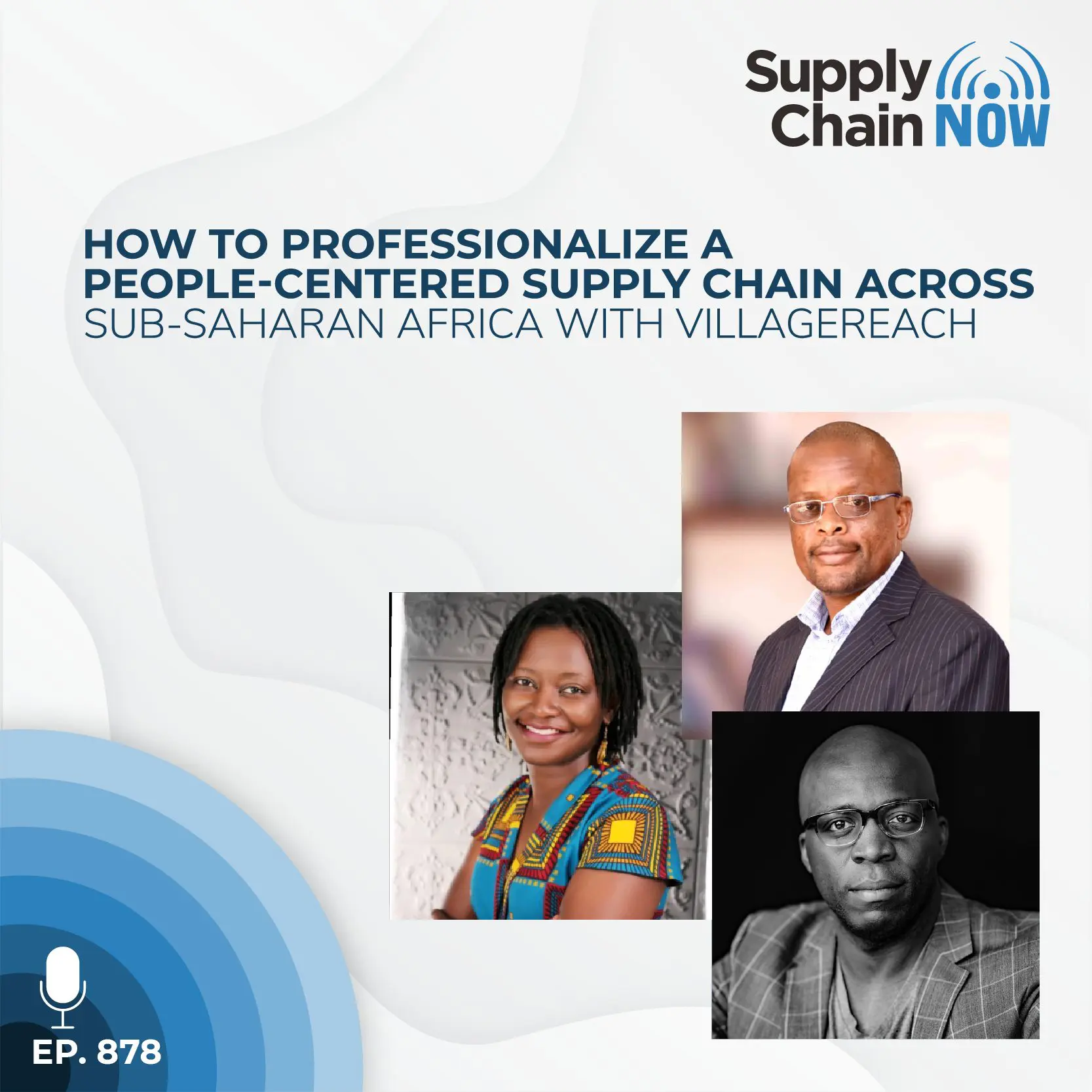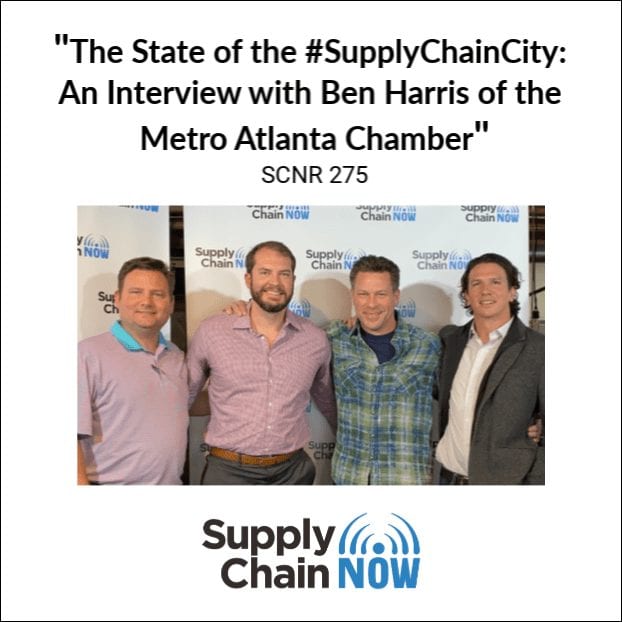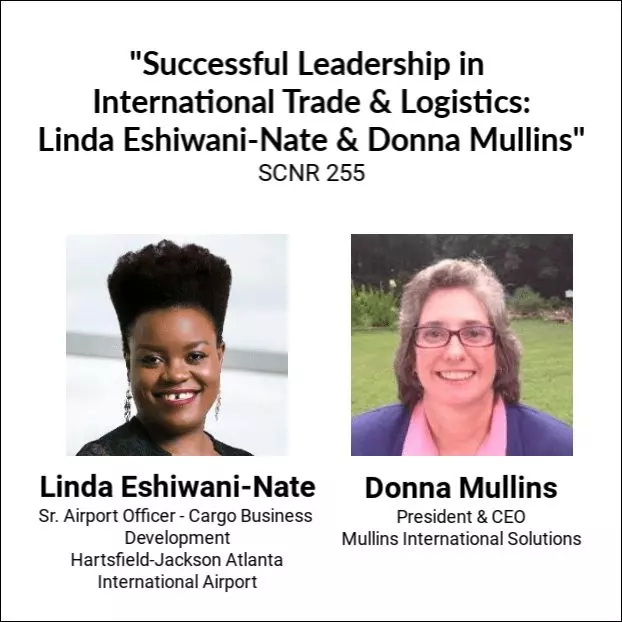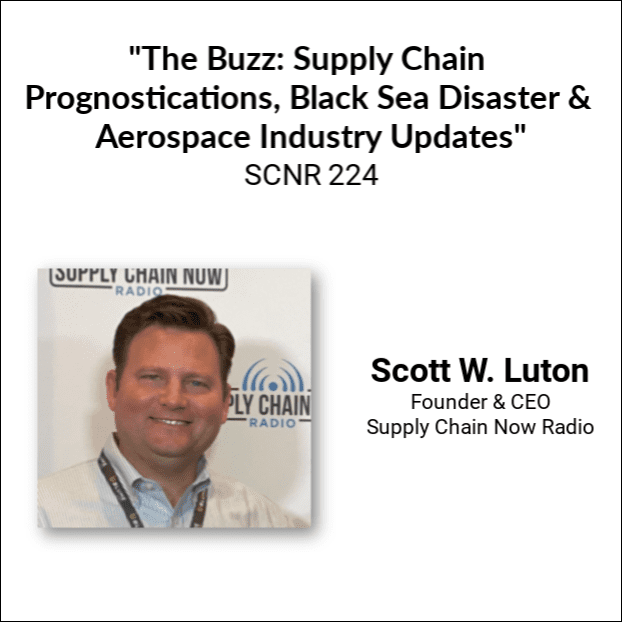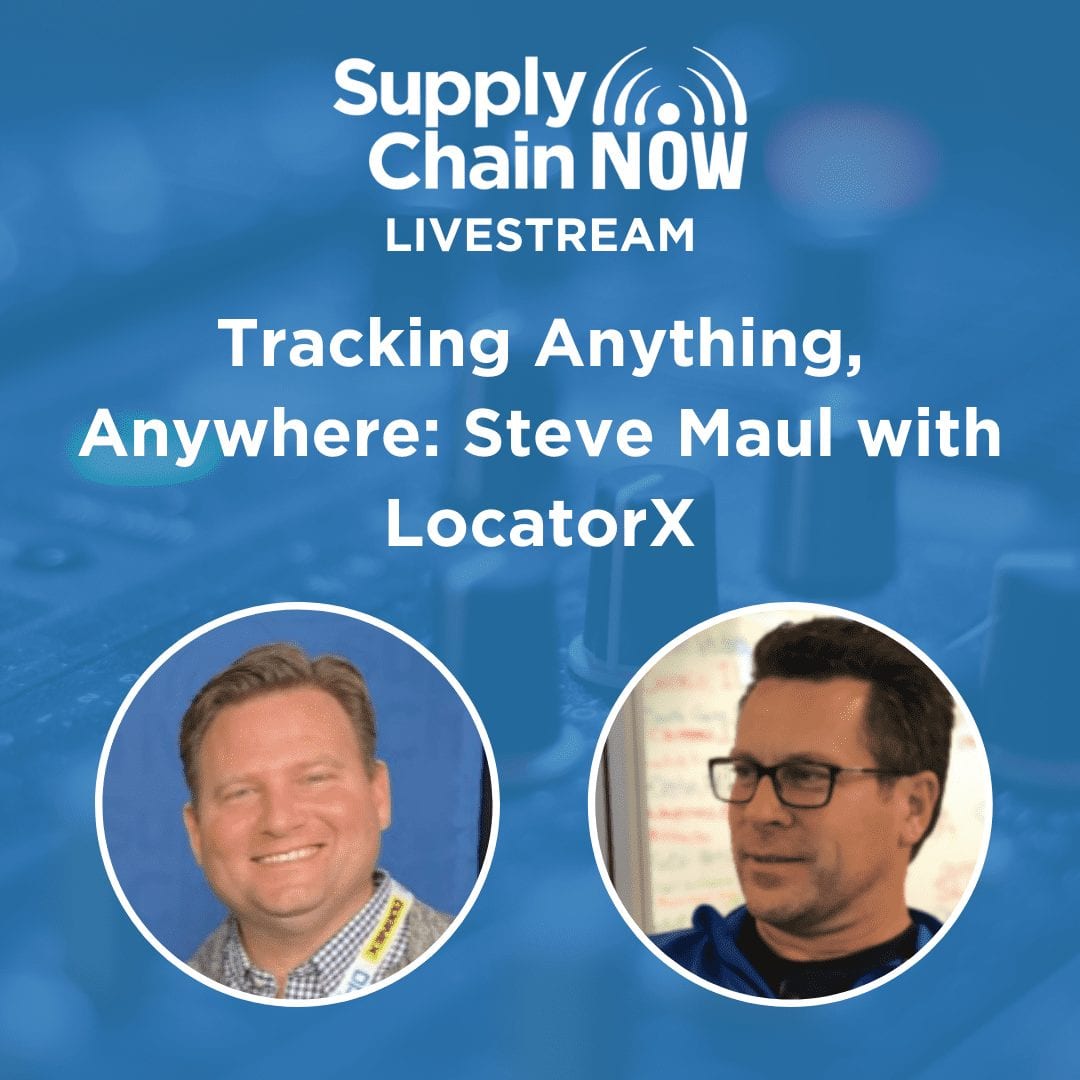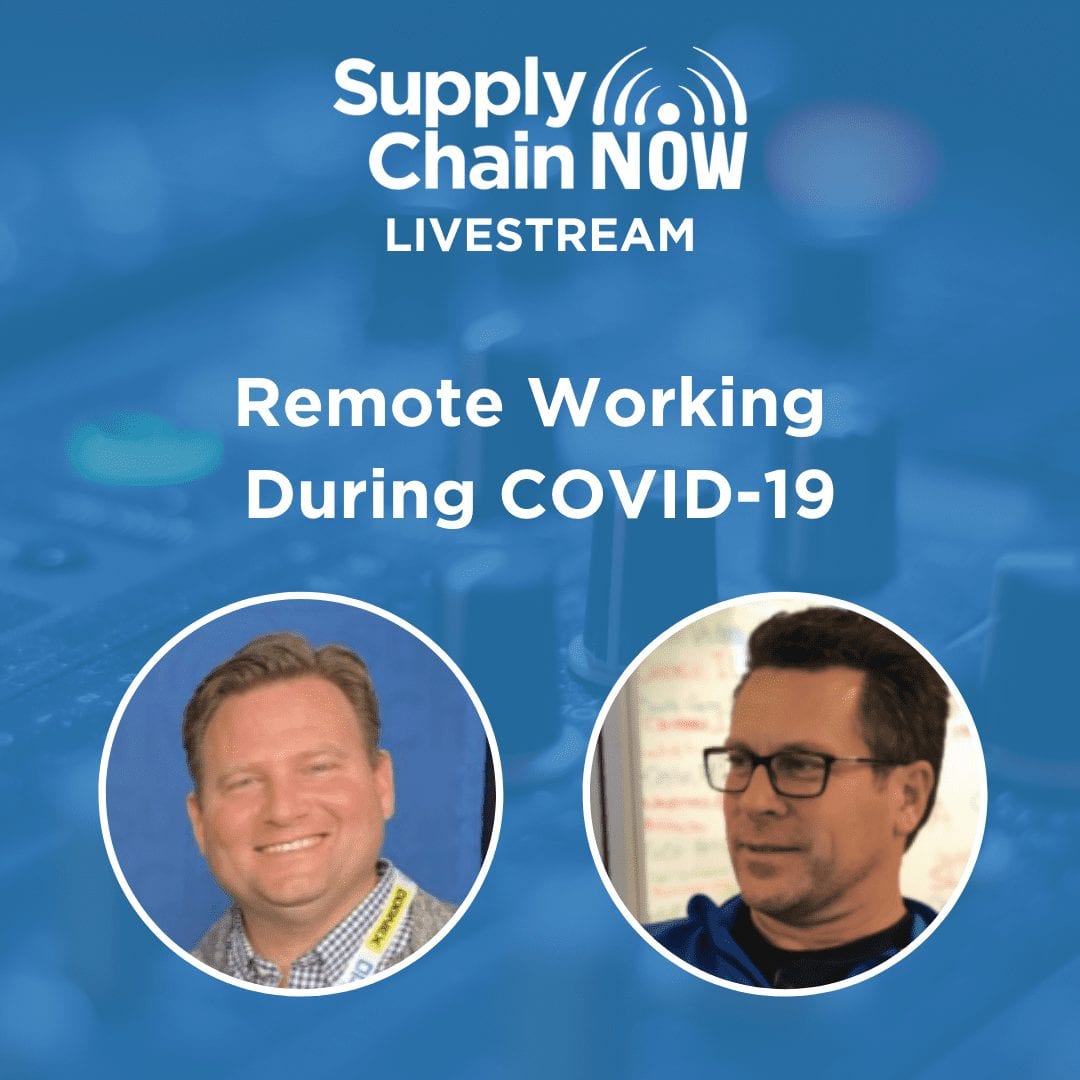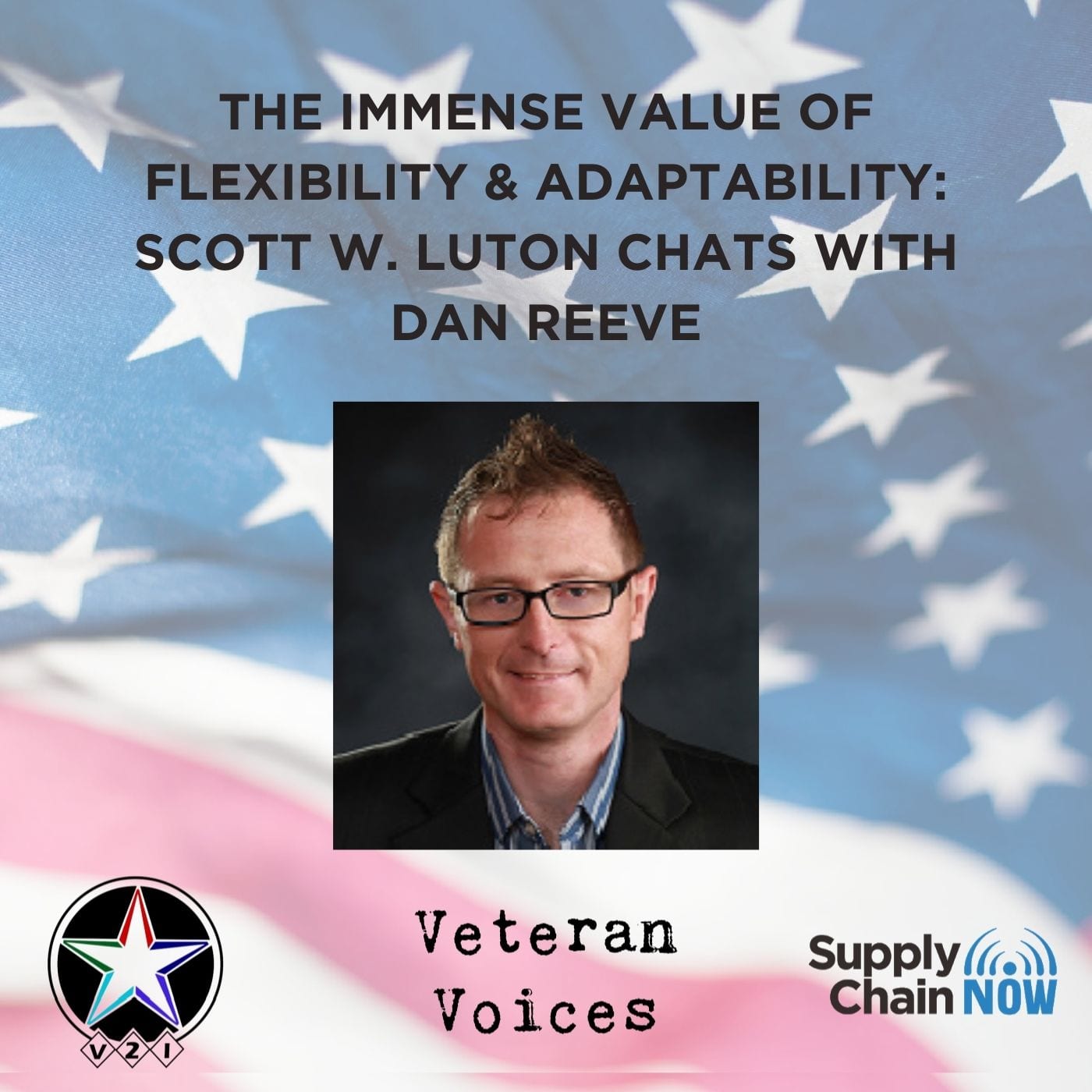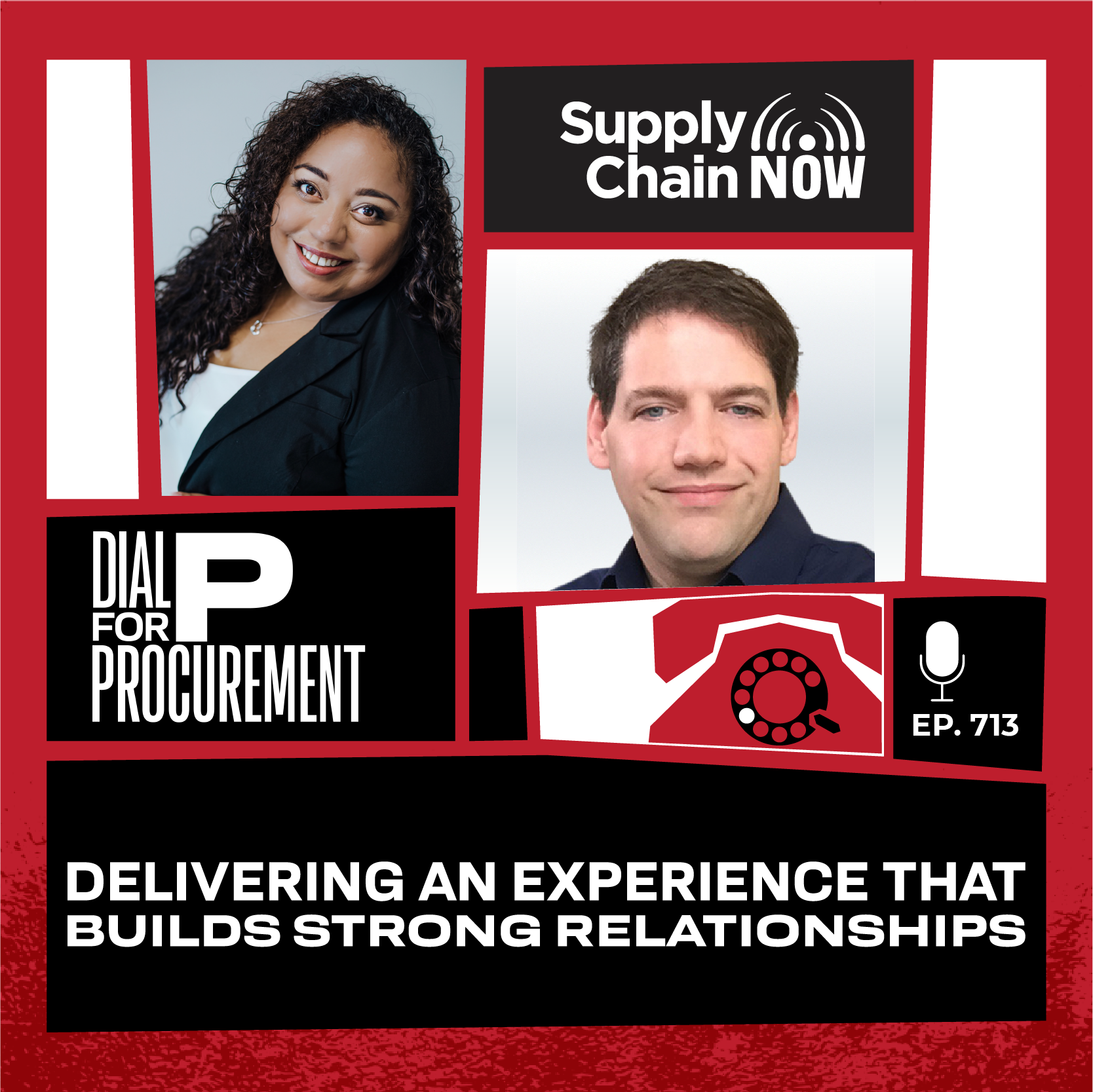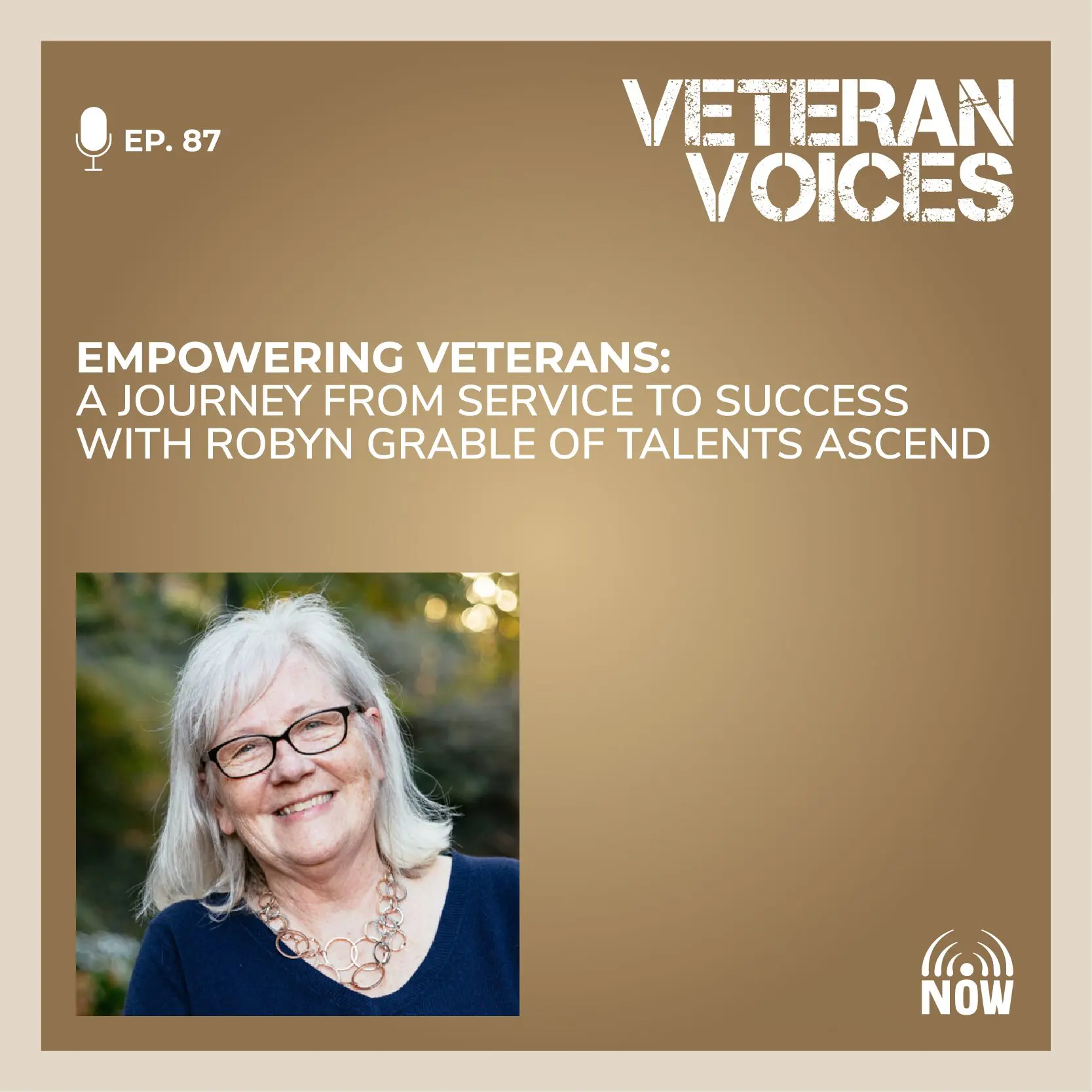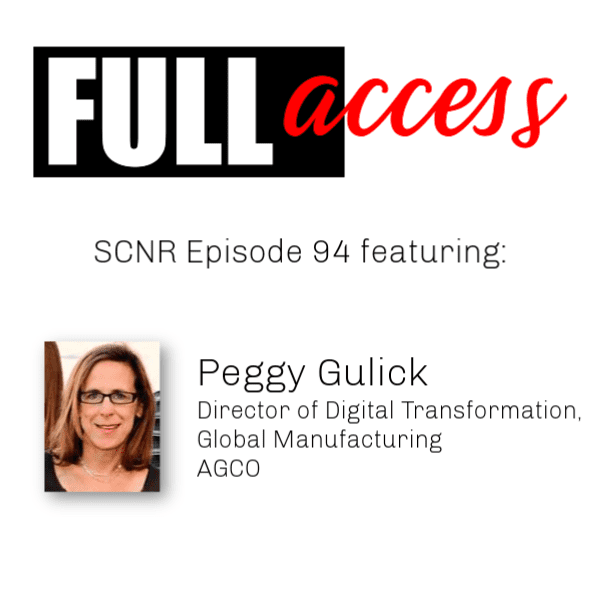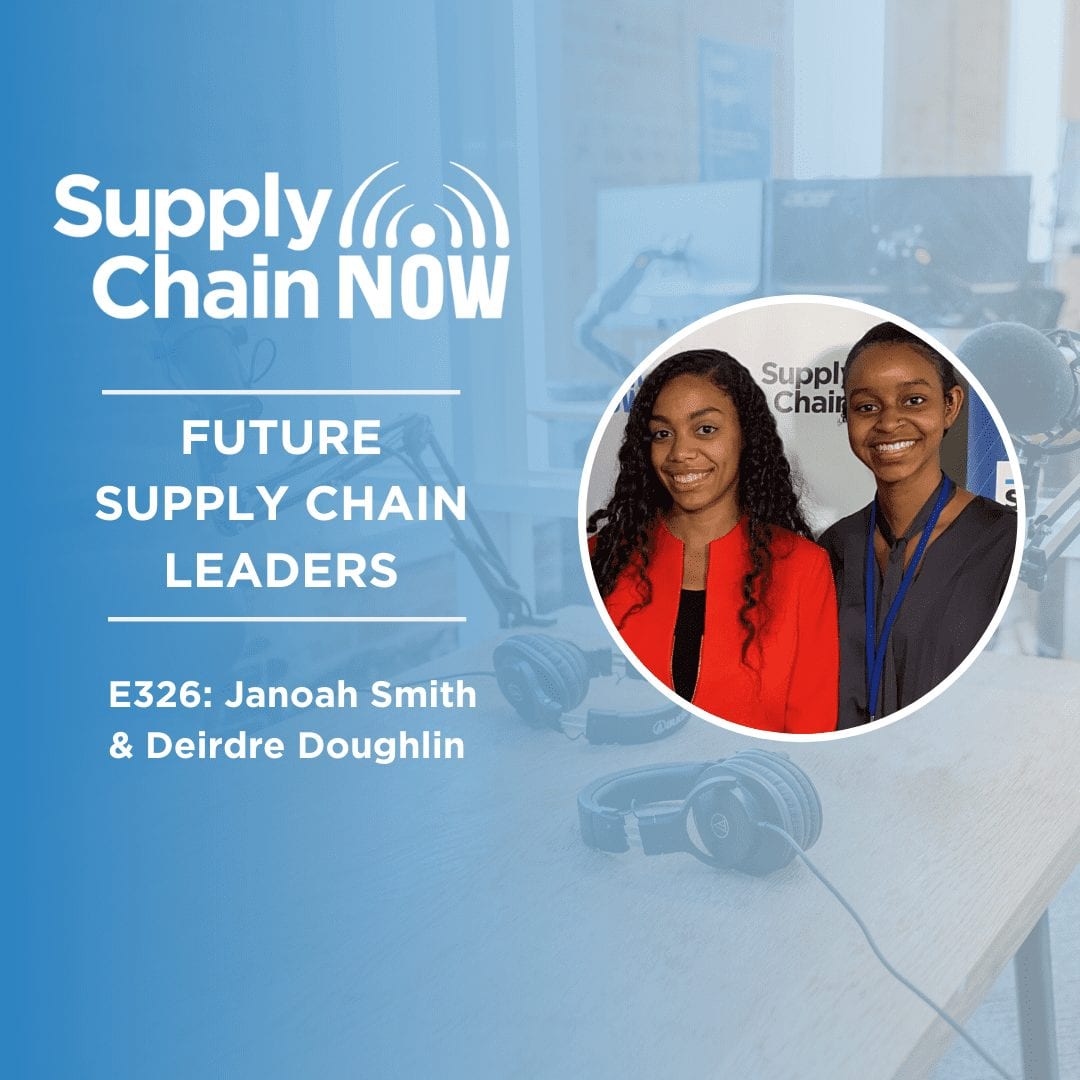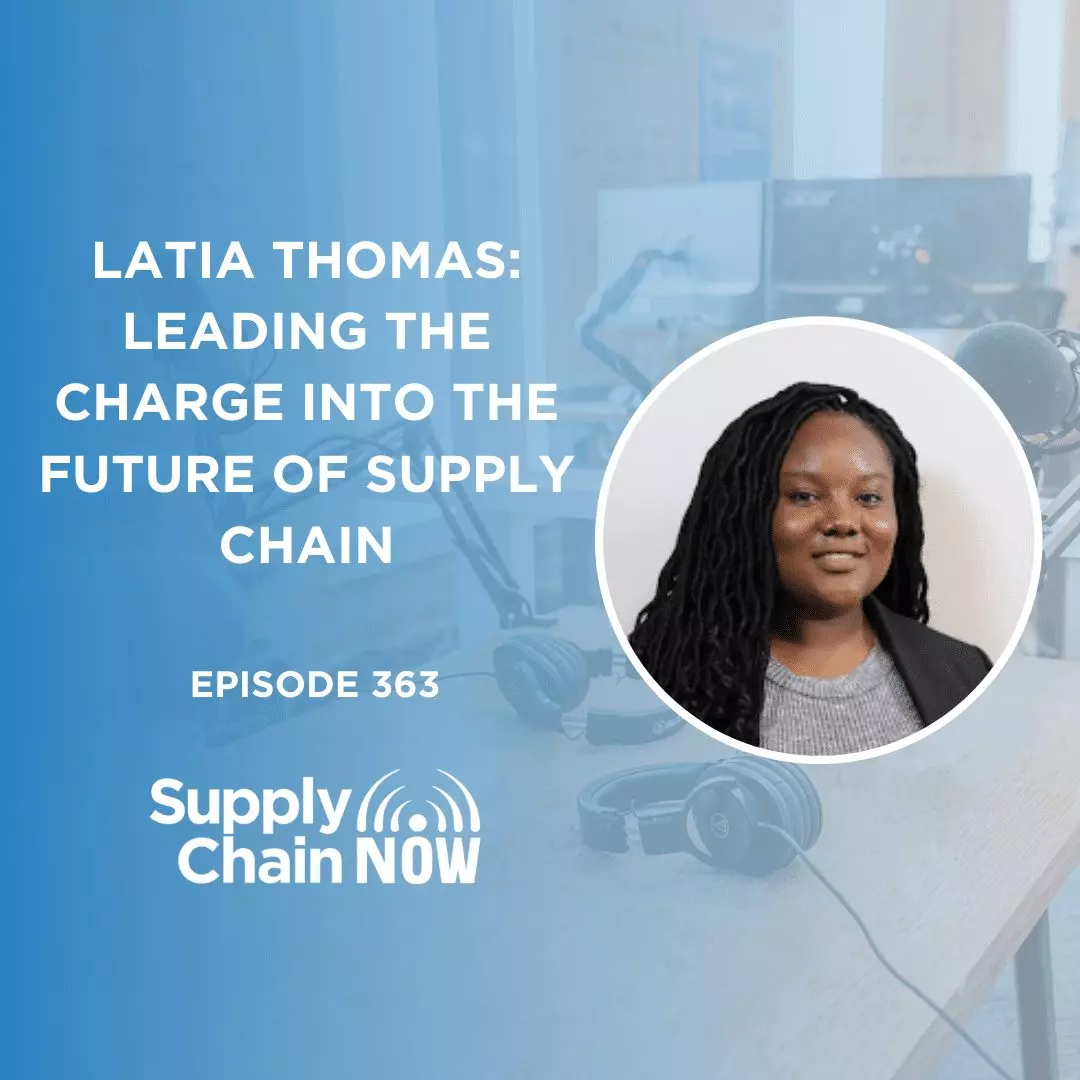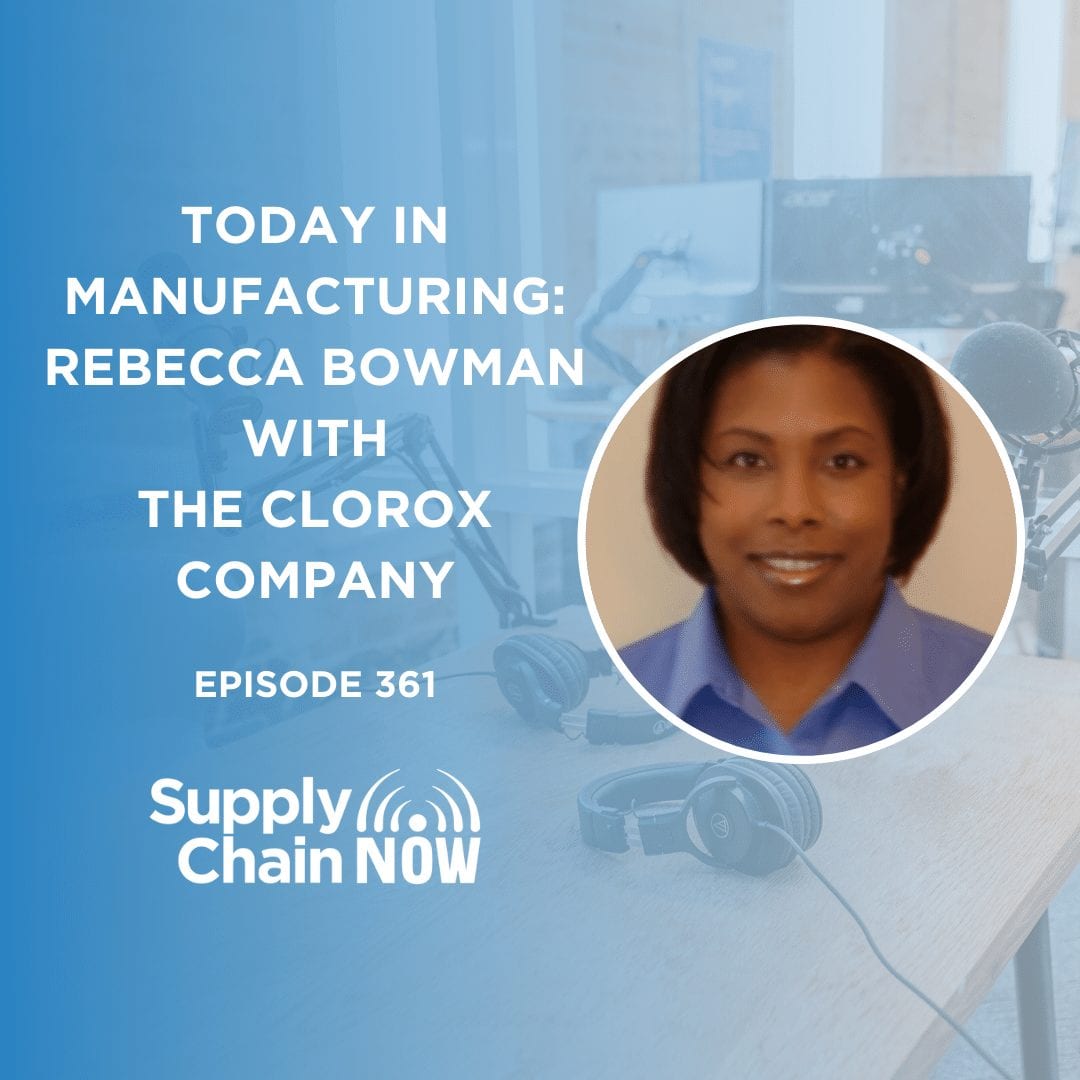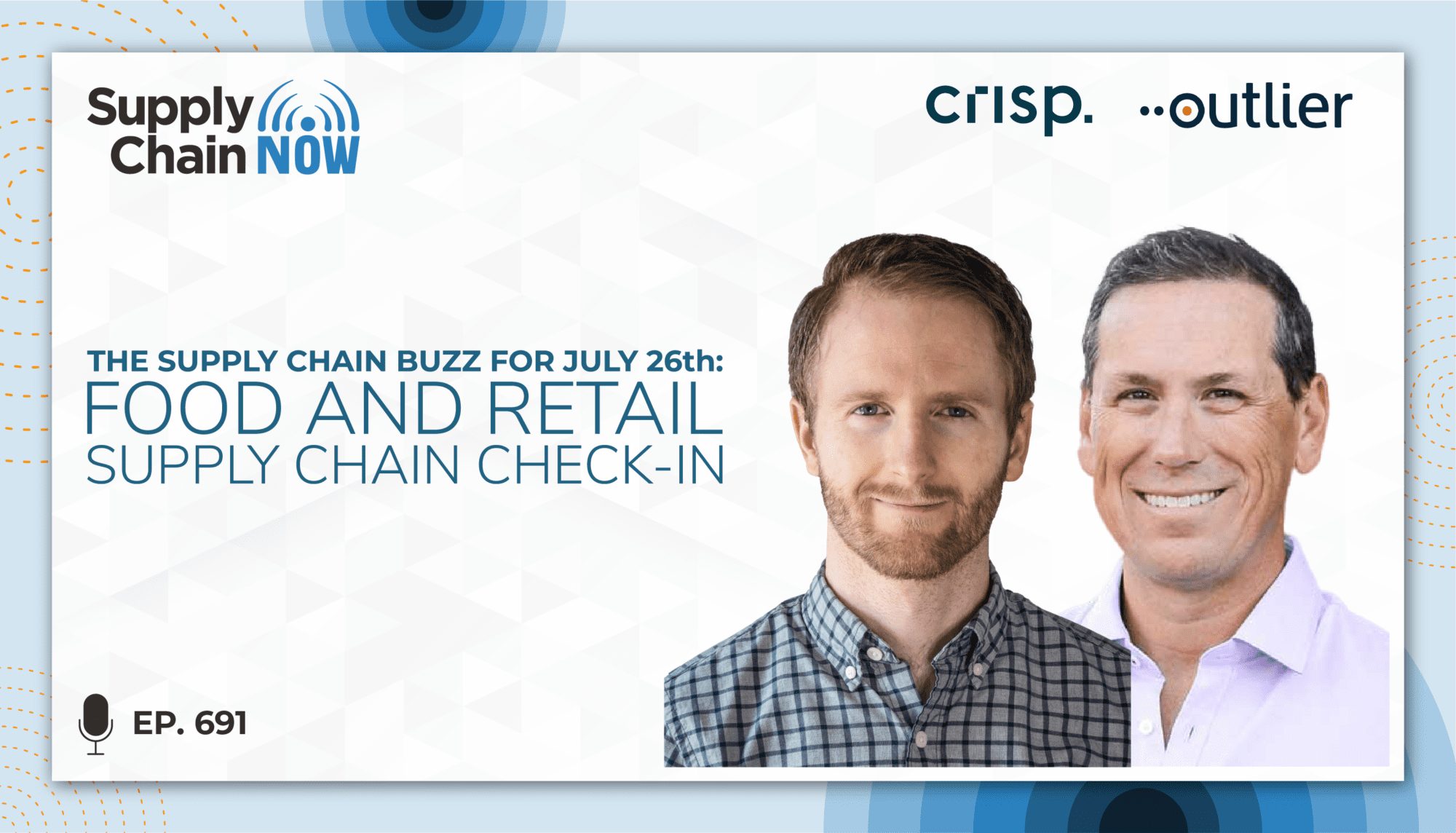
Episode Summary
“The more complicated the supply chain, the longer it will take to reach an equilibrium. That’s interesting because companies who had a cost advantage have seen that turn into a disadvantage on the flexibility side. Those who had higher costs are now more flexible.”
– Jordon White, Product Manager at Crisp
The Supply Chain Buzz is Supply Chain Now’s regular Monday livestream, held at 12n ET each week. This show focuses on some of the leading stories from global supply chain and global business, always with special guests – the most important of which is the live audience!
In this episode of The Buzz, Supply Chain Now Co-hosts Scott Luton and Greg White are joined by Jordon White with Crisp and Jerry Stephens with Outlier. They are focused on the use of data and augmented analytics to maximize efficiency and reduce waste in the CPG, food, and retail supply chains. Since data leads to visibility and visibility makes agility possible, companies with access to actionable data and analytics are better positioned than the rest to weather the supply chain disruptions being faced by all industries.
Jordon, Jerry, Scott, and Greg, take this fast-paced hour to review and discuss:
• A round-up of the latest news stories in supply chain, including the highest priority issues for retail supply chain leaders, and the impact that supply disruptions and supply shortages are having on school districts as they prepare to go back in session
• What the different product shortages are teaching us about the resiliency of different supply chains – and how companies are rethinking their sourcing strategy as a result
• The challenge represented by demand planning, especially when it is considered as part of risk mitigation efforts
Episode Transcript
Intro/Outro (00:00:03):
Welcome to supply chain. Now the voice of global supply chain supply chain now focuses on the best in the business for our worldwide audience, the people, the technologies, the best practices, and today’s critical issues. The challenges and opportunities stay tuned to hear from those making global business happen right here on supply chain now.
Scott Luton (00:00:30):
Hey, good afternoon, Scott Luton, Greg White with you here on Supply Chain Now. Welcome to today’s live stream, Greg, how
Greg White (00:00:37):
Are we doing? I’m doing great. I love the sunshine spirit of your shirt to go with an undershirt today. Not really wearing a white t-shirt isn’t it. I just thought I would give it a try. And it’s not an undershirt when you put that in the comments, please. Well, you know,
Scott Luton (00:01:04):
It’s great to start, uh, the Supply Chain Buzz with a couple of laughs. Uh, we’ve got a great show teed
Greg White (00:01:10):
Up here today. Yeah.
Scott Luton (00:01:12):
Welcome everybody. Uh, we have got, uh, not only are we going to be talking about some of the leading, uh, Newsmakers and topics across global business and across a global supply chain, but we’ve got a special theme today. Food and retail supply chain. Check-in Greg, and a couple of great guests. We’ve got Jerry Stephens with outlier and Jordan White with crisp joining us here about 1220 or so you jacked up ready to go.
Greg White (00:01:40):
How about Chris for the name of a food service or food food industry company, right. That’s right. Um, let’s see here
Scott Luton (00:01:52):
By the way, Tim says and good morning, Tim white t-shirts
Greg White (00:01:55):
Are cool. He’s an MBA and a CEO, so you’re good to go. Yeah, he can. He can proclaim like white t-shirt Friday or something like that in his own company. Well,
Scott Luton (00:02:10):
Um, he’s also really big in the healthcare healthcare supply chain, if I’m not mistaken. So Tim, great to have you back. We’re going to be probably talking a lot more about healthcare supply chain in the weeks and months to come. I’m gonna re we’re gonna go in and say hello to a few folks. And then we’re gonna knock out a couple of quick programming notes before we hit some of the stories of the hour. Um, I don’t have, I don’t see who this is, but good afternoon from North Carolina. Great to have you here. We’ve got someone from India via LinkedIn as well, uh,
Greg White (00:02:36):
From us today, aren’t they? Yeah. You know,
Scott Luton (00:02:38):
I think LinkedIn continues to go through some changes and by the way, folks, if you’ve got a security setting that doesn’t, um, if you don’t want your profile to be picked up by your third party platforms, such as our livestream platform, that’s typically where we run into a little challenge there. But the good news is we’re seeing a lot of other folks and their names and their bright smiling faces like Catherine White house via LinkedIn. Great to see you here, Catherine, let us know where you’re tuned in from Sushil is back with us via LinkedIn. Great to see you Peter bowler all night and all day is back with us from Canada. Peter. Hope you had a great time last night for your stepdaughter’s birthday dinner,
Greg White (00:03:16):
Greg. So Peter and I were talking this morning about the medical device supply chain. So I don’t know if you saw the articles Scott, but the FDA is pandering for money, panhandling for money, um, to whatever, be better in supply chain handling. So I may or may not have had a word or two to say about
Scott Luton (00:03:41):
Today. I saw a little of that. Uh, and folks, if y’all want that daily dose of Frank, um, stuff you got to know about global supply chain global business, make sure you’re connected with Greg white. Uh, he drops it on LinkedIn just about every morning around eight o’clock so good stuff there. Helene is tuned in via LinkedIn via France. Great to have you here, Elaine. Thanks so much for joining us and hopefully I pronounced that first name, right? If I didn’t let me know, uh, Tom Raftery, uh, is back with us. Hope this finds you well, Tom, great to see you here today and hello and good morning. Good afternoon to everybody else that we couldn’t hit. Uh, let’s see my
Greg White (00:04:19):
Mood. Sorry, go ahead.
Scott Luton (00:04:24):
Who does tuned in via LinkedIn from UAE? Great to see you here. Mahmoud and our friend, dear friend, Gary Smith tuned in via LinkedIn from New York city. Great. See Gary, welcome everybody and really big, thanks to Jada Amanda, Allie and clay behind the scenes making it happen here today. Okay. So Greg, we’re going to be moving fast on this front segment before we bring on our guests. You ready
Greg White (00:04:48):
To go? Let’s go. All right.
Scott Luton (00:04:50):
So let’s do this. Let’s talk. Uh, if you all join us for these streams, then you know about these events, but just want to call your attention to it. Uh, our big webinar tomorrow, digital transformation, how it accelerates and strengthens your supply chain one o’clock Eastern time tomorrow, a little bit of a delayed start, but it’s free to join us. Come join Kevin and I, as we navigate this conversation with our friends from TCU and Esker and the link to register is in the show notes. Um, Hey folks, if you’re looking for a job, looking, looking to find a job, looking to how to work with recruiters, you looking to, um, improve your leadership skills and then some check out this free webinar, July 29th, we’ve got one heck of a panel. Greg assembled, Mary Maria, crystal, Peter, Rodney, and mark. And for about three hours, they’re gonna be offering a mini masterclass on how to strengthen all of that, uh, for any of the candidates, uh, or folks looking to move up the ladder, so to speak, um, across industry Greg, that’s a, that’s a home panel
Greg White (00:05:49):
There. I should probably sit in on that and as much as I’m virtually unemployable. So, um, in any, in any case, any of you have to be in better, better shape than I am, but yeah, definitely tune in. I mean, we’ve got people whose job it is to help people through their careers like Rodney P people who have been through their entire career and basically starting over Peter, um, and all of these current leaders that are making it happen every day. So I think we’ve got a great panel there.
Scott Luton (00:06:17):
Don’t miss this, join us this Thursday at 4:00 PM Eastern time. Just make sure you registered link register is in the comments. And then finally, Hey, we’re really pleased to serve as the exclusive provider of the digital version of the supply chain insights global summit coming up in September Larysa Siri, she’s the, she’s the mayor of this conference, the ring master. So to speak September 7th to the ninth, um, it is a hybrid event, uh, but to attend there, uh, it’s, it’s very exclusive to attend. If you go to supply chain insights, global summit.com, you can learn more about tending in person or you can sign up for the remote feed. And Greg and I are going to be navigating that for the, uh, three days and, and featuring some of our hosts and, and some of the folks that are attending virtually. So learn more and join us in September
Greg White (00:07:06):
Three, whole days of me and Scott live. What more could you want the truth is this, I mean, this is a really good and really powerful session as always anything, uh, with Laura is, but I think we’re starting to see Scott, more people kind of moving towards virtual as these variants and whatnot kind of right.
Scott Luton (00:07:33):
But man, get educated. Okay. And, um, you know, COVID aside, uh, it’s great to be connected and network and, and, and get informed. We’re going to be featuring some of the movers and shakers across global supply chain, including some of the folks that are in the stories that we’re about to cover here today. So y’all join us and I’m looking forward to a wonderful September event. Hello, Daria. Great to see you here today. Tuned in via LinkedIn. He’s going to be, uh, I believe in Atlanta soon, tending Georgia tech when [inaudible] is back, um, the Jerry Seinfeld of supply chain. And they’re fine. This finds you well and great to see her today. I believe, uh, Amy Fisher is with us. Um, I can not find her comment, Amy. Uh, good morning. Hope this finds you well have enjoyed our conversations going back a few weeks. Okay.
Scott Luton (00:08:23):
So Greg, are you ready to dive in? We’ve got three stories. Um, about 12 minutes, my friend let’s do it, Tom and me. All right. So, uh, want to share a couple of quick headlines before we bring in, uh, Jerry and Jordan, uh, and want to lead off with this great read here in supply chain, DOB Greg, one of our favorite sources here been uncle’s B, which is a new name for me, it’s supply chain DOB. Um, but nevertheless, this is a great article offers highlights from NRF, retail converge. So Greg, get this you’ve, we’ve heard the term agility once or a million times, but that was one of the major themes that rose to the top of the surface for this gathering of retail supply chain leaders. Now, Tony is Wazo. I believe I may have mispronounced his name Z U a Z O Suazo.
Scott Luton (00:09:16):
Um, he’s EVP global supply chain at dollar general. And he shared the, his company. He’s one of, one of, uh, numerous, uh, retail supply chain leaders at this conference. Now dollar general is, are on like every corner, right? It’s amazing. But his company has been able to keep up because they’ve gone the route of a single integrated distribution platform. Greg, this enables any store to be served by any distribution center to network and get stuff the next day, holy cow, dollar general, at least according to Statista had over 17,000 stores in 46 states as of February 20, 21. Goodness gracious. So Greg, one of the things, and we’ll get your takeaway here, Tony. [inaudible], he’s gonna kill me if I get this wrong, but anyway, he’s gonna be one of the keynotes at the store.
Greg White (00:10:06):
What’s that? Do you want me to tell you today? September until September
Scott Luton (00:10:13):
He’s one of the keynotes yeah. At the supply chain insights global forum. So he’s going to be sharing a lot of what they’ve been experienced in that dollar general, uh, and you know, what they’ve been doing to advance through these, these, uh, ever challenging sets of circumstances. Uh, all right. So Greg, you’re taking,
Greg White (00:10:35):
Well, there are notably a high performer in terms of supply chain, even during the height of the crisis, they’ve done a great job, 17,000 stores, you know, regardless of how big the store is or how many skews you have in it is no small challenge. And they are all over the place. Um, my wife loves dollar stores, man, if there is a holiday coming up and you get a card from us, chances are very good. It came from a dollar store balloons. Everything’s a dollar. So, um, no, but so, I mean, we’ve actually had some opportunity to, to, um, take a look at how well these stores are doing. And as I said, dollar general has stood for years as, as a model for retailers and having an efficient supply chain. So, you know, good on them. And we’re definitely listening to the right person who has had both experience and success in the, in this difficult, excellent
Scott Luton (00:11:39):
Point. And by the way, I should correct myself. That was retail dive. And then we quote a lot and source a lot from supply chain die, but this is one of our sister, uh, properties, retail Dobbs. You y’all check that out. Good job. Uh, Ben, uncle’s be their retail dive. Okay. Moving right along. Hey, we’re close to the head and back to school here in Georgia, Greg, uh, I think our kids start next Tuesday.
Greg White (00:12:01):
Wow. But
Scott Luton (00:12:03):
The wall street journal is reporting that school systems across the country are having to cut down on menu offerings and other aspects of their programs. Do you guessed it supply chain or supply issues ranging from food items to even these plastic lunch trays, some labor shortages, and of course, transportation challenges in this hot freight market, as we chatted about on Friday with the U S bank team. And SanMar um, quick commentary there, Greg, I know your, your kids are a little older.
Greg White (00:12:35):
Um, you know, it, it never ceases to amaze me and this, this is totally personal commentary. Why we go back to school earlier in the south where it’s hot and later, which makes sense. And later in the north, when they go after labor day, I can see like one that would save a lot of energy and give the supply chain, maybe just a few more weeks to recover. But as if school food is not bad enough, now you can’t even get the best of it. Well, guess what, in your kids to school with a brown bag folks. So
Scott Luton (00:13:12):
We talked chicken a lot, uh, last week on a couple of streams, including of course, uh, with the U S bank folks about freight. And there’s reportedly a shortage of chicken nuggets, uh, for institutions here
Greg White (00:13:25):
In Greece. It’s a cascading effect from the, from the wings that we’ve been talking about. In fact, last Friday, I was, you know, my next door neighbor owns a sports bar in Kennesaw and old town Tavern. If that’s, if you’re interested outstanding wings, but I haven’t eaten wings there for six weeks because they are 20 bucks, 10 wings. I must be really extra delicious, their weather, the really big ones. They have like a name for actually probably Jordan or Jerry. Know what the name is of them, but they’re like size anyways. Uh, now, now it is, it has created a cascading effect on chicken breasts and chicken tenders and chicken nuggets about
Scott Luton (00:14:09):
That. Well, uh, tune in next week for the right. So I want to share a couple of quick comments and we’ll knock up the third store before we bring on our, our wonderful guests here today. Uh, Rama deep is back with us via LinkedIn from Mississauga,
Greg White (00:14:27):
Ontario. Okay, Ontario.
Scott Luton (00:14:29):
Yeah. Thank you, Greg. Appreciate that deep. Great to have you look forward to your perspective here today, Tom Raftery, low commentary, $1 poor balloon sounds kinda expensive, Gregory.
Greg White (00:14:40):
Okay. I mean, um, I’m, I’m willing to go to Spain if the balloons are lower costs, Tom, right. But these are Mylar balloons kind of like pictures, happy birthday and that kind of stuff. So, or
Scott Luton (00:14:54):
Pod, uh, you know, those, those were school trays as best I could tell, uh, that might feel like prison sentence,
Greg White (00:15:01):
But if you happen to know the difference, please do share. That’s
Scott Luton (00:15:04):
Right, John. Bufalino great to have you here. Good to have you back go back right. For labor day so long that’s um, gosh, a month after ours go to back, uh, brown bags with PB and J all day. Love that. Yeah. Um, okay. So I wanna keep driving here. We’re gonna pull up this next story here, Greg. Although think, you know, w when we start talking school, cafeteria is that’s like a universal. Everyone can relate to that. Right. Um, so we could probably have feature a whole episode around that, but nevertheless, we’ve got, gotta keep driving. Here’s some good news, Greg. So according to this door via, uh, NPR leaders in the food industry may finally be addressing cyber issues. So that attack on JBS, you know, the, the meat packing Titan appears to be turning more heads and prompting the food industry to get, uh, to take more proactive action on cyber threats. Many analysts have long pointed to various gaps when it comes to cybersecurity and, uh, the complete failure to act and to, uh, update and address these risks, these risks, but maybe the Tod starting to turn Greg, what say you?
Greg White (00:16:13):
Well, it’s, it’s about time, uh, because the manufacturers are the ones who make all the money in the food industry. And, um, I can understand why distributors and retailers are possibly somewhat lax, but you know, these big processors and manufacturers, there’s no excuse. So thankfully that is happening, you know, hopefully as they do many things, they, they will either mandate or, or, um, support those, the opportunity to participate in, in, uh, what do you want to call it? Cyber safe environment, right? For, uh, people downstream like distributors and retailers and, and assure some, some, uh, cyber safety security through the, through the supply chain there, it’s tough. I mean, I’ve worked with, with food service and food wholesale distributors for a long, long time, and their margins are thinner than a razor suck. In some cases, the only way that food distributors for instance, make a profit is by forward buying hedging inventory ahead of a price increase, or when there’s a discount, otherwise they literally make negative net margins. Wow.
Scott Luton (00:17:29):
And, and w the other, uh, this is a great article, uh, but one of the big, big changes shifting of the dynamics is, is now, uh, you know, you got four companies, at least when it comes to, uh, beef processing that may come, you know, some 85, 90% of the market. So one of those goes down versus, you know, how disseminated and how widespread the processing, you know, they say 60 years ago, it was in one of these major players go down, it’s going to cross a big ripple effect across industry. So, um, but a great story, and it is good news. And Greg, hopefully they’re able to, um, maintain those tight margins while, you know, protecting their operations. We shall see, um, I want to say a low room room design is back with us from Zimbabwe via LinkedIn. A great to see you back. We’ve enjoyed your participation in a couple of these, uh, sessions here. John [inaudible] agrees with you. No excuses, a hundred percent. Greg loved that, uh, near FOD goes back to his prison trades that really got his attention to some more now,
Greg White (00:18:34):
Because that’s what I was implying. When he went
Scott Luton (00:18:37):
To prison, they looked a little less colorful. He was saying that the picture we had a good stuff there to fun. Okay. So let’s, uh, let’s do this. I want to bring in our two featured guests here today, and we’re going to be talking about food and retail supply chain, some observations here. Uh, Greg, I want to, uh, welcome formerly Jordan White product manager with crisp and Jerry Stephens, VP of global sales with outlier. Hey, good afternoon, gentlemen, Jerry, how are you doing? Doing really
Jerry Stephens (00:19:08):
Well, thank you. Nice to see you. It’s kind of wonderful.
Scott Luton (00:19:11):
You as well. Great to have you with us and Jordan. Good morning. Good
Jordan White (00:19:14):
Morning. Definitely.
Scott Luton (00:19:16):
Well, we enjoyed our pre-show conversation with you, both talking all things, uh, Cincinnati and Utah, uh, Ohio and Utah should probably say, uh, but before we get into a really neat story that I think we all were checking out over the weekend, let’s get to know y’all each a little bit better. So Jerry starting with you, tell us a little about yourself and what you do. Yeah.
Jerry Stephens (00:19:37):
First of all, thanks for, um, you know, providing the time. And I’m really excited to have this conversation today. So just a little bit about me. I’ve been with a company called outlier.ai for the last couple of years. Uh, as you mentioned, I lead our sales organization working across many different verticals, including, you know, what we’re going to talk about today with regard to retail and food, et cetera. Um, and then what outlier does essentially, you know, I think outlier is a leader in augmented analytics. Um, essentially what we suggest to our potential clients and clients is that, you know, insights exist in your data and they exist in your data every day. And it’s just a matter of one of the organizations doing a tap into the data, to the insights. So without learning does, is automate that automate the mining process and delivers what we call stories, uh, to individual users. So that’s what, that’s what I do. And, uh, personally, you know, I, I, I don’t follow the reds Scott cause we talked about previously, um, more of an ETL and soccer guy, but, um, but really enjoying the Olympics today, but, uh, you know, a father of five and, uh, and look forward to this conversation. Wonderful man, I followed the Montgomery Montgomery and has been good. It’s been good, good to me over the, over my lifetime, but I’ll just leave it. That is a
Scott Luton (00:21:00):
Legendary restaurant in a couple of different cities in Ohio, and they also, uh, make a great barbecue sauce, which you might can find in your grocery store. So great to have you here, Jerry, um, and gosh, father of five, you’ve got your own significant supply chain, uh, you’re working in your own lead in your own house.
Jerry Stephens (00:21:17):
So yeah. Lunch example.
Scott Luton (00:21:22):
So Jordan, good afternoon. How are you doing? I’m doing great. You bet. So same question for you before we get started and start talking shop. Tell us about yourself.
Jordan White (00:21:33):
Yeah, yeah. So, um, I come from the food industry, both food retail, um, and CPG Walmart and general mills. Um, but currently, like you said, I’m at a company called crisp, which is a software company that makes data software for food companies. And essentially what Chris does is unsilo data. And so our mission is to reduce food waste and improve brands, food brands, profitability, retailers, profitability, when data is in silos, bad decisions are made. And so it creates, you know, lack of profit and, and also food waste. And so we have connectors that basically say, if you want to get data out, as you NFI talked about food distributors, if you want to get data out of UFI and you want to take it into your cloud or power BI or whatever, it’s kind of like a, all a cart mix and match. You want to take it from here to there, we help you do that kind of platform. And that Chris I’m a, I’m a product manager. And so it’s, uh, it’s my job to make sure that people love the product. Um, I spend a lot of time talking to people in the food industry and finding out, um, what pain points I have. And then I implement that along with my team and all the software engineers into the product.
Scott Luton (00:22:53):
Love that. So, yeah. So, uh, gosh, Greg, with
Greg White (00:22:57):
These listening, Jordan, thank you.
Scott Luton (00:23:01):
We could really, with, with Jerry and Jordan, I think we could solve some of the hardest hitting data issues, uh, around the world here and there. FOD says, man, I don’t know Jerry, but that smile has a valuation of 9 trillion looking forward to listen, Jerry both. Y’all got big fans already and good morning, Catherine and Rhonda. Great to have y’all here today. All right. So Greg, before we dive into this article based on, uh, Jerry and Jordan’s background, I think we’re going to be a Juul on a bit on data and how analytics is powering global supply chain these days,
Greg White (00:23:32):
Right? Yeah, no doubt. I mean, you know, and it it’s been available for so long. I mean, I’ve outed myself as having worked in the food industry for a long time. I think back initiatives back in the nineties where organizations were trying to share that data, but they were really doing it, I guess, in a less democratized fashion. Right. They wanted to own the data and then charge everyone for it. And instead what we realized over time is that there, um, you know, is that the data, it belongs to the people who generate it and they should decide, should it be able to decide how to, how to share it. And then of course, um, and then, you know, determine what conduits they want to use, like in order to get the value throughout supply chain. Yes.
Scott Luton (00:24:26):
Data for the people. I love that. Okay. So moving right along. Uh, so the theme today, as we talked about four before y’all joined us food and retail supply chain check-in so what’s interesting as, as, uh, it’s interesting how, um, how small the world is because all four of us were, I think we’re checking out this neat article by Michael Canel, uh, that came out this past week in our hometown, Greg, our hometown Atlanta journal constitution. I think this is the, the buzz, um, their first time ever being featured here on
Greg White (00:24:58):
The spot, wow. I could be wrong and really scored. We need to reach out to them and let them know,
Scott Luton (00:25:03):
Right. Consumers say is titled consumers, wait or pay more as businesses wrestle, supply chain woes. So, um, what’s really neat about this article. You have to check it out. Uh, maybe we can drop the link in the comments. It really touches on a wide variety of supply chains from oysters, which Greg we enjoyed last week, fuel pumps, Joyce, and a lot more. And, and, and really, um, you know, kind of levels of that.
Greg White (00:25:30):
Yeah. And chicken and chicken
Scott Luton (00:25:32):
That’s right. But, um, Jerry, I’d love to, uh, first question for you. What were some of your key takeaways from this article, especially as you kind of look at industry through, through the prison?
Jerry Stephens (00:25:43):
Yeah, no, it was a good article. I think the initial read, my, my initial reaction was to the simple common theme of, you know, demand versus supply, uh, with, with the interplay of something like price. Uh, as we all know, uh, that, that is the interplay. And that is the important event that occurs that the, the, the interesting note here is when you have such a macro event, which we don’t have all the time, obviously, but it’s this tie between the macro, the market and then the individual data sets that is interesting because that’s where you can test and really understand. Um, and to your point, it goes into different categories, you know, all the different areas, that’s where you start to understand the differences between the levels of resiliency of the supply chains and those areas. And our paper towel resiliency is quite different than industrial manufacturing or auto parts, right.
Jerry Stephens (00:26:35):
Uh, the other, the other nuance. And I, I don’t think this is probably captured enough, uh, when we think about demand and supply and there, like this is just testing the consumer behavior and acceptance. Um, and what I mean by that is there’s this evaluation, as we all know, that typically happens between price and convenience, um, customers pay for convenience, or will they not, uh, and that’s going to differ based on region, based on category. Um, so the question really for organizations is this, you know, what are they learning about consumer behavior? Um, you know, we, we talked a lot about supply chains and I know it’s why we’re here today, but the interconnectivity between consumer behavior and supply chain is real. And I don’t think, uh, organizations do a really good job quite frankly, of connecting the two. And then finally, it’s, it’s planning for what is next.
Jerry Stephens (00:27:30):
And it’s interesting that you’ve put up, you know, that, that piece on the, uh, the food for the school’s impact of school, because I read an article recently, uh, about holiday shopping, um, and the fact that already, you know, organizations are trying to get out in front because lead time, um, for, you know, impact areas or impact events are, is expanded significantly. So organizations are already worried about holiday. It shouldn’t be right because, you know, getting the right amount in for the stores and supporting the holidays, going to be critical to success as we move into to next year. So those are the top two or three points that I really, you know, bridge out out of the fact that timing is everything. One car just died recently. I have another transmission issue going out and another that it’s taken me two months to get into the shop. So I’m, I’m kind of living and breathing this issue as well. Wow, wow. Yeah. I had a tough with chicken wings.
Scott Luton (00:28:30):
So before, so I appreciate you sharing Jerry ended up personal at the end because we’re all consumers at the end of the day and have to experience these same supply chain challenges as you know, as practitioners. So, um, but I appreciate it. And before I go to Jordan, Greg, your quick take on some what Jared has shared.
Greg White (00:28:49):
Well, I mean, Jerry nailed it. First of all, you know, that I believe the supply chain begins and ends with the consumer. And we have spent so many years in supply chain trying to predict the items like this item and what it’s going to do and its seasonality and its activity and its trend and notice that it doesn’t do anything until I do something with it. So we are not predicting items. We are predicting the consumer and that’s going to be exceedingly difficult to do. As you were talking about holiday Jerry, I was thinking, how are we going to predict what consumers are going to want? You know, we don’t, we still don’t know what stage of lockdown or openness that we’re going to be at. Right? We don’t know what stage of revenge travel people are going to be in. Are they going to be traveling for the holidays?
Greg White (00:29:36):
Are they going to be buying big gifts? Are they going to be more conservative? We don’t know a lot, know a lot of those things. But the other thing that pointed out to me that aside from just blind demand that this exposed, it exposed a poor supply chain practice. I, I am less likely to say the supply chain is broken. I’m more likely to say supply chain practices broken. For instance, as you alluded to that, the automakers, the reason they can’t get chips is because they stopped ordering them. And then they tried to get the chip manufacturers to produce chips without issuing a PO. So that bad practice has finally come home to roost companies who have had unresponsive, uh, supply chains is we were just, we were just talking about in the previous article, right? Yes. The one with great supply chains already, dollar general. They did great. The ones with poor supply chains, like many of the apparel providers they’ve done very, very poorly,
Scott Luton (00:30:42):
So own that. I want to switch over to Jordan White and Jordan were talking about this article, consumers wait, or pay more as businesses wrestle like Hulk Hogan with supply chain woes and the AJC. So tell us
Greg White (00:30:56):
Jordan that it’s all about food, but the first thing they talk about is mechanics key takeaways there, Jordan. Yeah. Well, um, you know, right before the show, I was mentioning to you both actually, um, that my dad runs an autobody shop and he mentioned, you know, I am waiting, I don’t know what he said, maybe weeks for a Honda bumper. And he was asking me why. And I got the chance to explain to my dad the bullet effect, uh, which is a fun conversation to have on the summit after their dad. Um, so yeah, but, um, I think w one of my biggest takeaways is that this will be a case study from bullwhip effect for many years to come. Um, that’s on the S um, a few other, um, sub lessons I think to take away from this. I’ve heard the phrase that, um, you don’t win as a company.
Jordan White (00:31:55):
You win as a supply chain or companies don’t compete, supply chains compete. I think that’s really obvious here, because you could have fewer manufacturing plants. You could have every piece except that one piece and from the supplier and you can’t ship, right? So that’s how you compete as a supply chain and not company. And I think that’s really relevant to this article, uh, and obvious in the stories, I guess. And then the other one is that it mentions that the more complicated the supply chain, the longer it will take to reach an equilibrium. Right. And that’s very interesting because, um, you know, companies who had a cost advantage before it’s turned into a disadvantage on flexibility side, everything’s flipped where those who have higher costs, they’re more flexible now. Um, so it’s pretty interesting to see those stories unfold in this article, in that sense. And then I think my last and final takeaway is that how long will it take to find this equilibrium? I think that’s the question. All of us would like to figure it out. No, but, um, that’s a, that’s a tough one.
Scott Luton (00:33:07):
Jordan. In fact, over the weekend, I watched a short little report, uh, about a town in Kentucky where the local racetrack was being used to store four trucks that are still have the missing, uh, computer chip in them. And we’re talking hundreds and that, and that, that racetrack is just one locations that they’re storing it. And, uh, and the residents were weighing in. It was a really neat little, little story, but yeah, when do we reach that equally equal equilibrium is a great question. Rhetorical question to ask Jordan two other quick comments, and Greg, I’m gonna come back to you is, uh, found in this article. And of course, we’re referencing this article in AJC by Michael canal. Um, it references how some of the innovation that’s taking place, because you’re just, they’re just making do they, they referenced a, uh, I think a home builder or maybe an architectural firm.
Scott Luton (00:33:58):
And since there’s a lack of joists, they’re revisiting how they can change the design of buildings. They referenced a restaurant tour. Uh, there’s a, um, some ingredients for, uh, oysters, Rockefeller that they’ve been making it for years and years and years of customers are used to tasting a certain way. Well, they can’t get these ingredients. So they’ve had to now tinker with the recipe and the chef was saying, some folks love the, the innovation and other folks stopped ordering them. So, um, it really, it’s, it’s an interesting catch article, but Greg, what, what, uh, some of the stuff that Jordan shared there,
Greg White (00:34:33):
What’s those things, those adaptations that we’ve, we’ve all done. I’m sure at some point, you know, one of the things they said in the article is some, this was regarding the Joyce. Some customers don’t want to wait. They want they’ll take a different product. Other customers will just stop buying chicken wings. But the other thing that they talked about was that manufacturers are still hedging because the underlying cause of this is no longer, it’s no longer the stop and start of the supply chain. It’s the fact that our government, at least in the states continues to pay people, to stay home in droves and they don’t know what’s going to happen. And therefore these invest, these manufacturers are not investing in additional inventory because they don’t know when people are going to get back to work. And all of this government subsidy is going to check, make yet another shift occur in the consumer base in terms of how they spend what they spend it on when they get back to work.
Greg White (00:35:35):
And we can count on them, staying work to, to, um, you know, to stabilize and create this equilibrium right before the pandemic, there were at least 2 million supply chain jobs over, right? As of October, November of last year, there was plenty of opportunities to become employed coming back into the workplace. And yet we continue to pay people extra money from the federal government to stay home right now, rather than work, when are wonderful jobs at higher rates. This was one misnomer that this article stated that people can’t find good paying jobs, virtually every single job out there pays more money than it did this time last year. So that’s just a fallacy, but there are plenty of jobs out there and we need to let or make we’ll get back to work that will accelerate. And it’s a necessity before we’re even going to approach equal agreement the marketplace. So
Scott Luton (00:36:35):
With that said, getting and getting past this article. So I appreciate everybody’s take on this and great job, Michael canal AJC here. Um, but Jerry, you know, kind of going broader, right, as we all know, somewhat, all three of y’all have spoken to the pandemic has, uh, really done a great job in, in a weird way. But one of the silver linings is shine that light on some of the gaps that, um, that exists, uh, and has really exposed those gaps in a, in a very impactful way. Um, if you could speak to some of the gaps you’re seeing from your purview and what are some of the things business leaders are doing to address these gaps.
Greg White (00:37:11):
Yeah, yeah, no, it’s, um, yeah, I mean, there’s, obviously we could talk a lot all day about, you know, just on this particular question, but I think by the boil down into three areas, it’s, it probably starts with, um, when, um, when we work with organizations, you know, the, the first really topic conversation, as you know, are, are, are the organizations asking the right questions? And what I mean by that is you have, you know, instances where just an example, like sourcing diversification, um, you had mentioned that chip manufacturing, well, the PR the problem with part of the problem with the chip manufacturing arena, if you will, and by the way, it’s Kentucky Speedway, Scott is where all those cars are. Um, it’s not too far away from, from where I live, but the reality is it’s a racing track, not a horse racing track. Sorry. That’s understandable. I can’t imagine them closing a horse racing track this time.
Scott Luton (00:38:06):
Yeah. Kentucky takes you right to the Derby. I didn’t think about that. Um, so J Kentucky track. Thank you.
Jerry Stephens (00:38:12):
Yeah. Yeah. So, you know, the sourcing diversification is well, cause then like in the chip manufacturer, there’s a very limited set of suppliers, um, within your chip manufacturing. So, you know, organizations are asking that question, right, is our, is our sourcing strategy, right? Is it set up such that we can enable the organization when something like this happens, right. Obviously we’re in this macro environment event. Um, but again, resiliency and building those capabilities, I think it would be really important. And the second question is, and I already hinted at it is really are organizations building the right capabilities. Um, and you know, obviously, you know, I live in Jordan lives. Uh, we both live in the analytics world and then the data world. And I will tell you, and I see this every day, um, that organizations are struggling, whether it’s data silos, whether it’s connectivity of insights, whether it’s Scott, I think you mentioned this, uh, around collaboration.
Jerry Stephens (00:39:08):
Um, all of those things are opportunities and capabilities that organizations really need to focus on, um, to do more around the supply chain. And they sound like organizational like opportunity while they are organizational opportunities, but, uh, for sure they need to be embedded in the supply chain arena as well. And really the final piece is this area around, are they focused on the right things and supply chain? It’s very easy for us to say, well, you need to focus in end, right? Everyone’s heard about this and the end mentality. And the reality is, you know, w we, we don’t have the capacity or the, the investment opportunity to, to really invest, uh, end to end. So really the focus needs to be on de-risking, um, where those risks occur and that costs money. Um, you know, up to this point, as we think about retail, and let’s go back to that, I guess for a second, the focus has been on the final mile.
Jerry Stephens (00:40:01):
Um, and that’s because consumer demand has changed, right? The options are increasing, but the problem with that is we all know, uh, not prob problem, but potential opportunity is profitability. The final mile is very, very expensive as you think about supply chain. So reason what suggests, Hey, let’s definitely focus on this, but here’s the reality. Um, the, the, the higher variation that happens upstream in terms of the supply chain has incredibly higher levels of downstream implications. So I think organizations are starting to think about things like sourcing that I just mentioned. We really need to start focusing way upstream, um, whether it’s around demand planning or things like this, uh, much more than we have in the past, because downstream that’s where we’re really getting impacted significantly.
Scott Luton (00:40:50):
Excellent point. I appreciate that. I’m gonna pull a couple of comments in and Jordan, I’m coming to you Gregory. The Shakespeare of supply chain from the Caribbean says thoughts on consumer behavior and supply chains. What requires a shift in paradigm from linear supply chain to circular supply chain circularity, taking factors such as sustainability, accountability, CSR from a social economic and environmental perspective. Good stuff there from Gregory. And I want to near FOD says, uh, is this Topham going to further delay these chip manufacturers from producing these chips? Probably I think it gets much worse before it gets better. And I think there’s a lot of consensus there, Jordan, you’re saying so, so we’re, I wanna pose the same question. You, independence has exposed plenty of things across global supply chain global business, but what are some of those gaps that, uh, come to the front of your mind and how are leaders addressing them?
Jordan White (00:41:46):
Yeah, I think, um, I was actually at general mills, uh, when everything started to happen, panic buying, et cetera. And, um, I think one of the things that has exposed from all of us is, is that, um, you know, you need data to be agile and data’s actually pretty hard still to access and, and get, uh, for everybody. Um, and so I think it’s important to have data accessibility, but that’s frankly not even good enough still because you need people or you need AI or combination of the two to interpret that data. I think the demand for people who understand data and know how to work with it will go up to demand your products such as outlier will go up, et cetera. And so I think, uh, I think that will continue and that definitely was brought to light through all of this. Um, but on top of that too, um, you know, companies plan for risk, but what if risk is a moving target? Um, and you have a plan in place when the risk snapshot that you built your plan around, but if risk is a moving target in this world that we live in, um, things are so dynamic right now, especially, but as the years go on with different, uh, affects, you know, digital and, and climate and otherwise risk is a moving target. I, I believe in. And so how often are companies updating these plans and, and et cetera? Yep.
Scott Luton (00:43:26):
Agreed. Uh, all right. So Greg coming to you, uh, after Jerry and Jordan have shared some of their, their POV here, what sticks out for you?
Greg White (00:43:35):
I think that’s to the point that Jordan May no risk, the greatest risk is domain. Jerry alluded to that before we can’t predict the creators of demand, right? I mean, I have to confess general mills may have actually, I may have impacted their earnings because I may or may not have ordered Cheerios, but by the way, they, they last quite a while. So thankful for that. Um, but I think that’s the thing is we still, and we keep coming back to this, how do we predict the consumer? Again, people are spending other people’s money, right? All those people getting all those extra unemployment benefits are spending my money. So why do they care? What they spend it on? And they’re spending it on RVs, they’re spending it on boats, they’re spending it on mountain and beach homes and, and that’s changing the pattern of things. And that’s, uh, you know, that is a bullwhip impact in and of itself.
Greg White (00:44:39):
And, and you know, one of the things we have to figure out is, and this is the risk is Jordan was talking about the risk is we predict that consumers will do something and they do something to be dramatically different. And I think that risk is very, very significant right now. It really is. We, we were just kind of taking a shot in the dark. No one in the history of earth has ever faced a seismic societal disruption like this. It happened to the entire planet. Well, okay. Maybe Noah and the Ark, two people left after that. So it was a lot easier to handle. But aside from that, right, this is the greatest, most impactful societal and supply chain disrupting ever to occur in the history of her. So where do you go for analytics in that? And then as you know, as both Jordan and Jerry have talked about, we have plentiful data.
Greg White (00:45:40):
We don’t have plentiful means for assembling and reinterpreting and sharing and using and acting on that data. That’s, that’s really sort of the world that we’re left in it’s wine it’s solutions like crisp and outlier are so impactful to be able to give us what we should be getting from data is more than just a report. It’s a recommendation. And I think that, you know, that’s one of the things we need to think about. Remember just a few years ago when Jordan and Jerry and all of us experience this data, big data was the issue. Well, we got what we wanted. We got big data and it’s a big, in most cases to be able to, we’ve got to be able to distill that down into something working.
Scott Luton (00:46:30):
Um, so I want to circle back and let’s talk more about some of the raining time we’ve got, um, a couple of comments from our community, and then we’ll talk more, a little more about that risk management and some of what Jordan shared there. But first I got a text from my oldest. Uh, Greg Cheerio’s are terrible. Captain crunch barriers is where it’s at. So that’s from my oldest, uh, Brantley Greg, just so you know, uh, Cheerios,
Greg White (00:46:54):
Honey, nut Cheerios,
Scott Luton (00:46:55):
Even worse. Uh, so to, so Tim says healthcare has been detached from upstream impacts on products. We relied too heavily on outside service providers to manage that side of the supply chain for us, a big mistake, Chris Barnes, Hey, Chris is host of supply chain is boring here at supply chain now. Great to see Chris, he says regarding the food supply chain, a great quote from one of the most boring episodes on supply chain is boring. Rebecca Costa American, socio sociobiologist and futurist said, quote, NRG is five missed meals away in court. How about that? Um, but so risk risk risk is risk management, risk strategy. Uh, you know, companies have been doubling tripling down on that for years now. And the pandemic is only going to accelerate that all three of y’all spoke to, you know, risk and some of your responses. Um, Jerry, I want to get you to speak to something you and Jordan, both, you know, if your organization and its leadership is using data, um, much more proactively smartly, um, you know, for in a, in a, in a forward looking manner, uh, imagine when it comes to effectively managing risk, you’ve got a leg up in that regard.
Scott Luton (00:48:09):
Would you agree?
Jerry Stephens (00:48:10):
Yeah, no, absolutely. I mean, if, you know, we is, we work with organizations it’s, especially as we think about supply chain, it’s almost the number one topic that comes up. And so it is a focus area, um, that we see across many different verticals to be candid with you. As we work, for example, you’re working in an industrial environment and, um, you know, the article highlighted the rest there, which is more or less lead time, versus when you’re working in a kind of high velocity grocery environment, it’s more about, you know, can we, can we, can we hit the two day turnaround that Walmart expects, all right. And otherwise we’re going to be fine. Um, you know, because that’s the SLA, right? That’s, that’s what we need to deliver against. So you have the different risks for different verticals. But what we use found is those organizations that have been able to tie, uh, and analytical capability or community around demand, planning, fulfillment, transportation, warehousing, and manufacturing and production.
Jerry Stephens (00:49:09):
Um, those are functionally aligned and those are functionally integrated, right? So, you know, demand planning has their demand planning and then it’s handed off. The reality is the organizations that, that enable the capability for that analytics community to tie all of those together, where you have risk identify upstream and downstream, um, those that, that level of analytics, that those insights will enable that organization to create, you know, not only a sustainable advantage, but also an efficiency that, you know, hopefully will enable them to have competitive advantage as well within their community. And it’s, it’s hard to do. This is a very, very difficult thing to do because there’s Jordan mentioned the data. Sometimes it’s siloed, it’s tough to get to. Um, but those organizations are focused on, it will end up winning, um, in the near term, in the long-term.
Scott Luton (00:49:59):
Yep. Agreed Jerry, uh, Jordan, same question you, I like this notion of moving risks because, um, all of it isn’t always moving the, I would argue there are some, there are some components of, of risk that, you know, there’s a saying that was 20 years ago and two years ago, but, but to your point, there is evolving risk and, and the blind spot, you know, you, don’t never, you never fully, uh, eliminate that. Uh, but Jordan speak to speak to the use of data and how data policy maybe can help you impact and shape and win the battle against risks, uh, for risk management.
Jordan White (00:50:34):
Yeah, actually I’m a smart Dana policy. Um, there was a comment earlier about changing the way we look at supply chains and, um, and after I agree somewhat with that, that, uh, data, a good data policy is more organic. I think I look at it more like, does my data flow like blood in the body? Um, is it a circulatory system that nourishes every part of the organization, is it freely accessible? And like, if you think about your body, when you get hurt, the blood flows to that part of your body to nourish that part. And that’s how I think data needs to flow. It needs to be there. And just going to every corner of the organization.
Scott Luton (00:51:15):
I love that visual, uh, Greg Jordan, just
Greg White (00:51:21):
So seriously. That’s genius. We always talking about the heartbeat, but we aren’t really talking about the blood and the body, which does sustain and heal. So yeah, that’s, that’s great analysis. Excellent point
Scott Luton (00:51:33):
A couple of comments here on a lighter note, I taste start talking cereal and you started getting engaged frosted flakes. Greg says Cheerios for those over 50 help with other issues brand is a good, good one. Tom says, can you get Cheerios in the dollar store?
Greg White (00:51:54):
Um, how many do you get for a dollar that’s
Scott Luton (00:51:58):
Five? Ms. Mills is one step away from, is it a toggle Charles? Great to have you here today. And you’re
Greg White (00:52:08):
To tell us what that is. Yeah,
Scott Luton (00:52:10):
No kidding. No kidding. Uh, I do want to come back up to, since we got a little, uh, another, just one final question for you both, and then we’re gonna make sure folks know how to connect with you. So Tim talks about defining risk. What does it look like on the horizon of supply chain management? I think data analytics and predictive analytics, which both of y’all have been speaking to a jury and Jordan, but what say you, AI should be a partner in managing risk. So if you can give us your reader’s digest answer when it comes to this, Jerry, I’ll start with you.
Jerry Stephens (00:52:42):
That’s a good, I mean, it’s a fantastic question and it’s, it’s a difficult answer. Um, you know, w what I, yeah, the area that we work within now is, as we think about the implications of AI or the opportunity for AI, it’s, it’s this emerging technology that can enable organizations to be smarter faster. Um, and what I mean by that is if we go back in the old days, if you will, uh, most forecast or were drummed up on it, like a 60 or 90 day kind of window, the reality is that that kind of flies out, right. That’s kind of what AI and ML enable organizations to do is just be the much more tapped into not only singular data sets, but also multiple learning those relationships and be much more informed, um, or informing the organization much more, uh, to make better decisions, uh, and, and do that faster.
Jerry Stephens (00:53:34):
You know, that w when you’re leveraging AI for something like, you know, demand or expected values is what we call them. Uh, it just becomes much more dynamic and much more learned because you are tapping into the multiple data sets that are tangential and not just singular in nature. And I think that’s the power of it, right? And Jordan mentioned that, which is, you know, connecting those multiple areas, um, having the technology, identify those relationships, and then informing the organism. There’s always going to be people making the decisions, to be honest with that, that’s kind of our mantra as people just need to be enabled more than they are today. Um, and the technology needs to take that burden and the heavy lift, and that’s what we, we aim to do, but that’s, the implication is just faster, more informed decisions, leveraging AI, moving forward.
Scott Luton (00:54:20):
I love that. Um, all right. So Jordan, you’re getting a, a bunch of responses on your blood, uh, analogy. Good tie in Jordan. Nerf says, let the bleeding begin. Oh gosh. And, uh, a few others, but Hey, Jordan,
Greg White (00:54:35):
You didn’t have to know Jordan to know that that’s, that’s me.
Scott Luton (00:54:43):
Uh, so same question you, you know, uh, which is posed from Tim on there. What are you looking forward on the horizon? Um, what say you, their data analytics, predictive analytics, AI, you name it just further expand on that, if you would, Jordan,
Jordan White (00:54:57):
Uh, yeah, I mean, I remember, um, you know, being trained on forecasting and doing forecasting and every, they say every forecast is wrong. It’s just all about how wrong. Um, and you know, I think the same goes for risk. A forecast is really just all about risk anyway. So I think it’s all about deciding what amount of risk are you comfortable with? And frankly, a lot of companies decided they were comfortable with a certain amount of risk, and then they face that risk going into the pandemic. And so, um, I certainly think that AI and all of these tools can help no doubt. Um, but it always requires tuning. Right? If you have AI machine learning, you have to decide partially how accurate is accurate enough. Um, and, and how much risk am I willing to take
Scott Luton (00:55:56):
Successful application and then successful, uh, adjustments and tweaks and, and you name it. Uh, it’s never set it and forget it. Like our dear friend, Ron Popeil. Is it Greg?
Greg White (00:56:08):
That’s right when you said Popeil Alliance, we thought pocket fishermen, but yes, you’re thinking, set it and forget it. No, there’s a couple of things here and I’m going to respectfully differ with Jerry in that I don’t think human beings will always make the decisions. They certainly won’t. And certainly don’t make all the decisions, what I think where I think, but they will make a good, good portion of what the intent of AI is to do is to learn those things that human beings can learn. But can’t remember to execute on, right? AI never gets emotional. It never forgets the steps. It never forgets all of the facts. It never forgets to factory condition B, whereas we humans do. I think one of the things that’s coming that isn’t mentioned in this comment is prescriptive analytics. It already exists. I’m an ancient company that has been doing prescriptive analytics for decades now, and it’s been incredibly helpful at the same time when we weren’t, or our intelligence was not able to make the decision for the user.
Greg White (00:57:21):
We then left, you know, the decision to the user, because this is what human beings are really good at. It’s evidenced by veterans, inadequate data, instantaneous decisions that mean life or death or business life or death. Those will always be made by human beings because AI takes a tremendous amount of data. So just to fine tune your point, Jerry, a little bit there. And then the other is this presence of silos and, um, you know, and how data is impacted and how it’s used within companies. That definitely needs to change the enable a lot of what we hope data and then, and the intellectual, uh, uh, intellectual technology around it can do for us in the future. So, yeah, the only thing that I would add is, uh, I do agree with you, uh, holistically, uh, DLA nuance that I was suggesting as there there’s generally is always an art visions that need to be made.
Greg White (00:58:32):
Uh, I was referencing this, I think art will continue to access. Other science should play a heavier hand. You know, what that enables human beings to do what they’re best at and are most satisfied doing anyway, right? We don’t want to do the same thing over and over again. We don’t have to want to rack our brains for something that’s happened to half dozen times. If we impart our knowledge into artificial intelligence. It can do without us needing to be there. We have effectively made the decision. We’ve just part of that knowledge. So the next generation AI, instead of our kids
Scott Luton (00:59:09):
On a related note, uh, in terms of technology that basketball playing robot and the Olympics has been turning some heads, uh, maybe the USA team needs. It could get past the likes of France who, uh, as much as I hate to kind of bring it to a point we really enjoyed, uh, y’all’s perspective today on the news of the day, as well as POV around data and risk and, and you name it. Um, let’s make sure folks can connect with y’all post show here today. Uh, and folks look like we’re going to run a minute or two over, but that’s okay. Too much stuff to talk about and too little time. So, uh, Jerry, Jerry Stevens on we’ll start with you VP of global sales with outlier. How can folks connect
Jerry Stephens (00:59:51):
With you? Yeah, they th they can use that to look me up online for LinkedIn or Jerry and outliers on any on, uh, either way. I love, you know, supply chain loves to talk about this stuff and would be happy to, uh, to chat with anybody. Wonderful.
Scott Luton (01:00:06):
And folks, a one-click is how we like to do it here. You’ll find that contact information in the show notes. Same question for you. Uh, Jordan White. How can folks connect with you?
Jordan White (01:00:18):
Yeah. Um, so for crest, it’s go crisp.com. And for me, I’m like Jerry, I love to talk shop about supply chain. So LinkedIn, they’re happy, happy to connect,
Scott Luton (01:00:33):
Love it. Uh, go crisp.com the URL and Jerry’s is outlier.ai. So wonderful to have Jordan White product manager with crisp and Jerry Stevens, VP global sales with outlier with us here today. Gentlemen, hope you all have a wonderful wonderfully productive week, and we look forward to hopefully having you back here with us on supply chain.
Greg White (01:00:54):
I enjoyed it. Thanks for joining us guys. Talk soon.
Scott Luton (01:01:04):
Hey, uh, sometimes the swoosh is just overloaded on these Mondays,
Greg White (01:01:09):
Right? I think we were trying to be polite and let Jordan finishes finishes is an exit, right? So well done.
Scott Luton (01:01:17):
Gosh, um, too much to cover and an hour’s time. And as, as Tom mentioned where it did the hour ago, it just, yeah, but you’re gonna, you were going to make a point,
Greg White (01:01:29):
Greg. Well, and what a topic. I mean, look, I think we underestimate data. We talk a lot about technology. We talk a lot about automation. We talk about all of these things. Every one of those things is enabled by the data that is underlying that and both of these skies, they, um, express that. And it’s interesting that they both kind of attack it from slightly different angles, right. But one making the data more available, right. As it, as blood in the body genius, what a genius analogy. Right. And the other in taking that data and just, I don’t know if everybody caught it when you were looking at the screenshots for outlier, but taking that data and saying, this is what you ought to learn, or this is what you ought to know, or this is what we’re highlighting for you from this data that is hugely powerful to be able to have data, give a, you ought to notice this because we found it in the data that is incredibly valuable. Agreed. So it is the advancement of technology that gives us the ability to do that, to learn more and more, to have things highlighted more and more for us. So
Scott Luton (01:02:37):
Great conversation. It is powerful. Uh, and it’s the future. It’s the now current state and a future state. Uh, it’s fascinating to put our finger on the pulse and dive in with experts like Jordan and Jerry and Greg, and enjoyed your POV today. Uh, and that’s going to have to, uh, be a wrap for us here on the supply chain, but, um, folks really enjoyed everybody’s comments. No, we couldn’t get to get to all of them. I really appreciate the insights and the expertise as well as a sense of humor that folks always bring to our live streams. Really appreciate everybody tuning in big. Thanks of course, to our friends, Jordan, with crisp Jerry with outlier, make sure y’all connect with both of those gentlemen. Uh, Greg, uh, let’s go out and have a wonderful week, but Hey folks, most importantly, most importantly, Hey, do good. Give forward. Be the change that’s needed. And with that said, we’ll see you next time here.
Intro/Outro (01:03:28):
It’s a bunch of thanks for being a part of our supply chain. Now community check out all of our programming@supplychainnow.com and make sure you subscribe to supply chain. Now anywhere you listen to podcasts and follow us on Facebook, LinkedIn, Twitter, and Instagram. See you next time on supply chain. Now.
Featured Guests

Jordon White is a Product Manager at Crisp, where he is a key player in building the data platform. He is constantly thinking about what features and functionality could and should be built next to empower customers to use data effectively. Prior to Crisp, Jordon held supply chain management positions at leading retailers and suppliers including General Mills and Walmart. Connect with Jordon on LinkedIn.
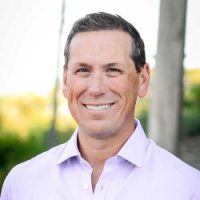
Jerry Stephens has excelled in global organizations as well as startups. His initial background in world-class CPG organizations, working with retailers across the globe, as well as his passion for data, analytics and cross-functional strategy, enabled a seamless transition to technology beginning as the senior vice president and general manager at Market6 (acquired) and later as vice president of cognitive solutions at IBM. Jerry received his B.S. in finance from Kelley School of Business at Indiana University. Connect with Jerry on LinkedIn.
